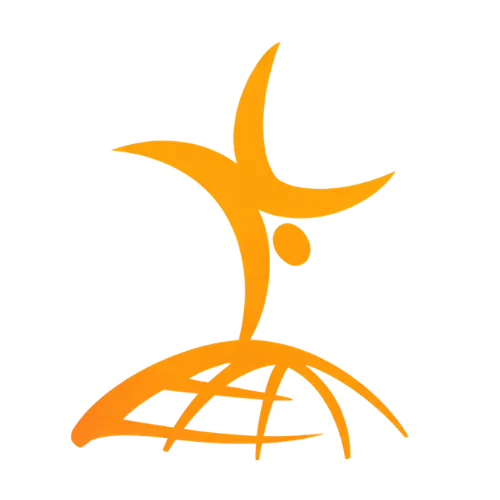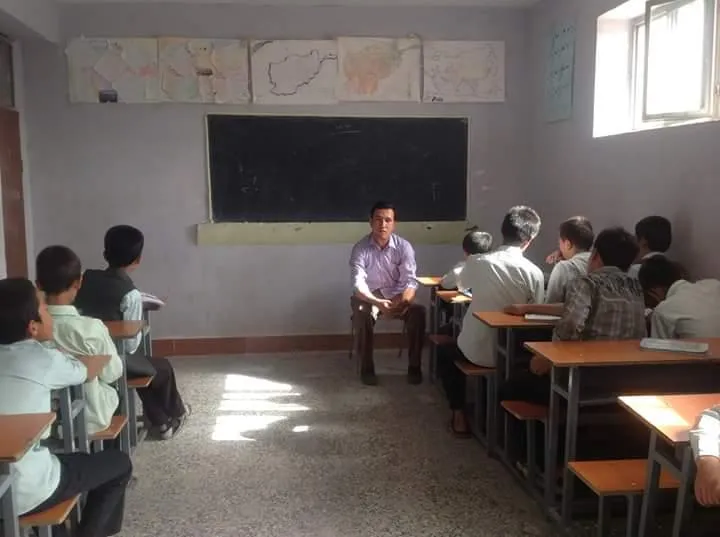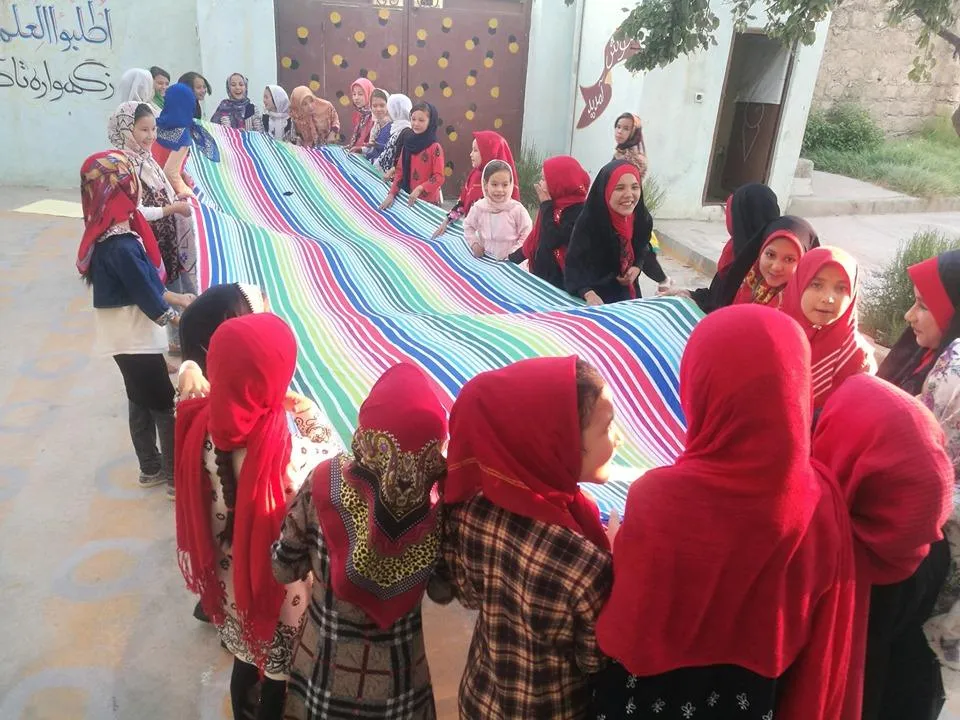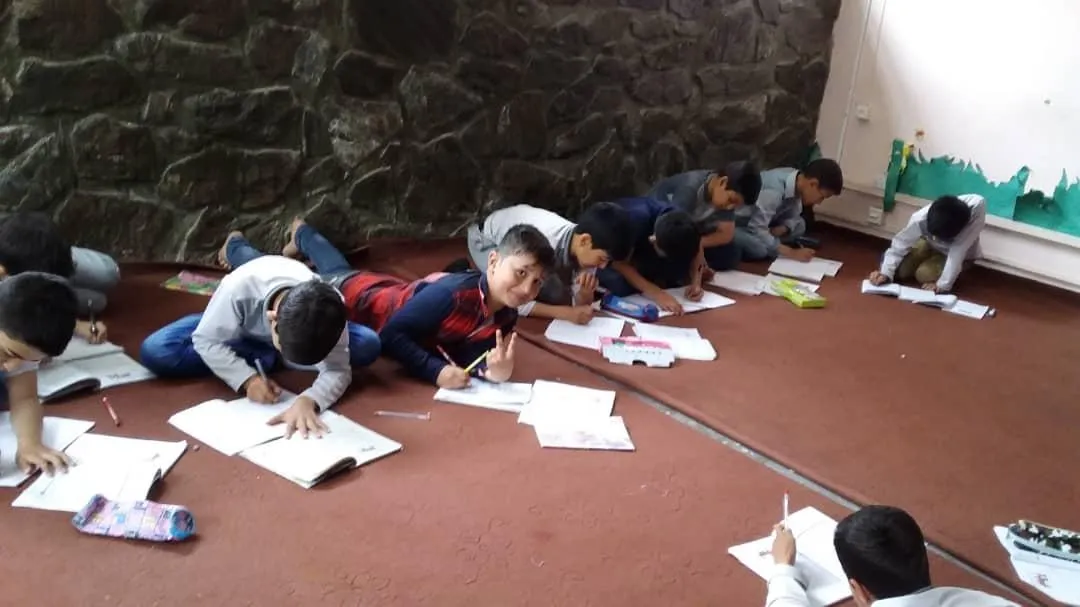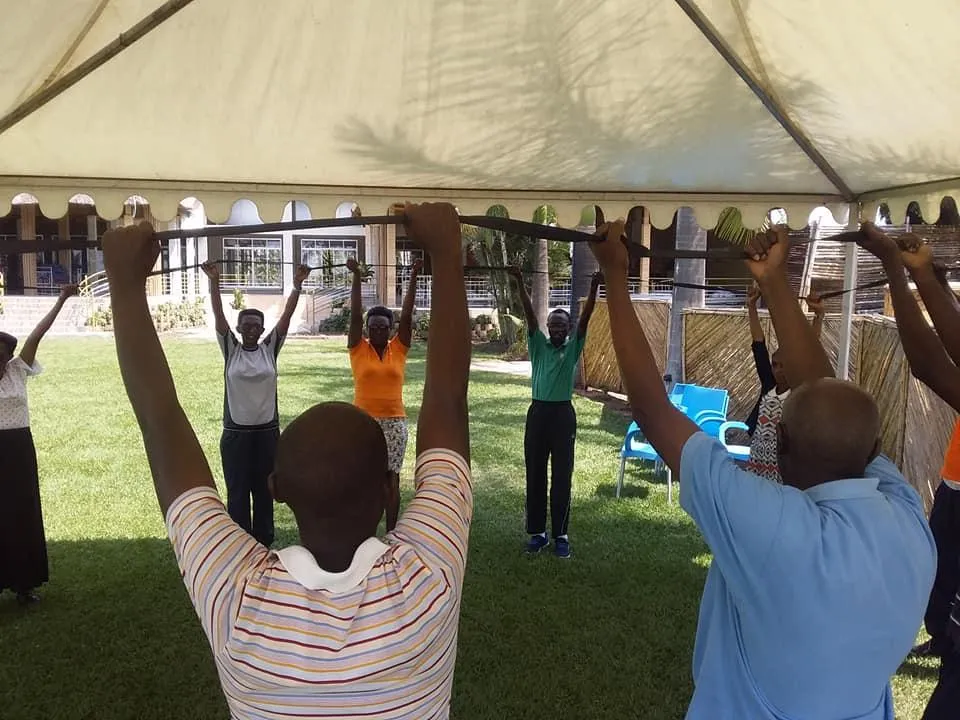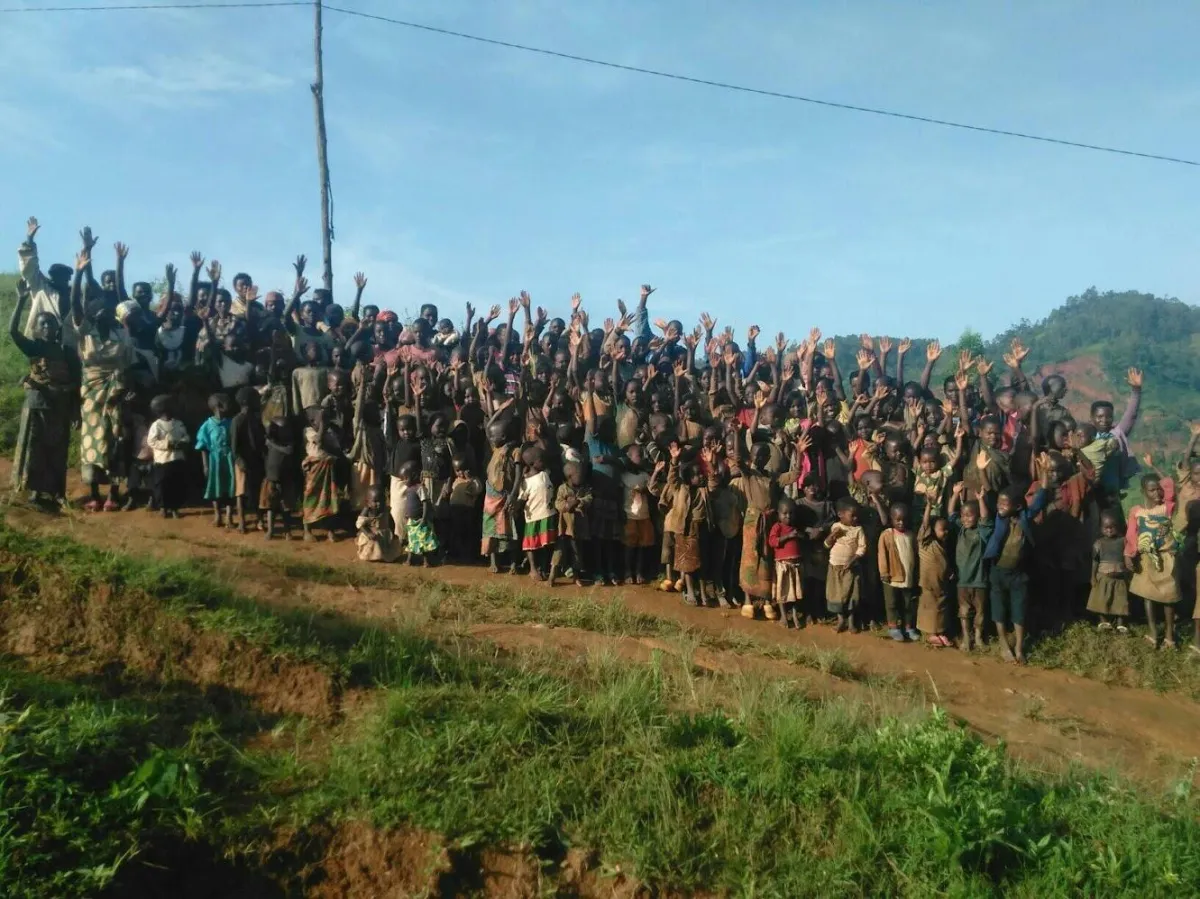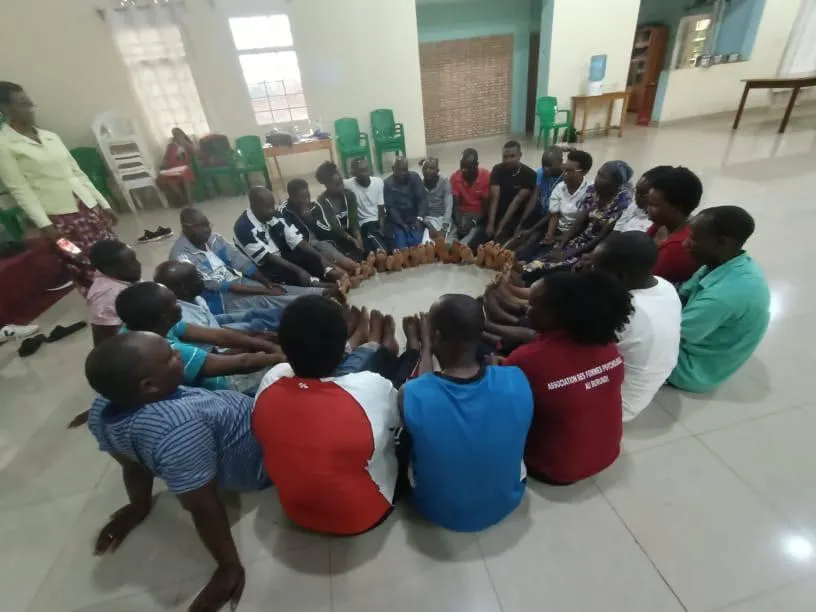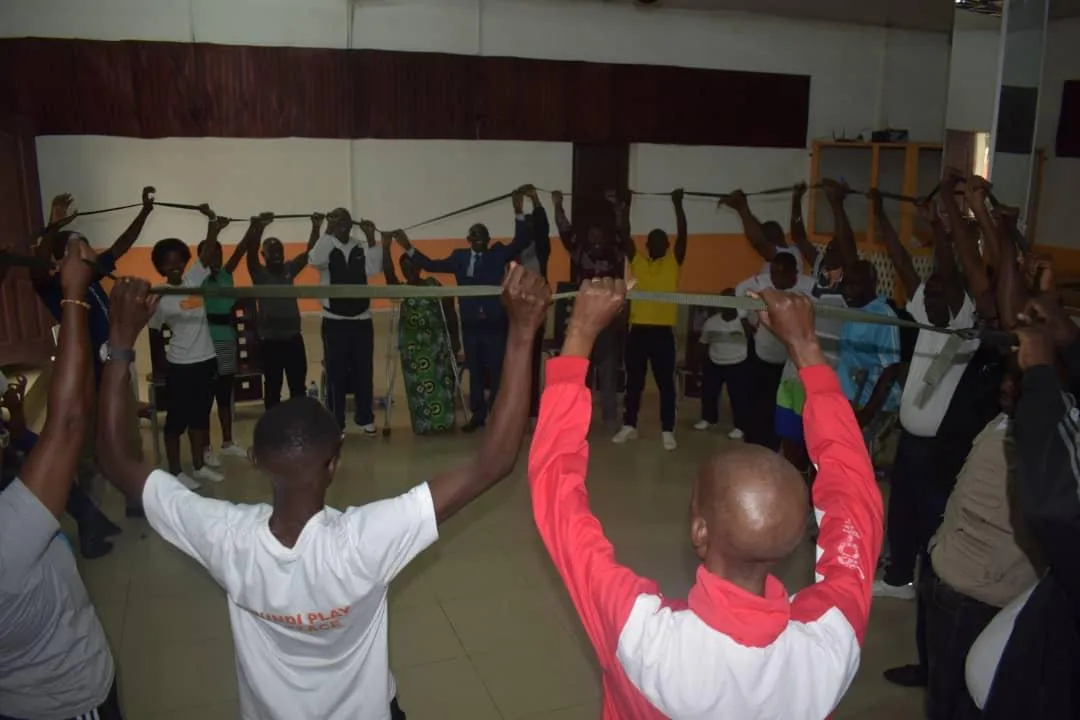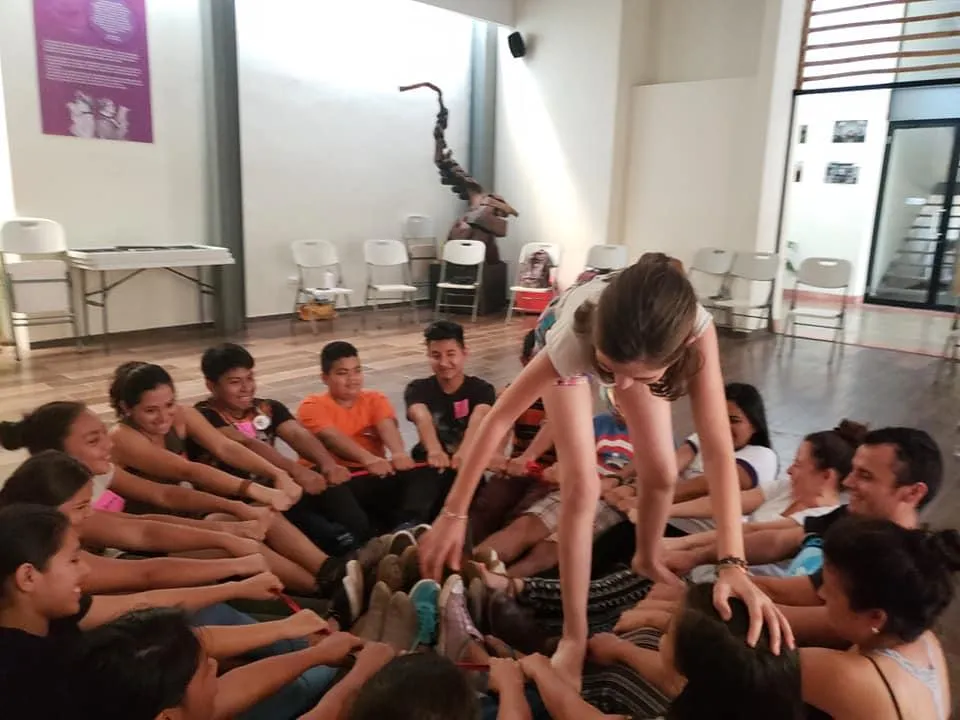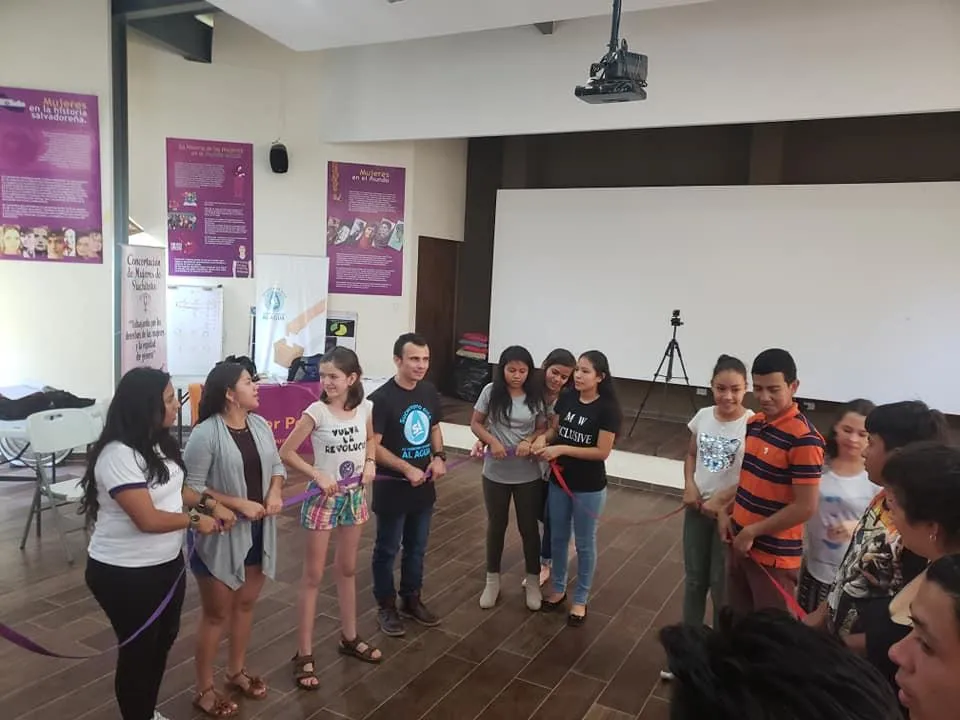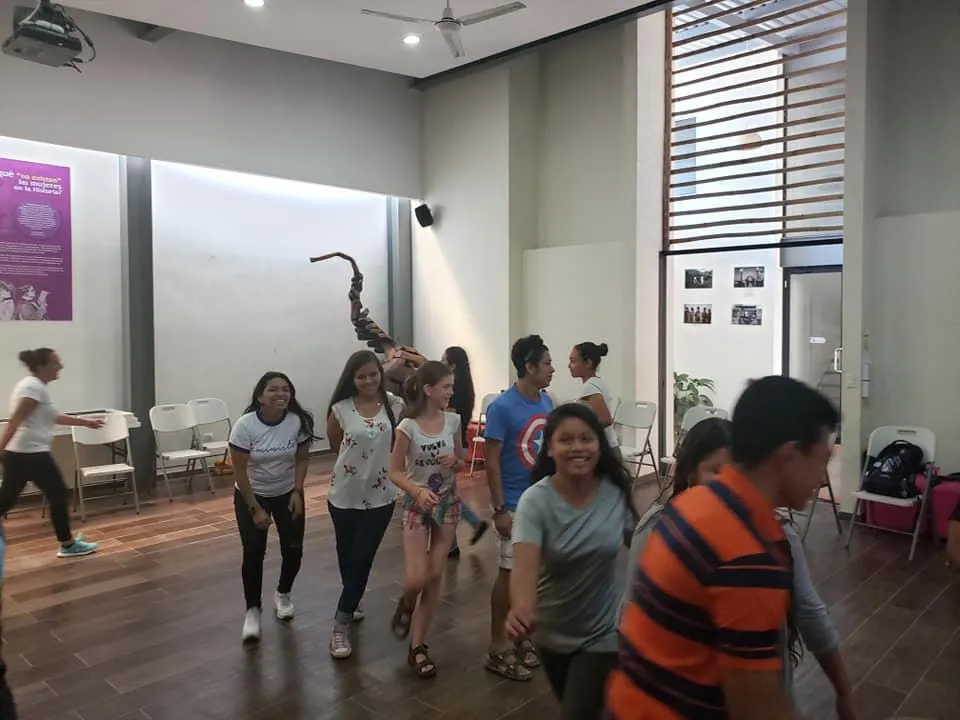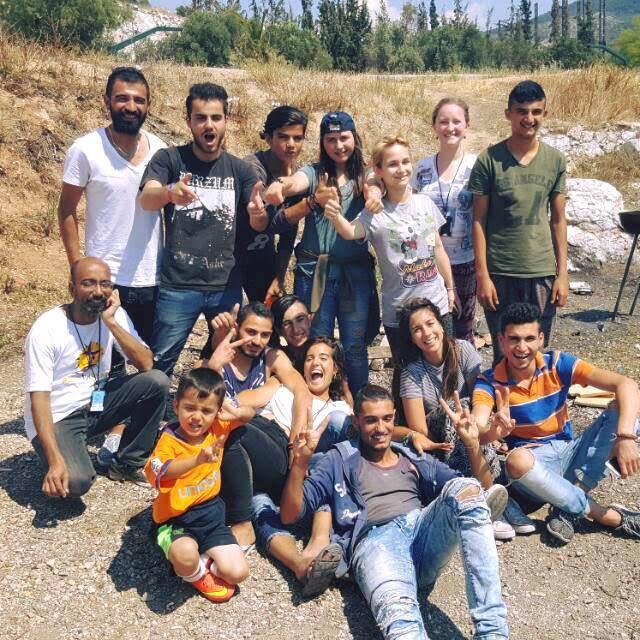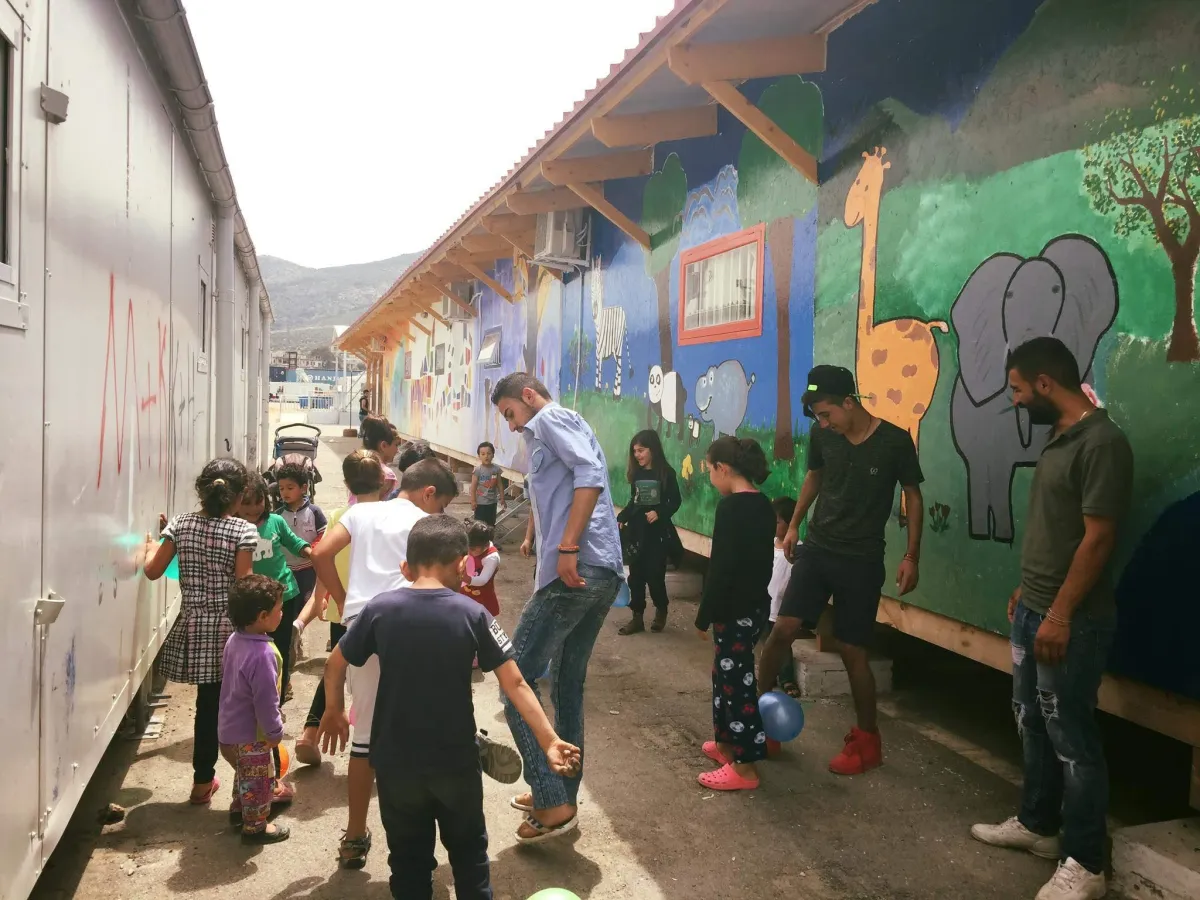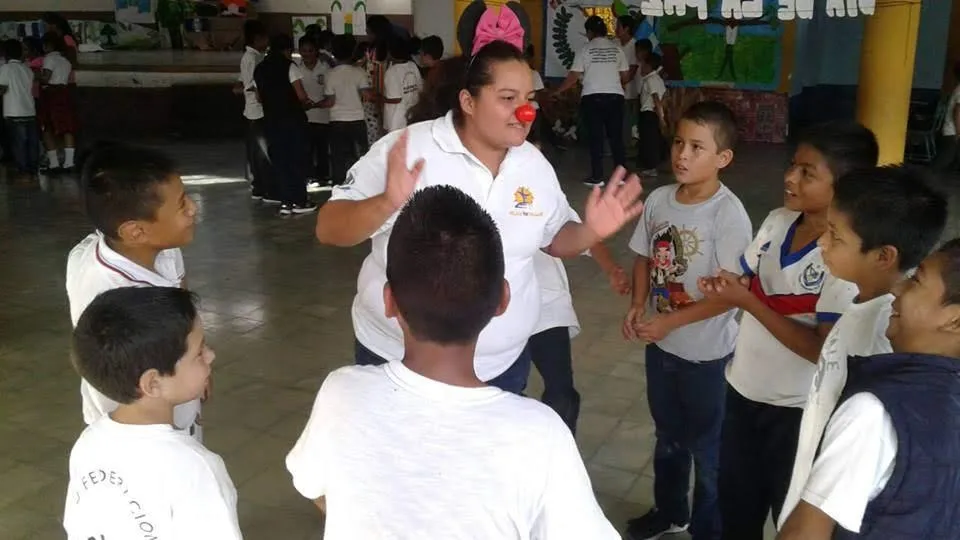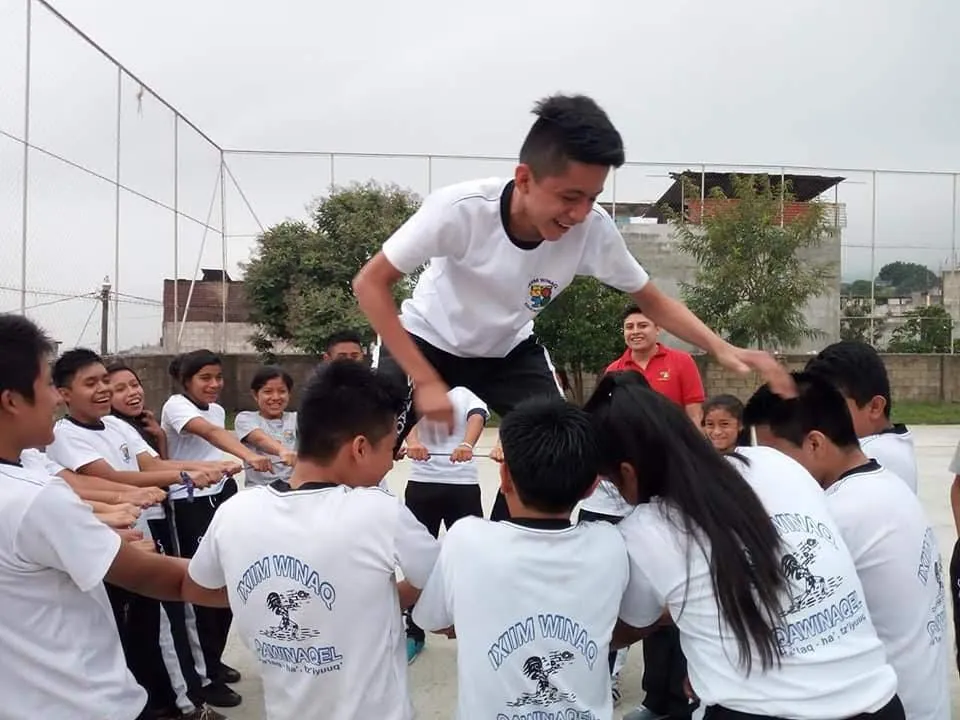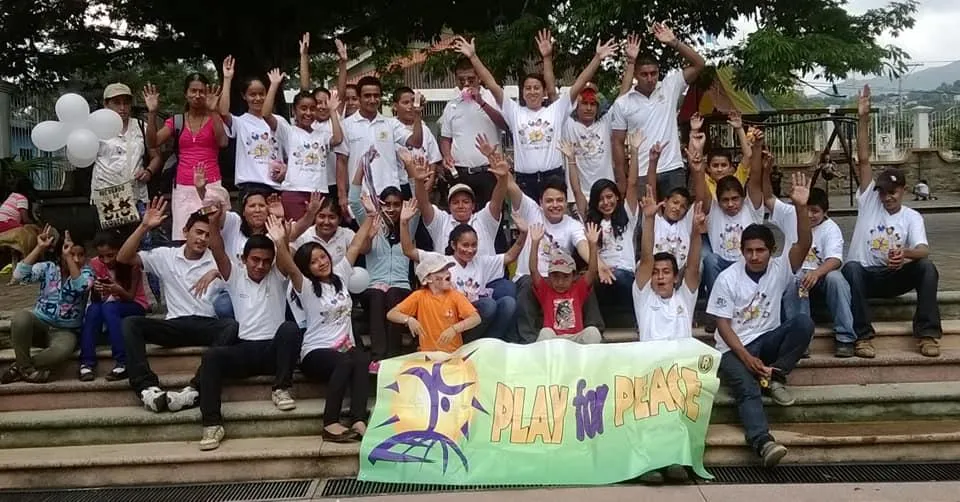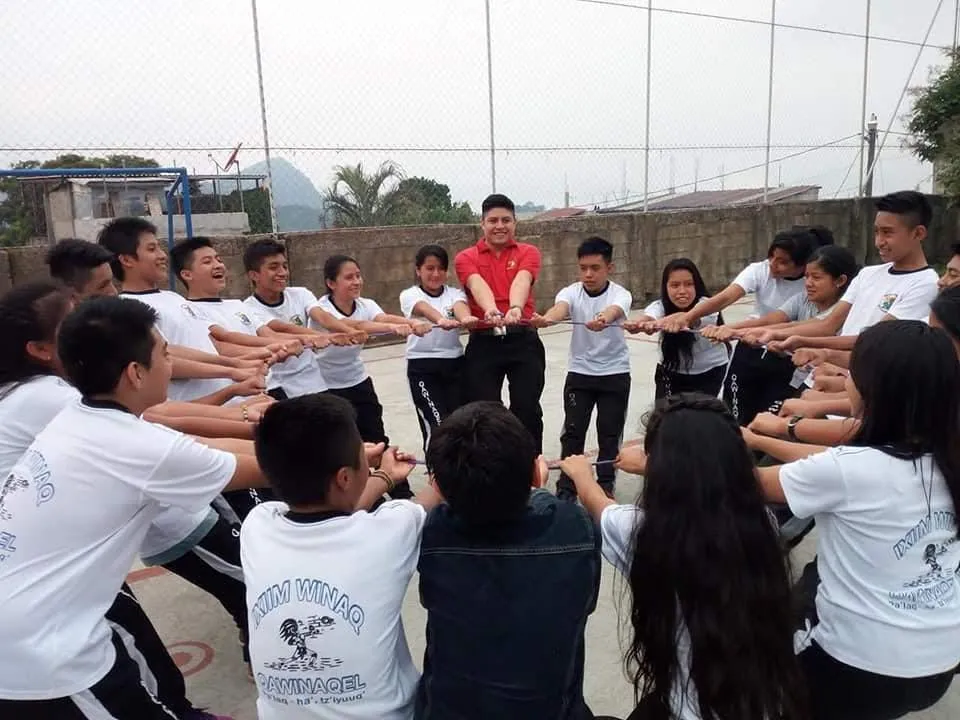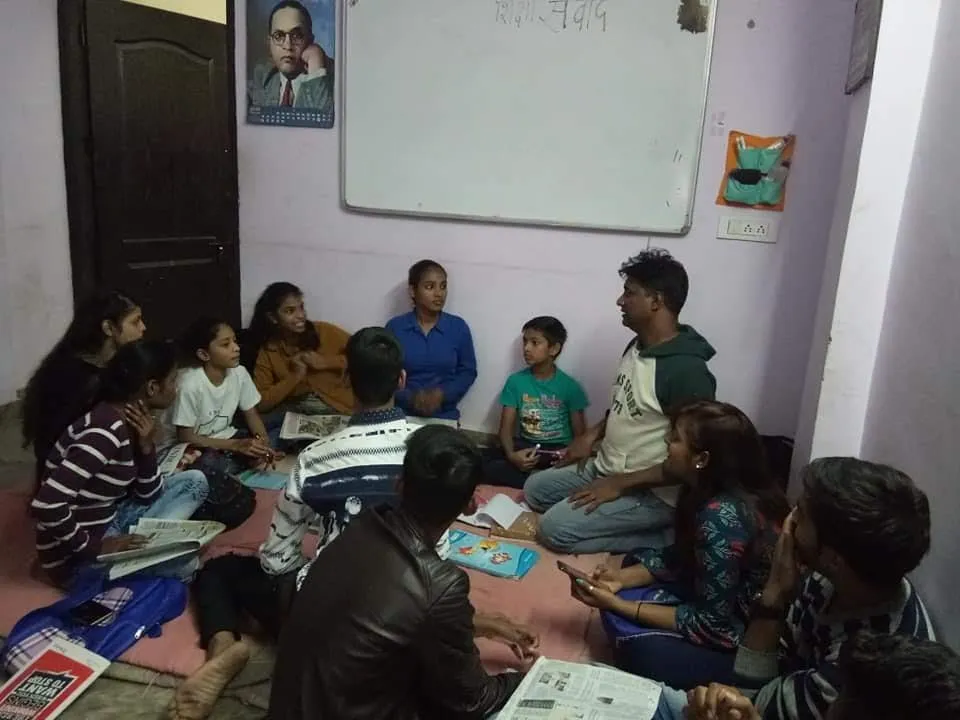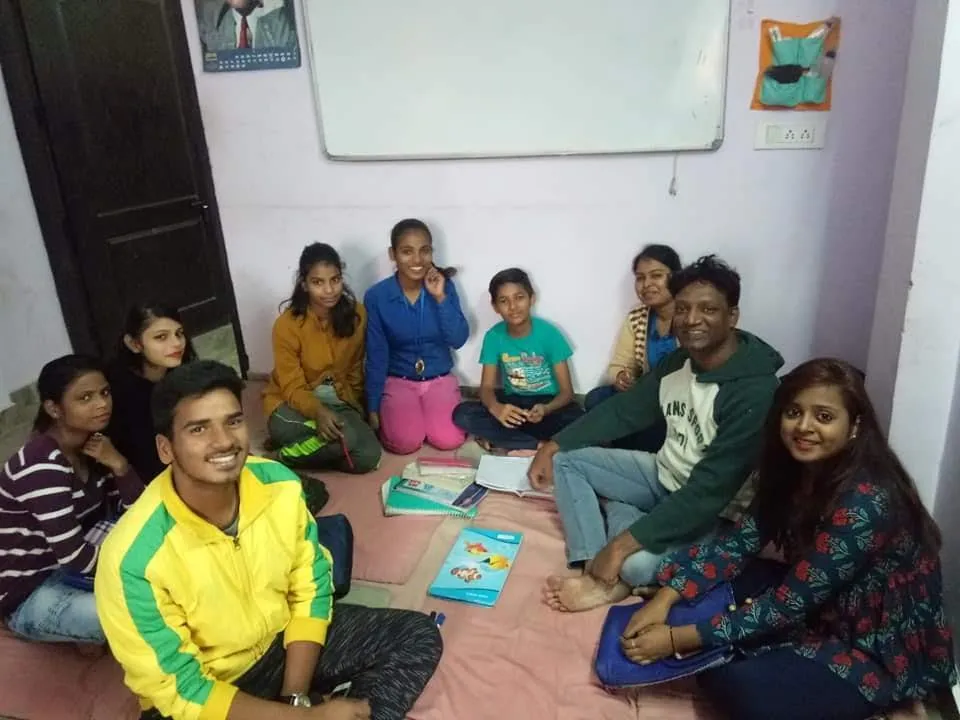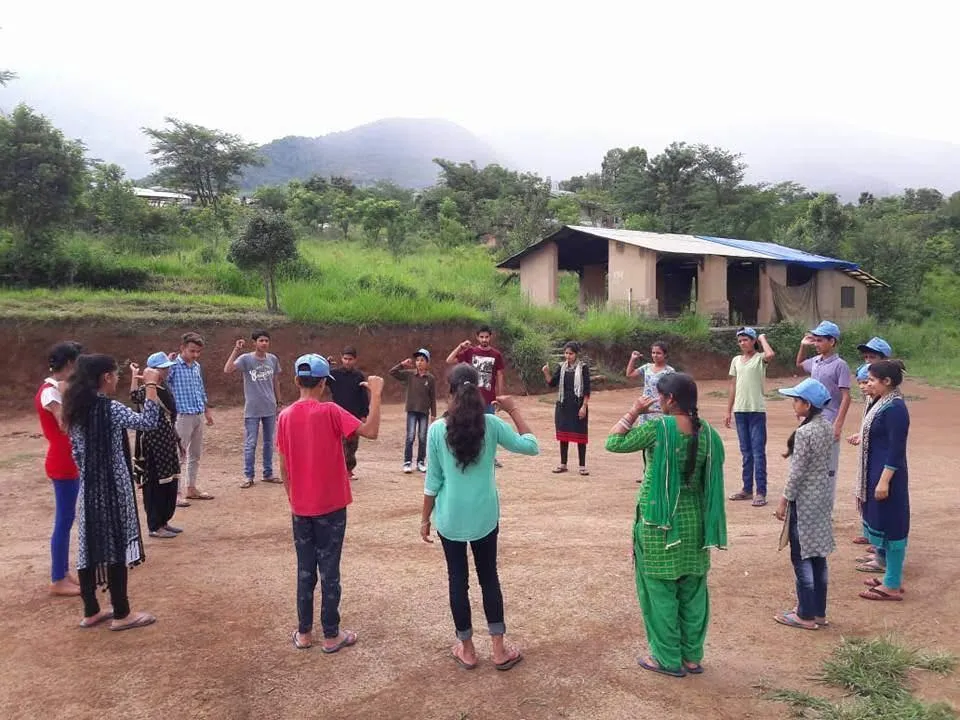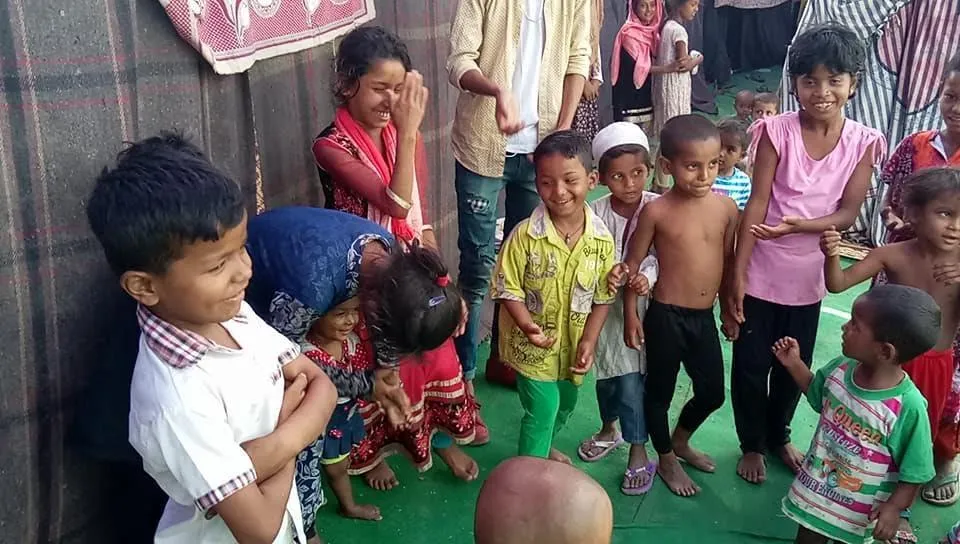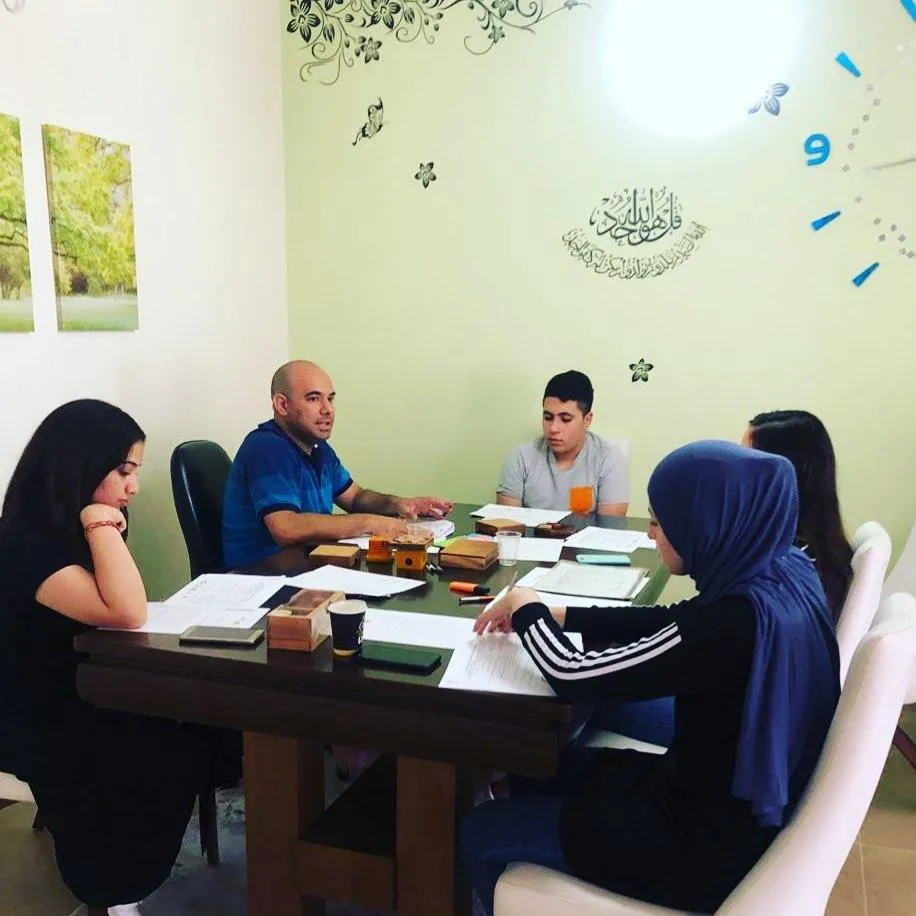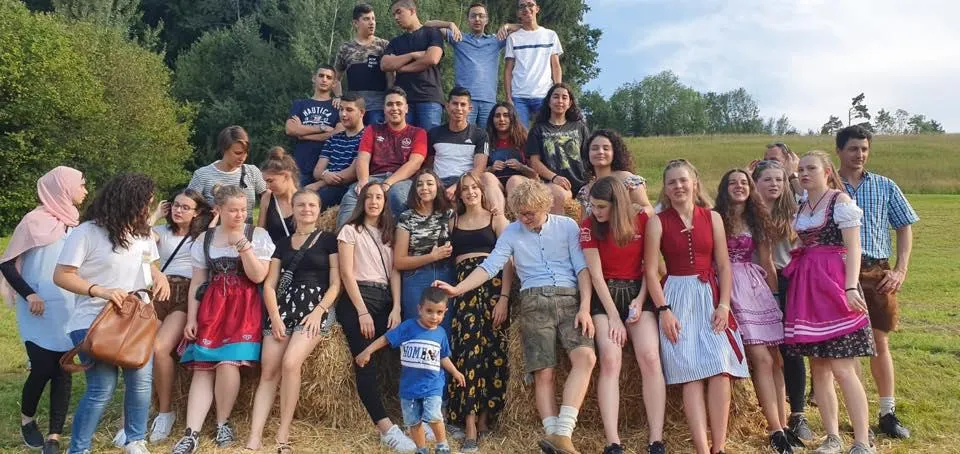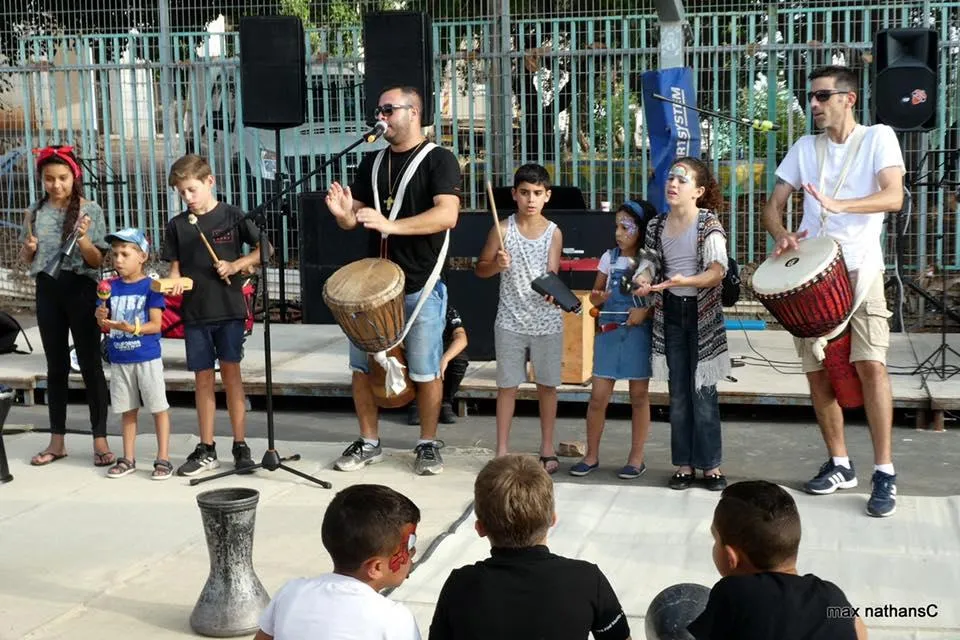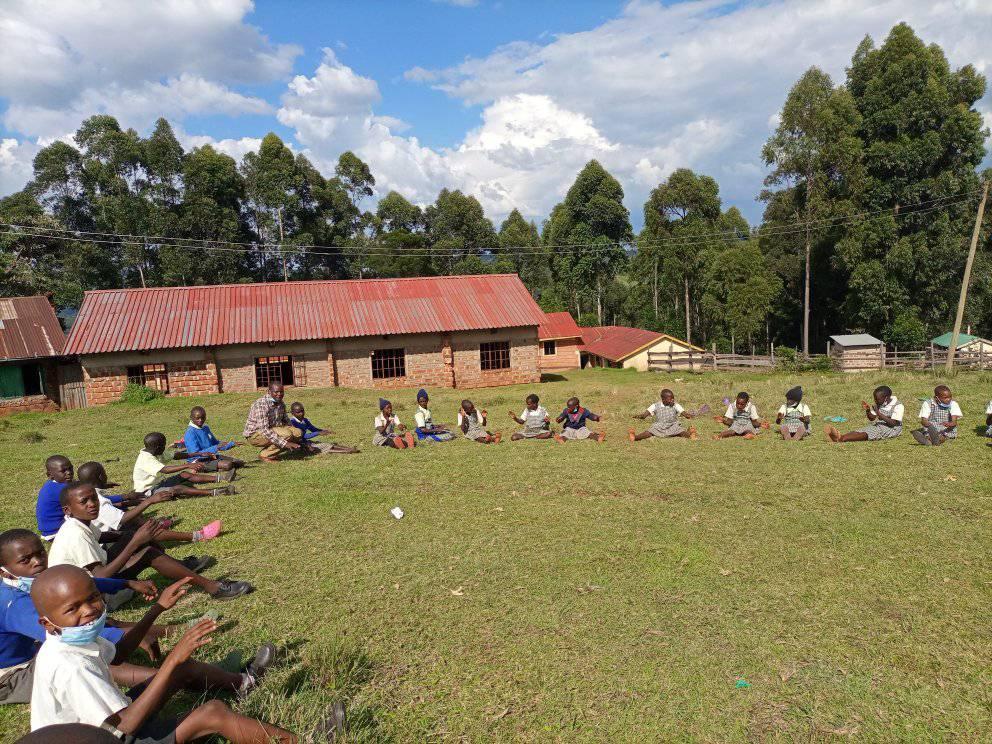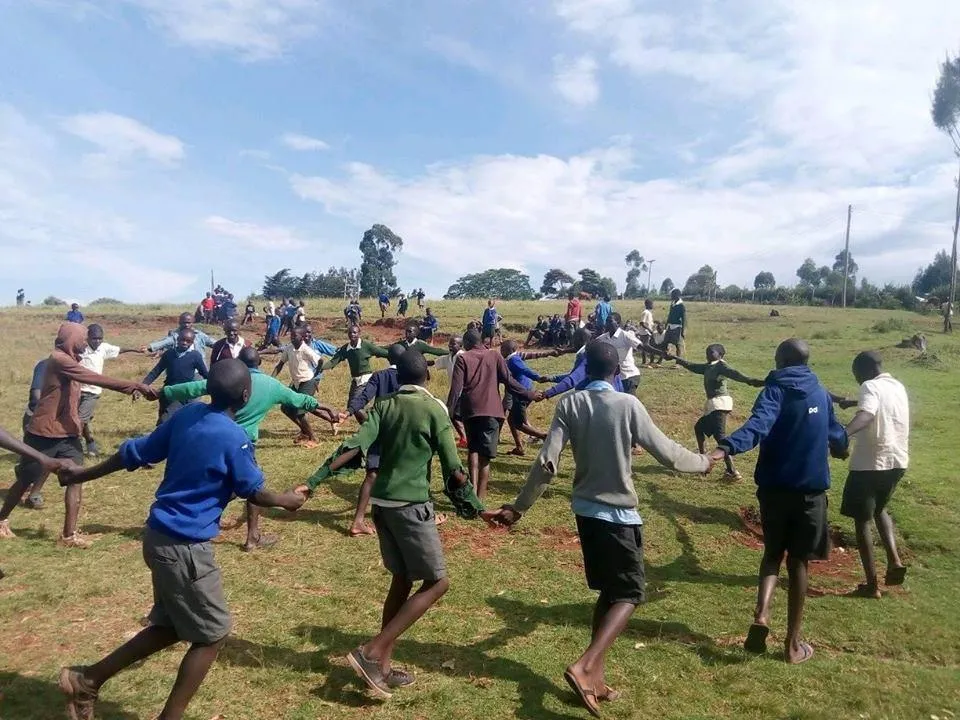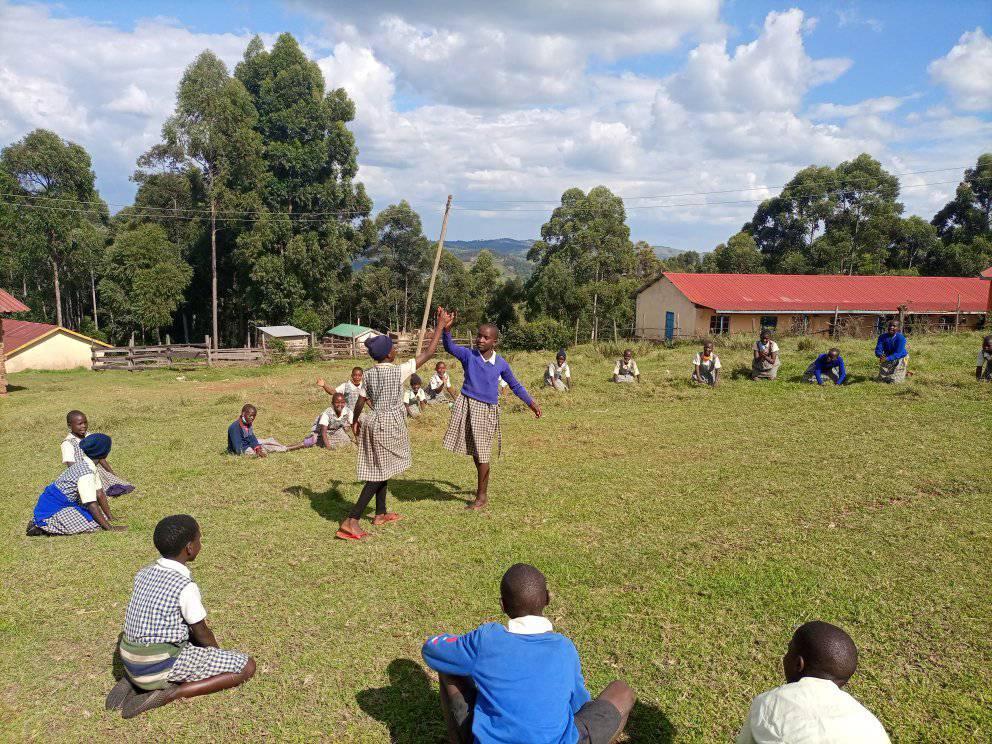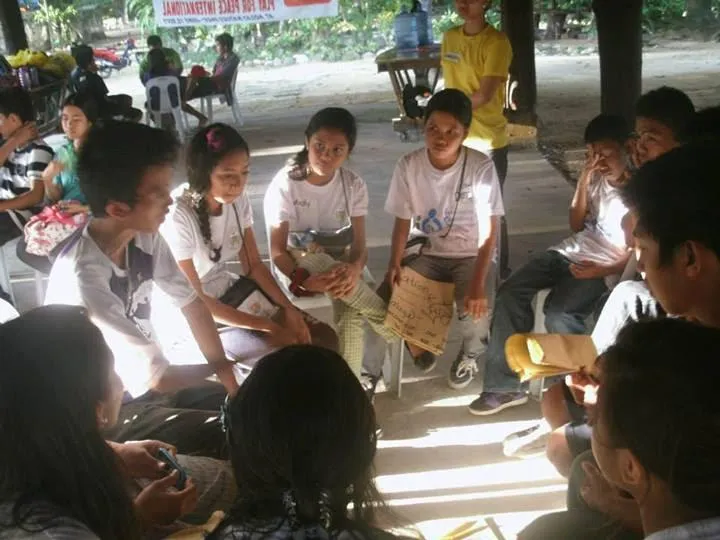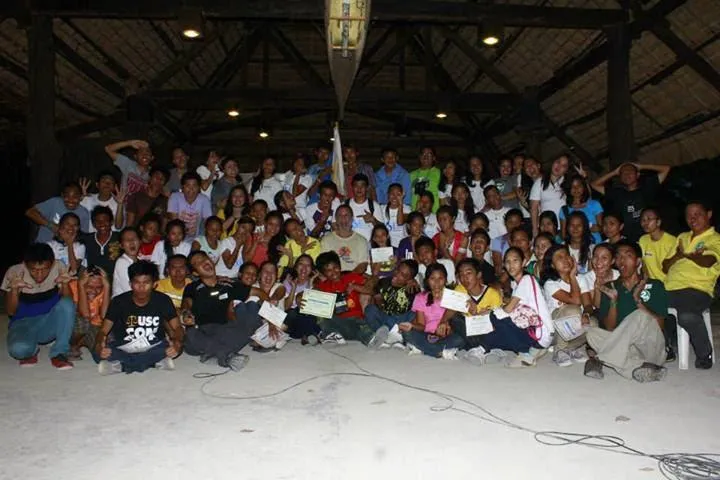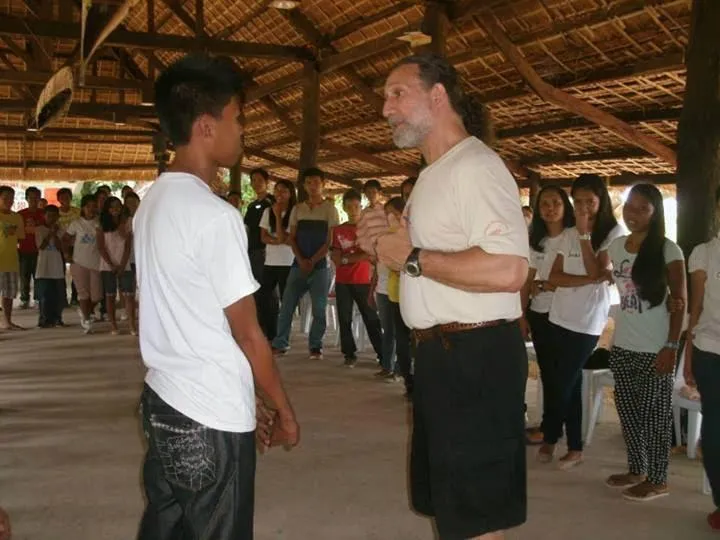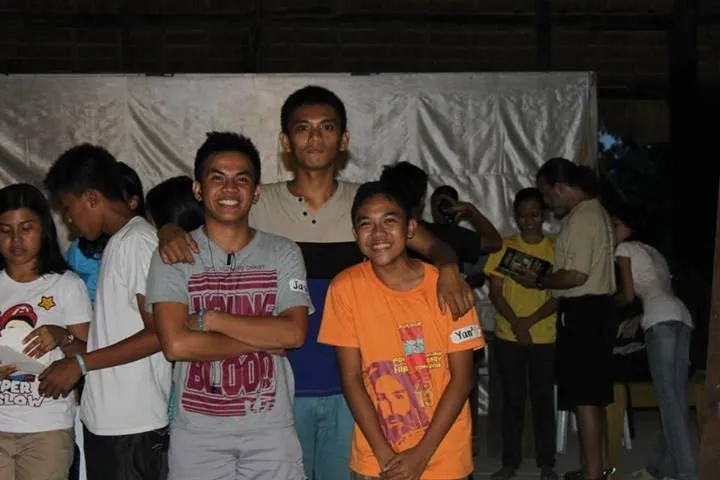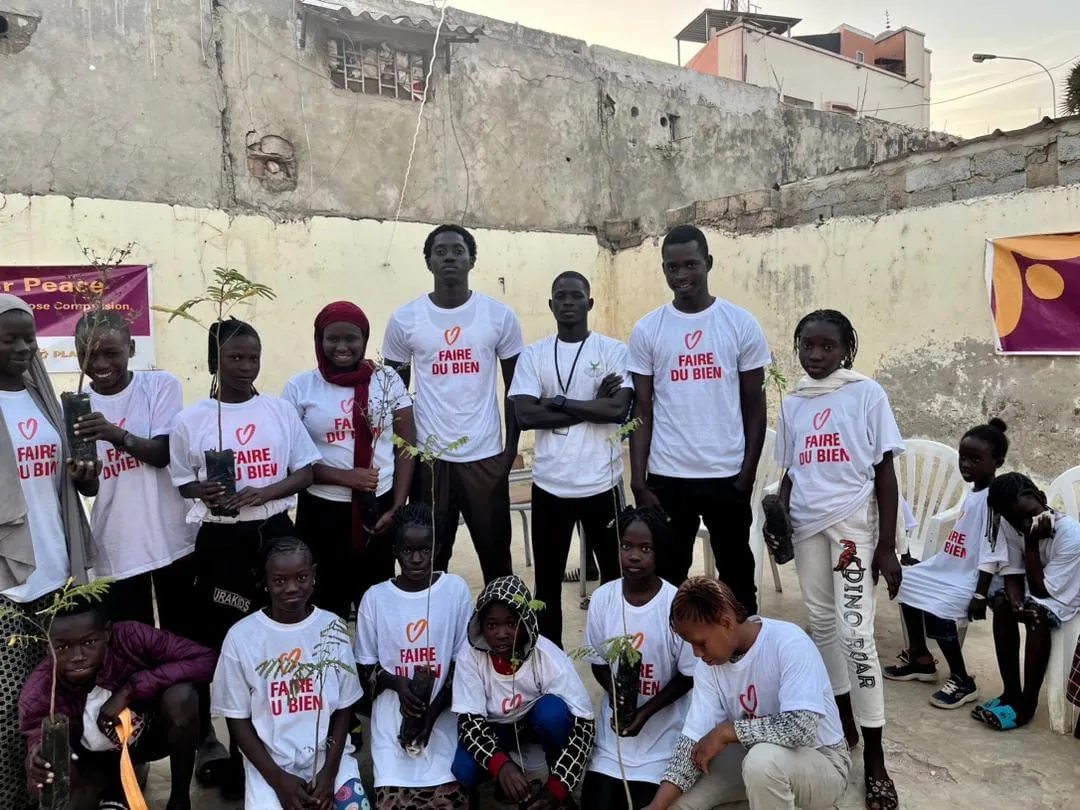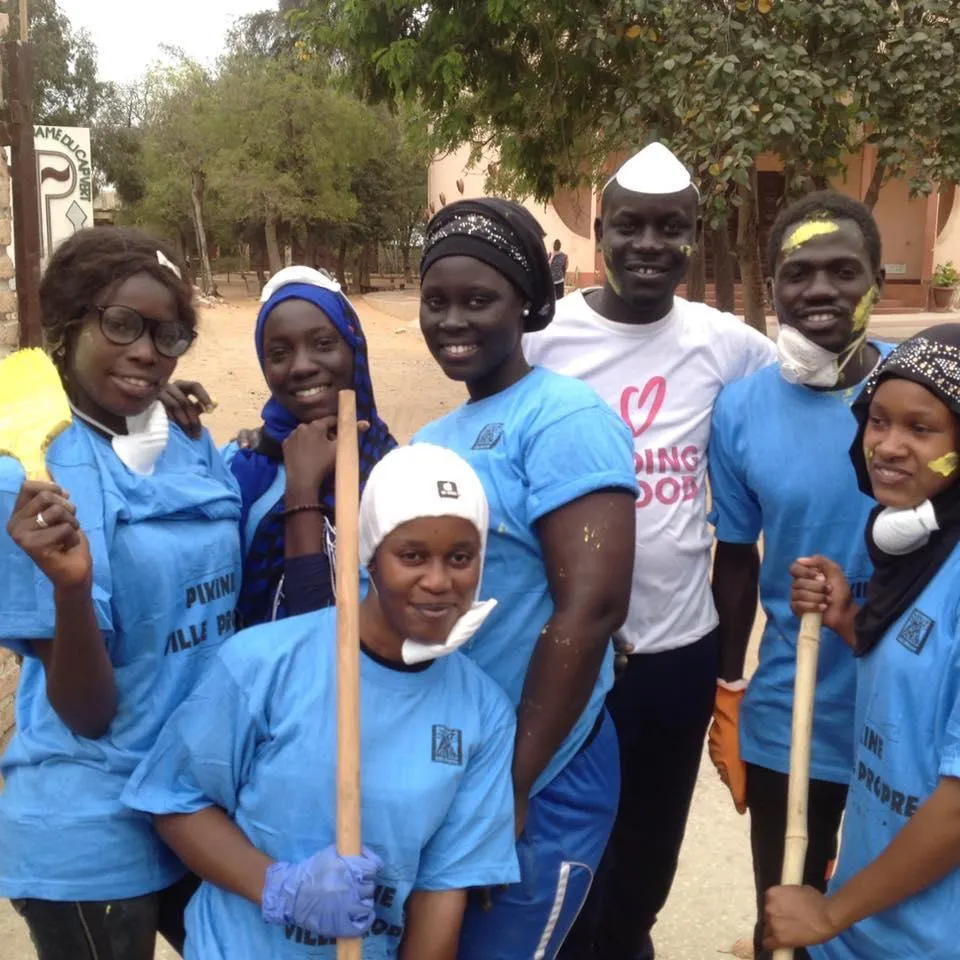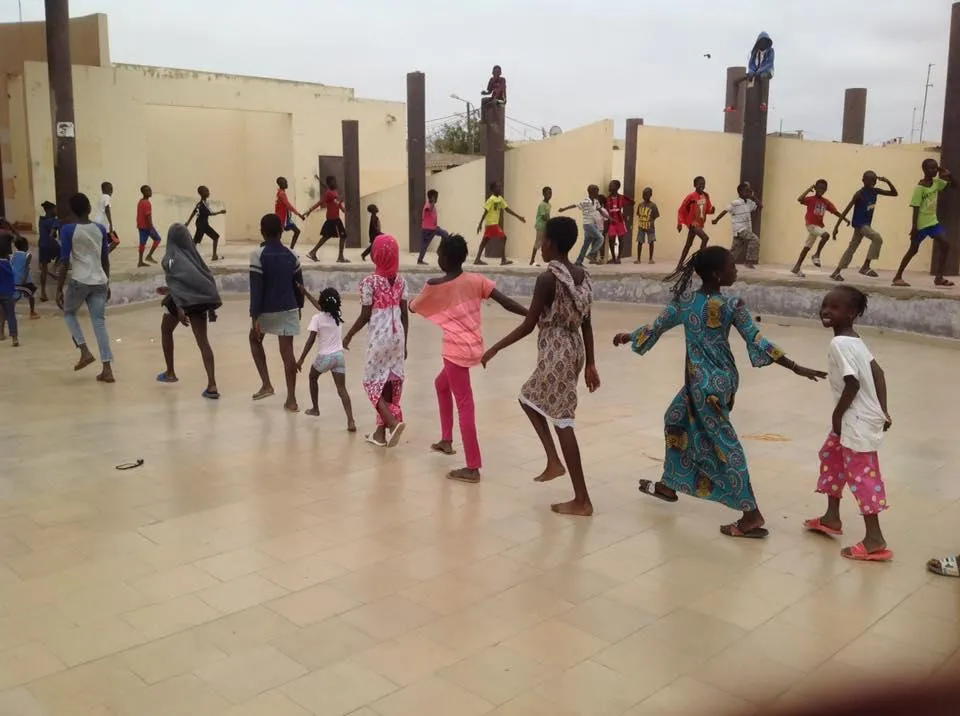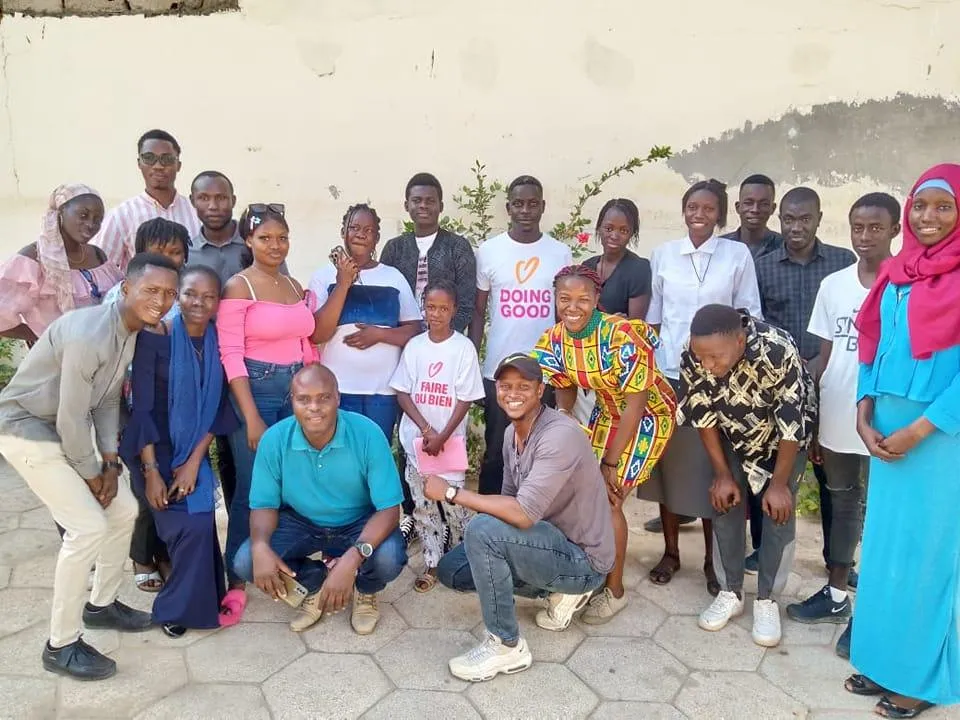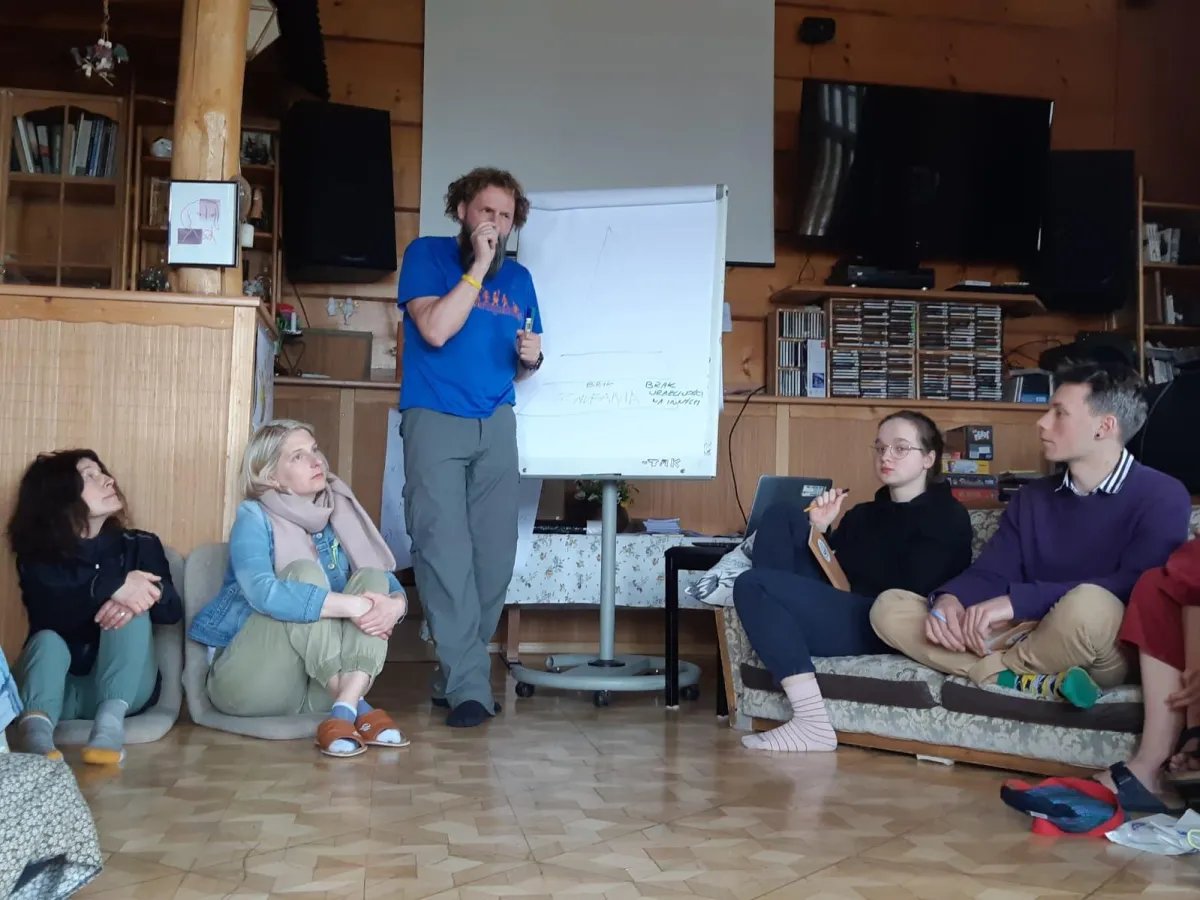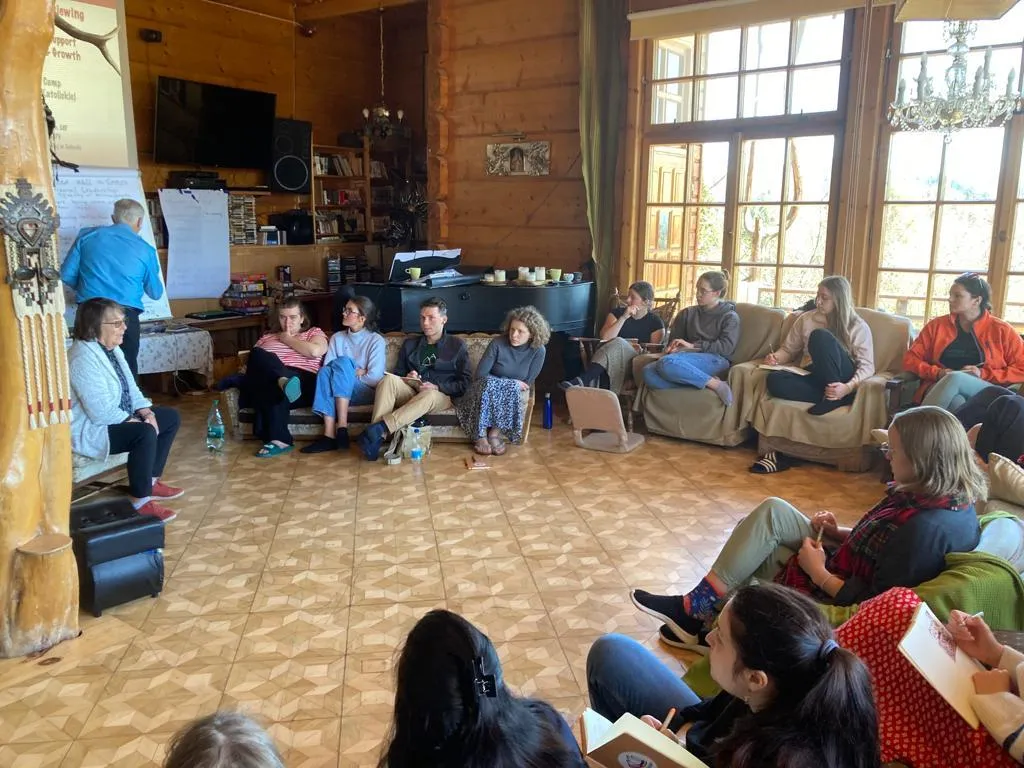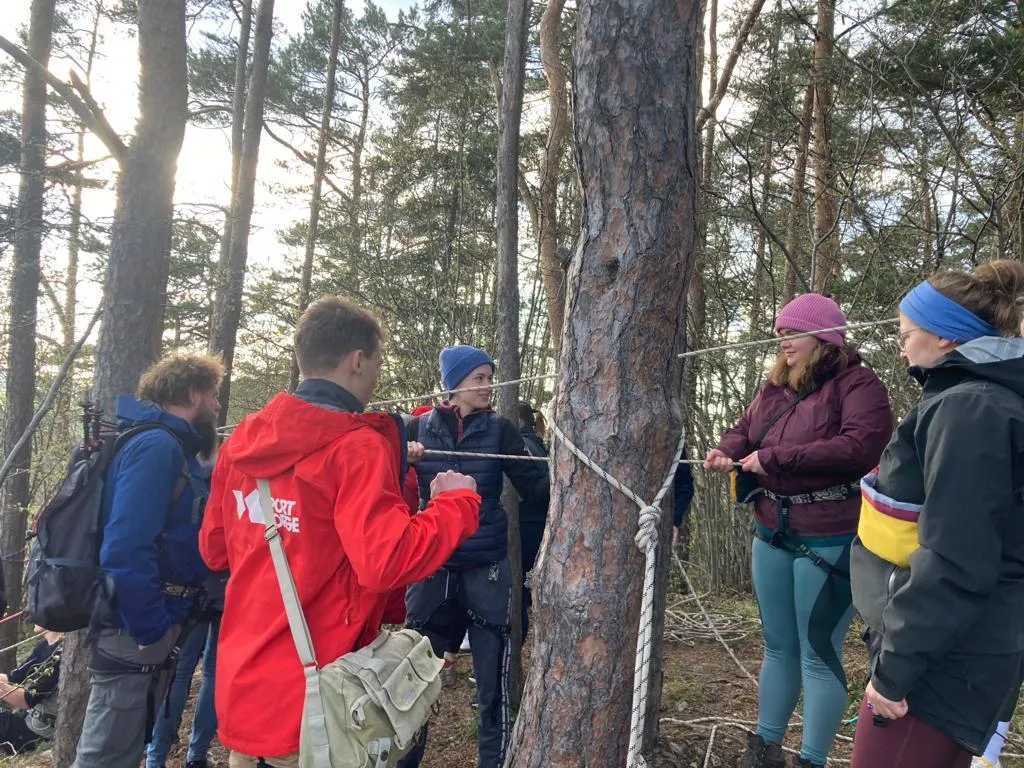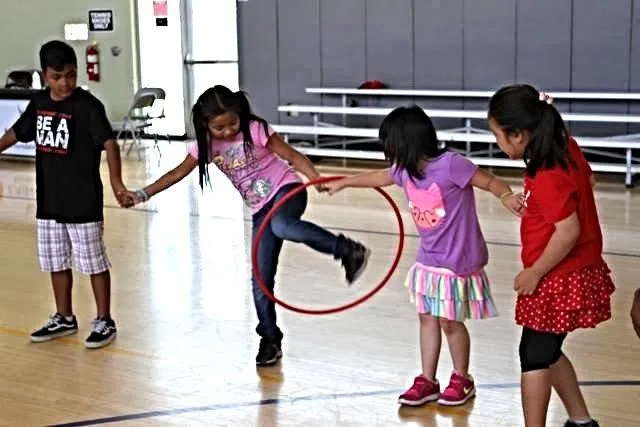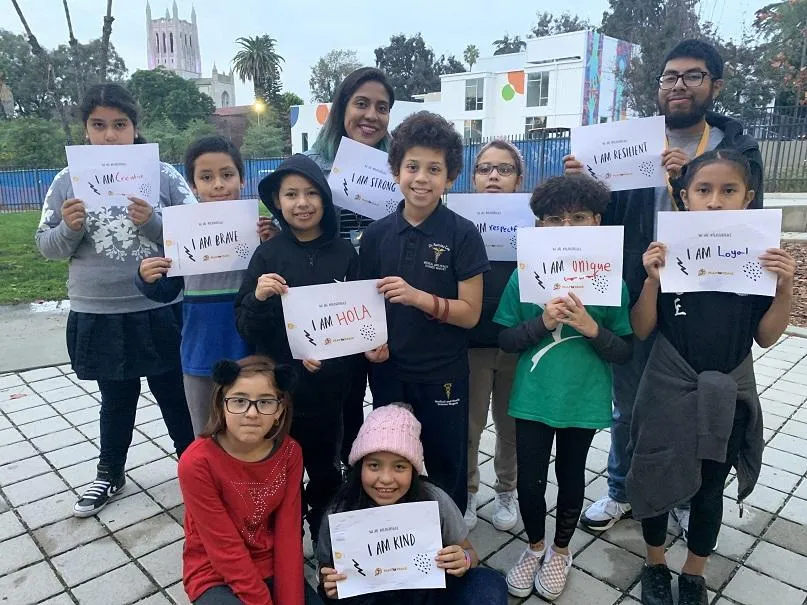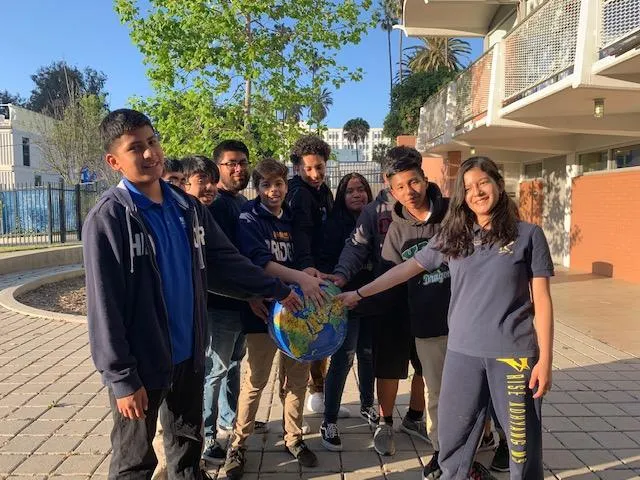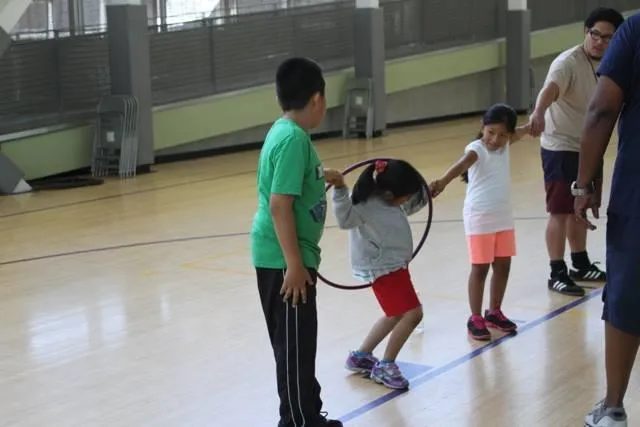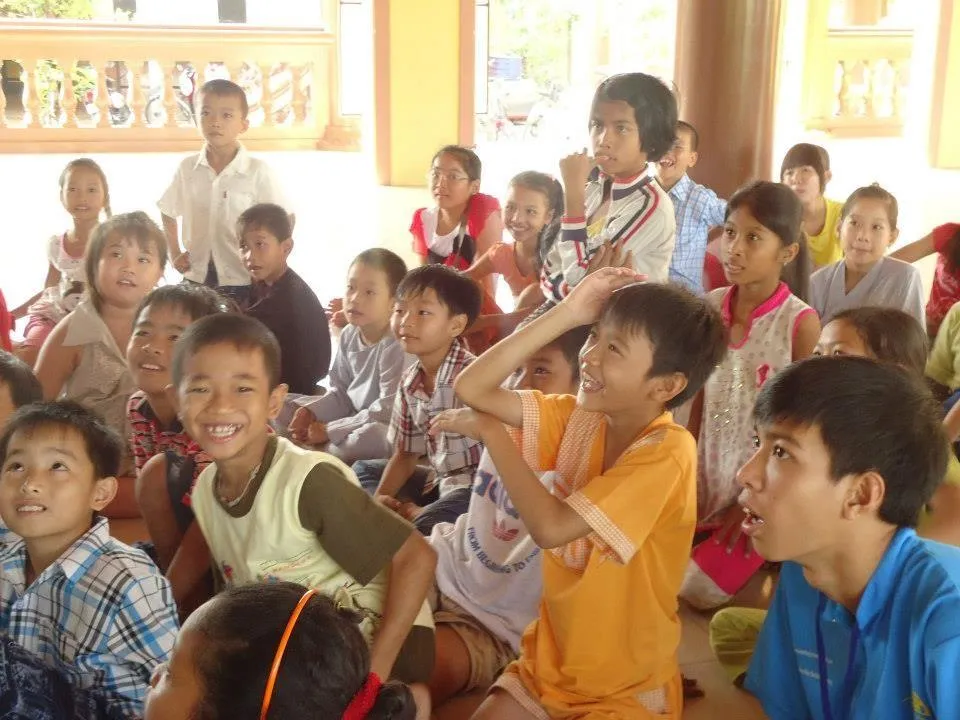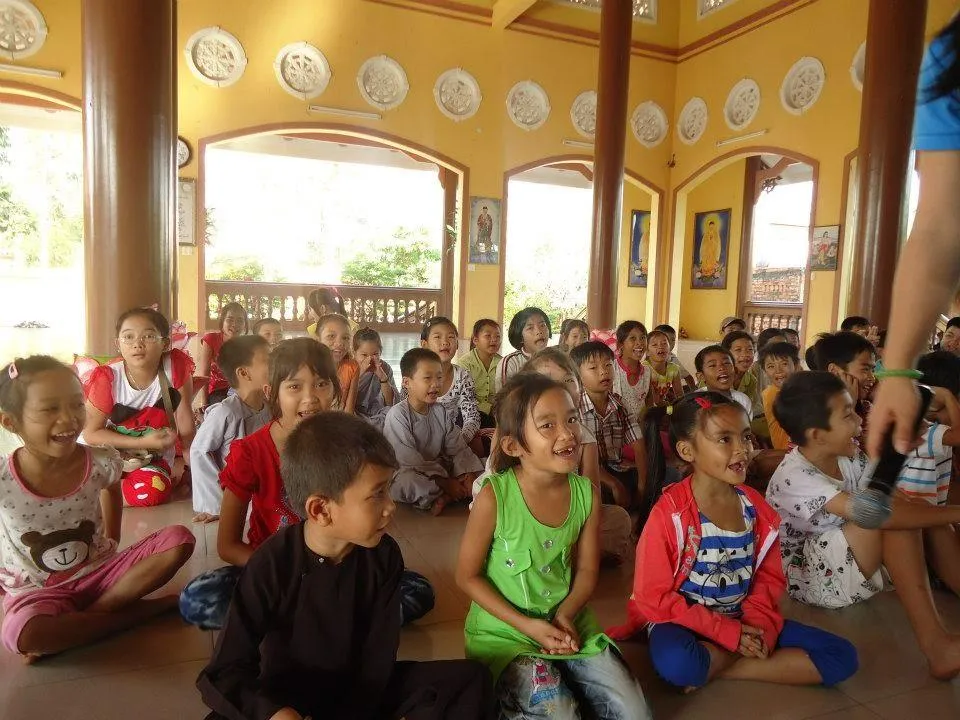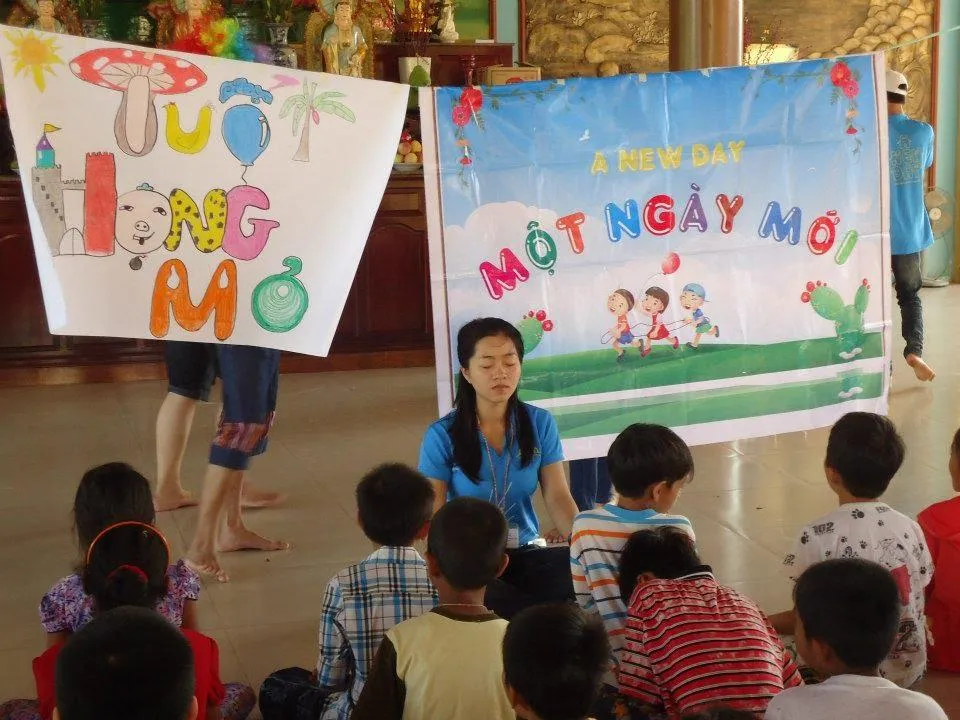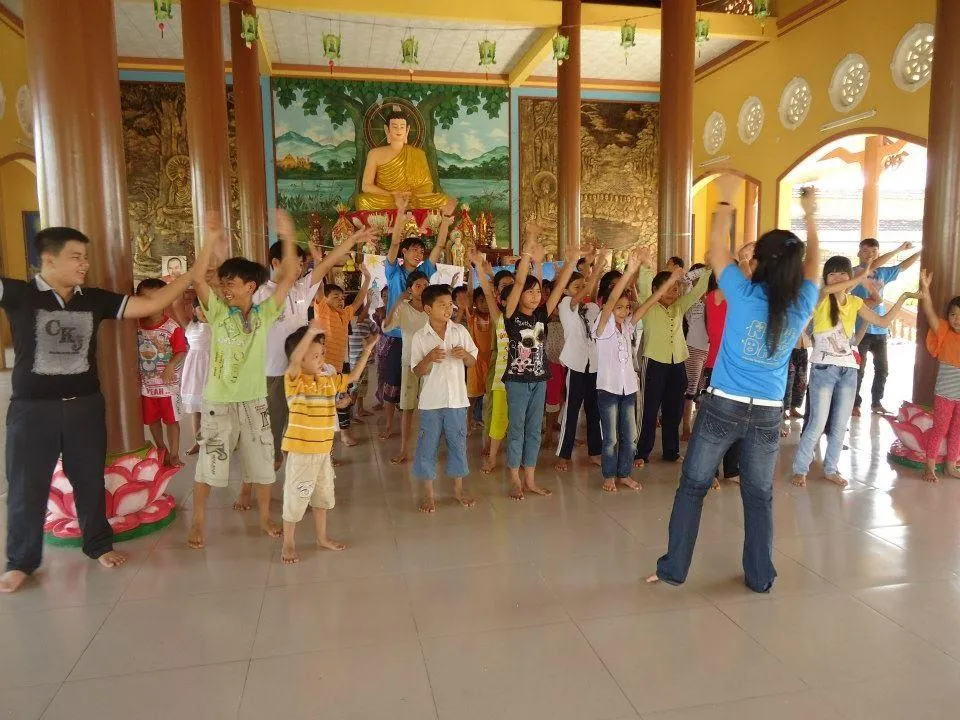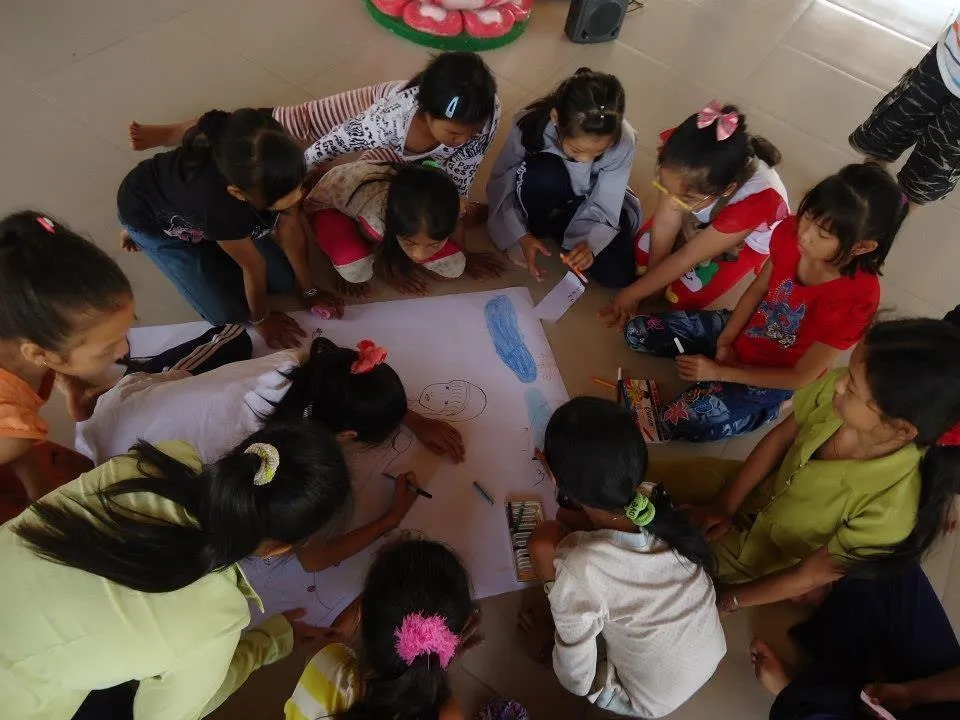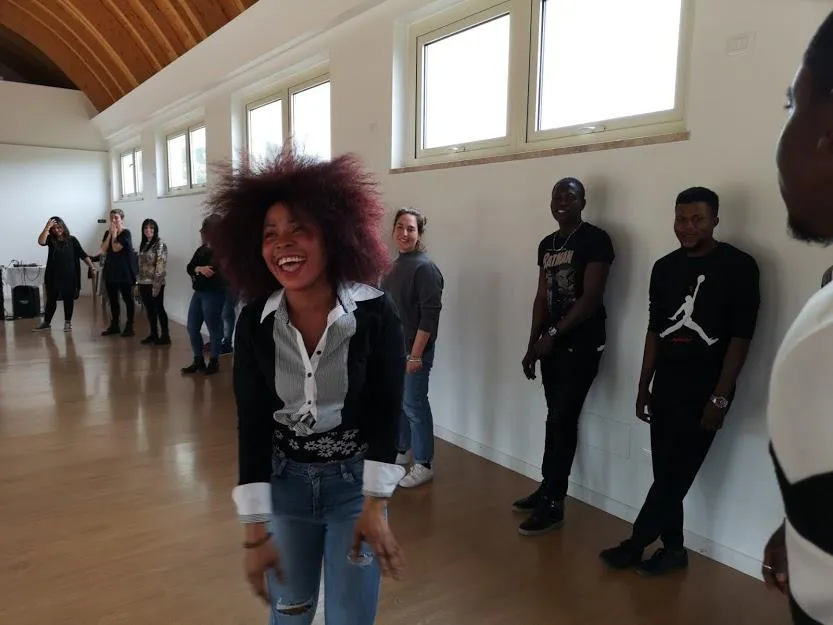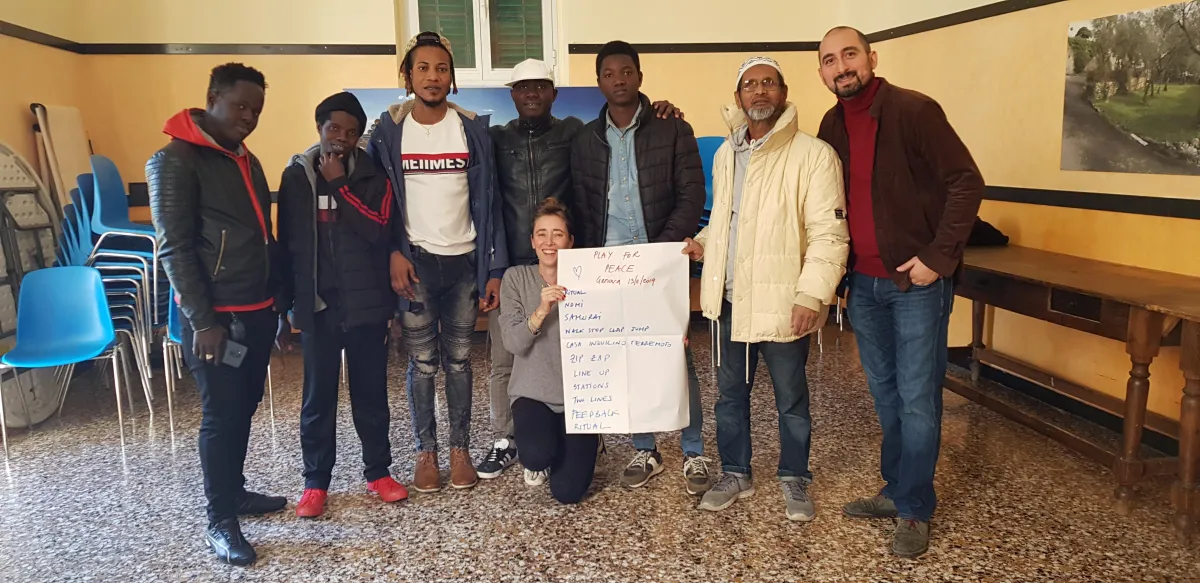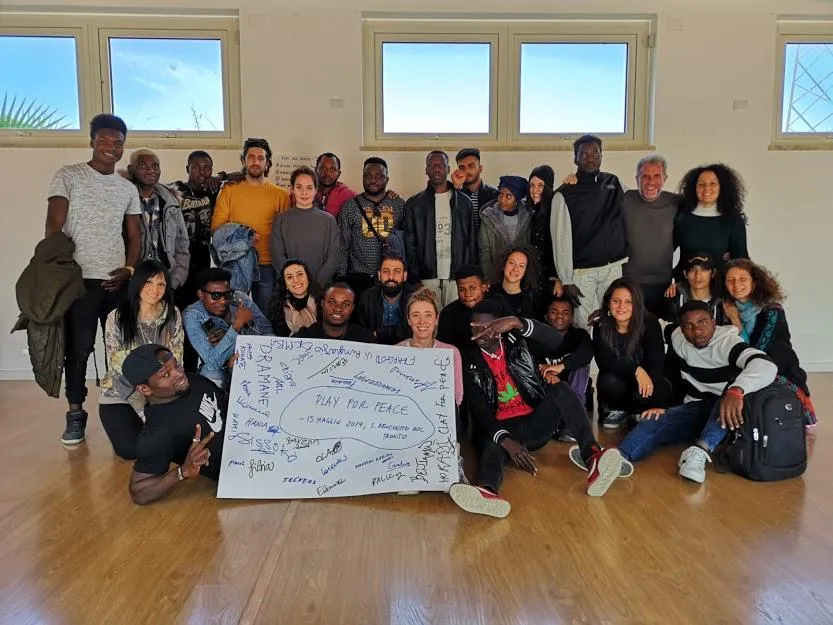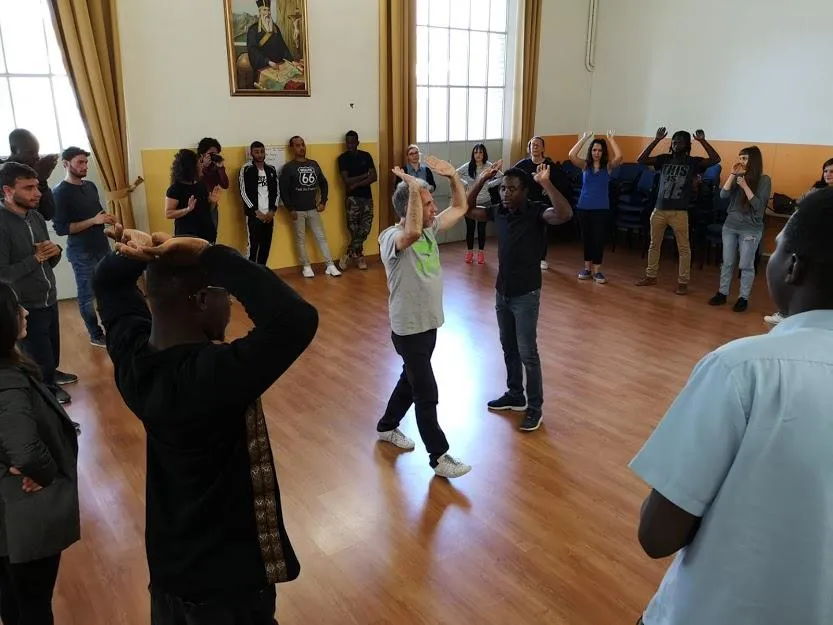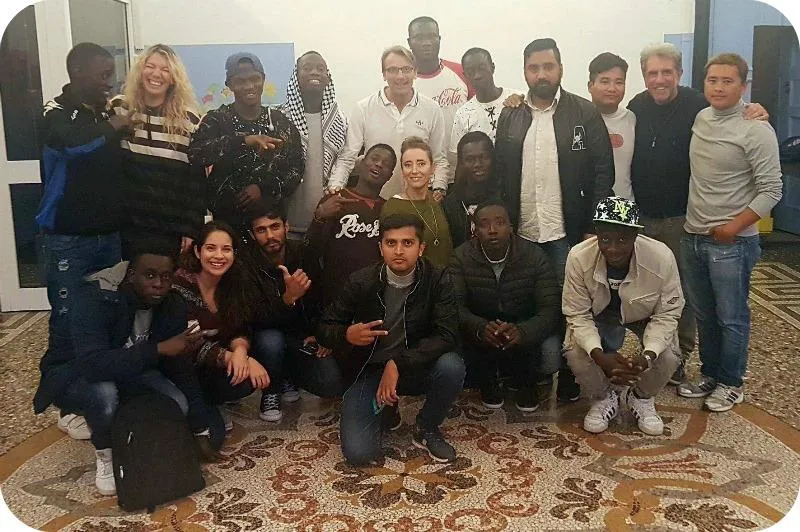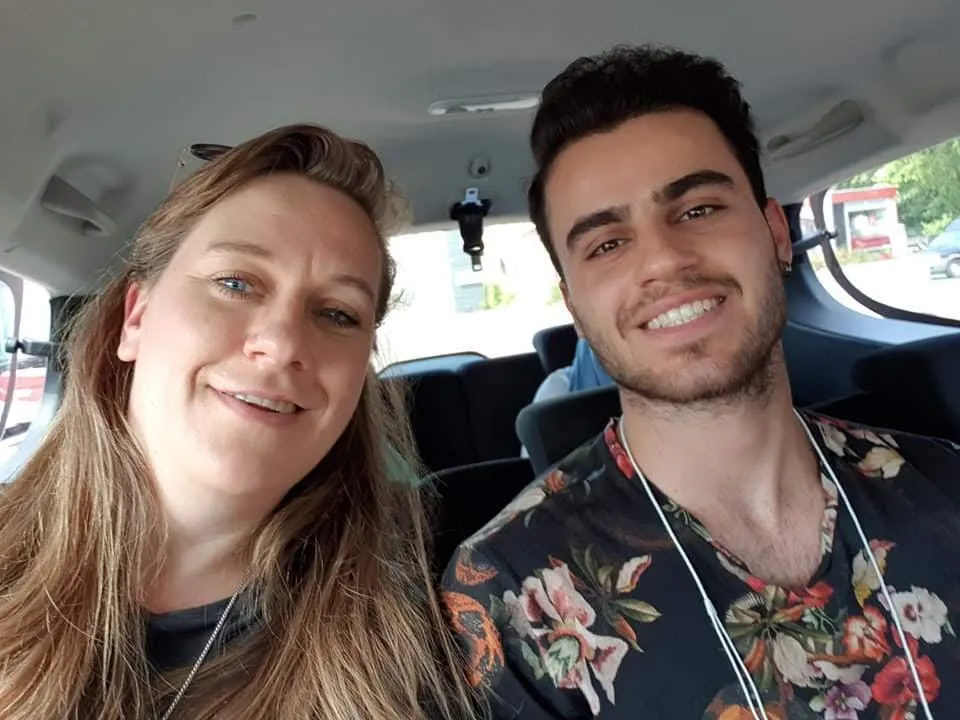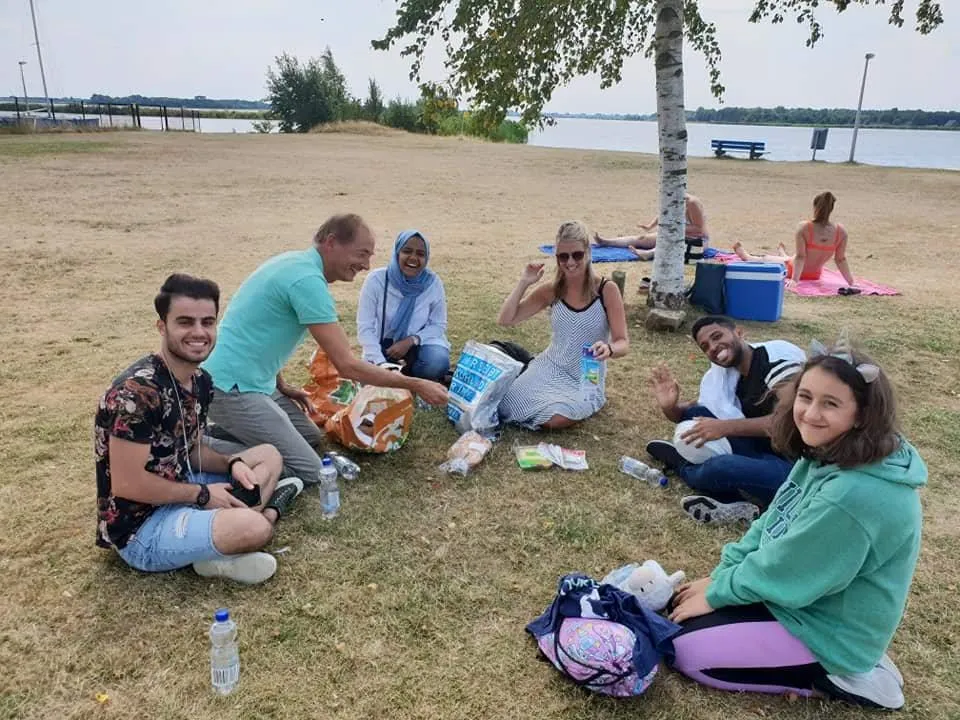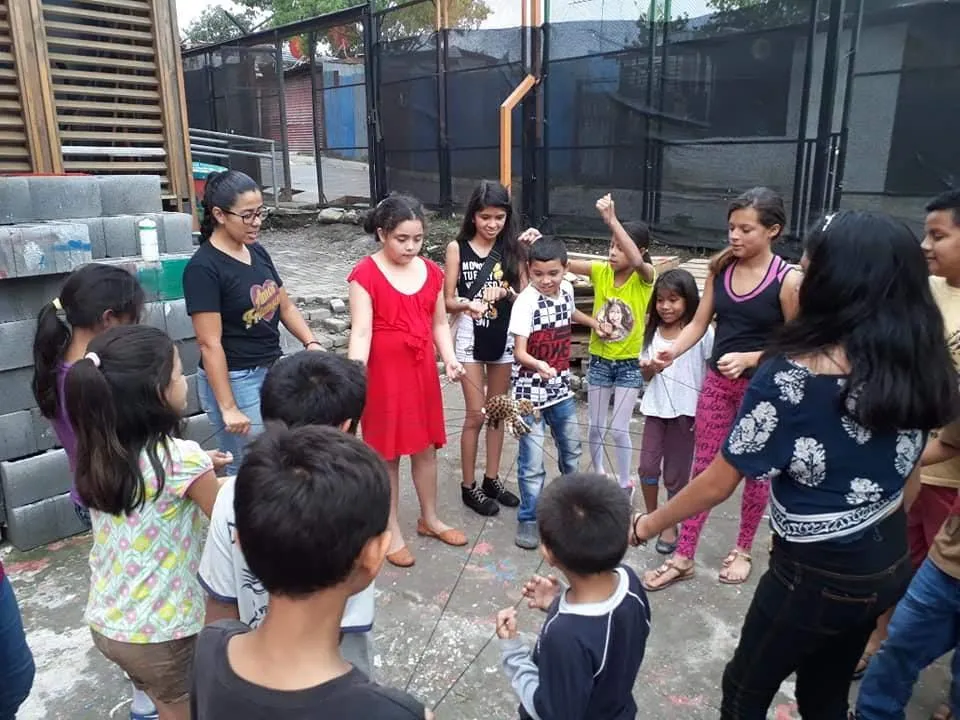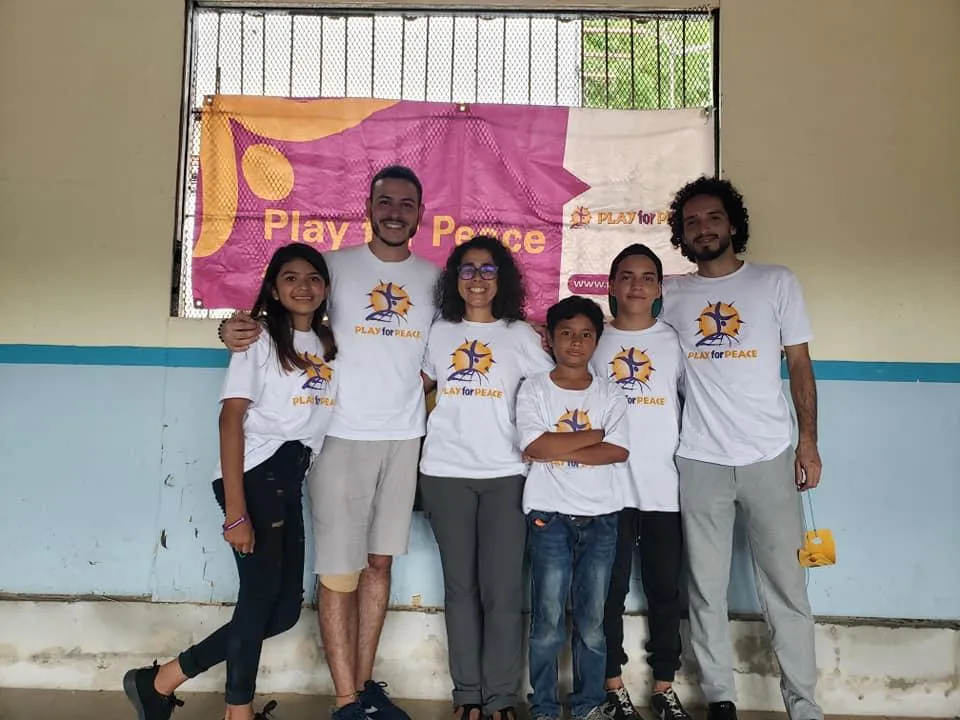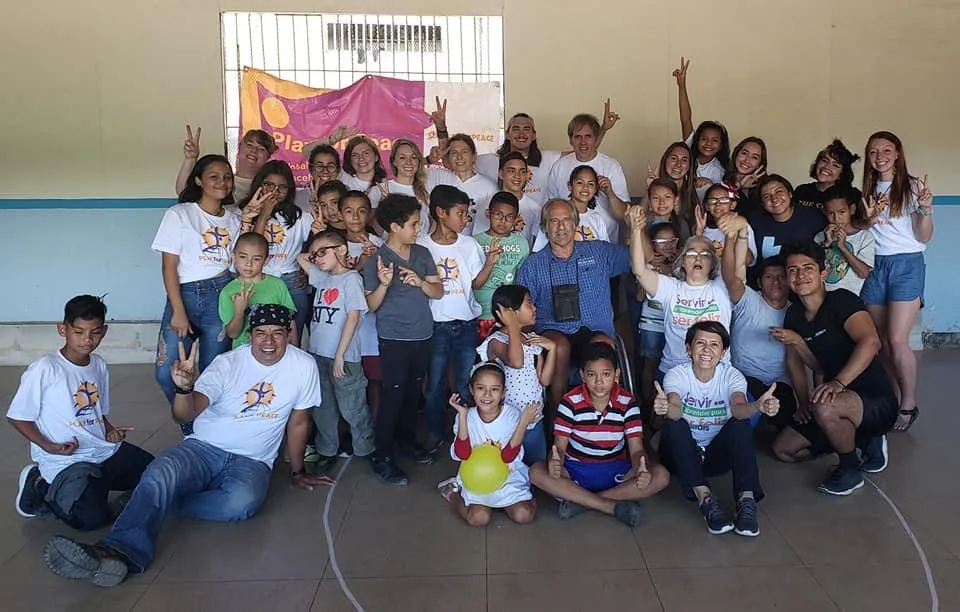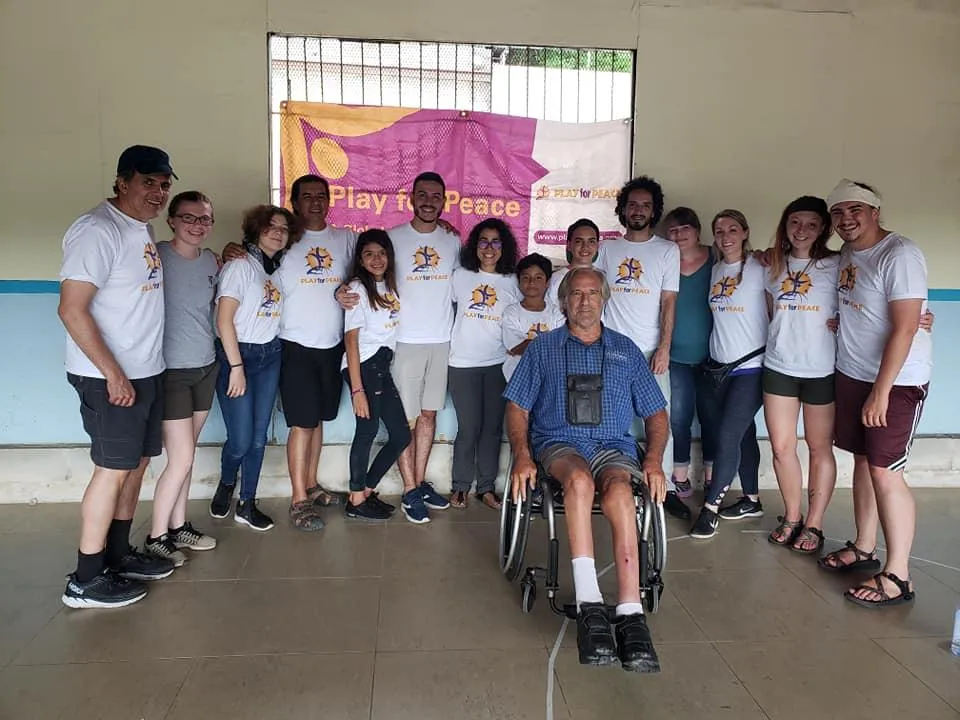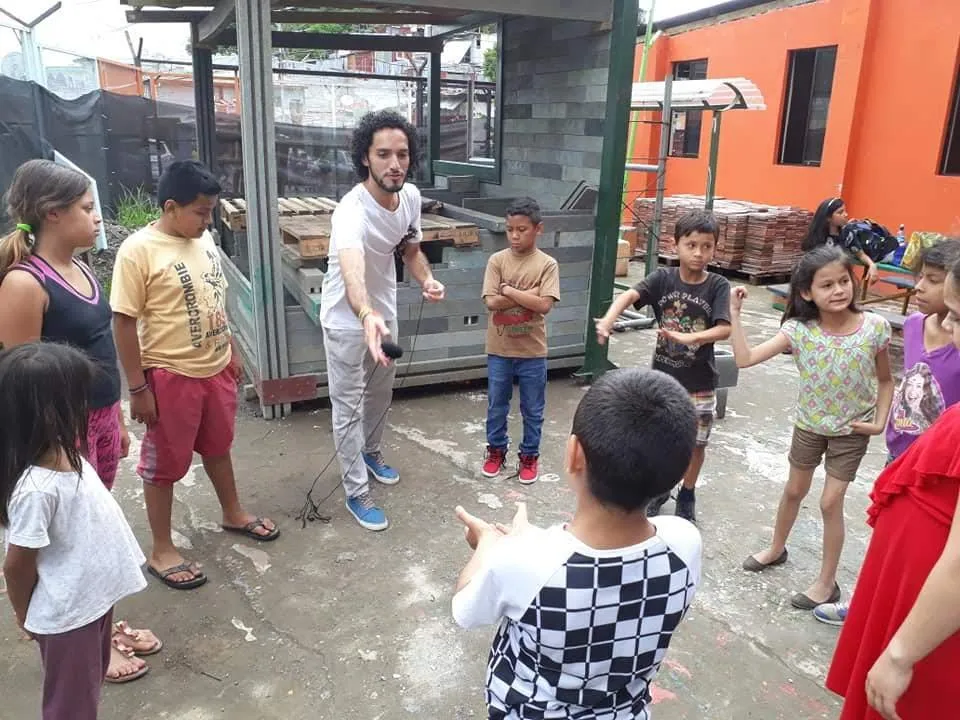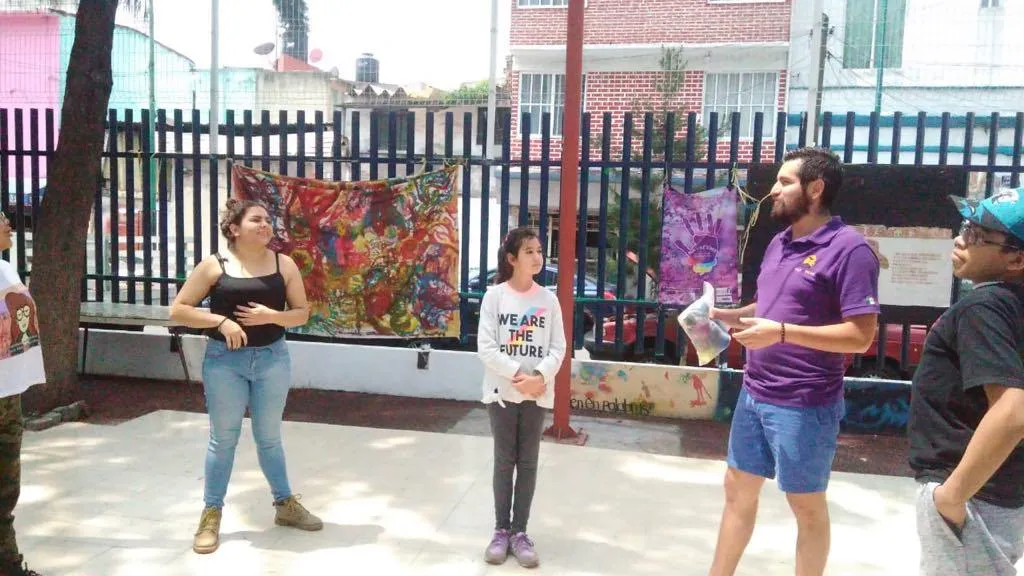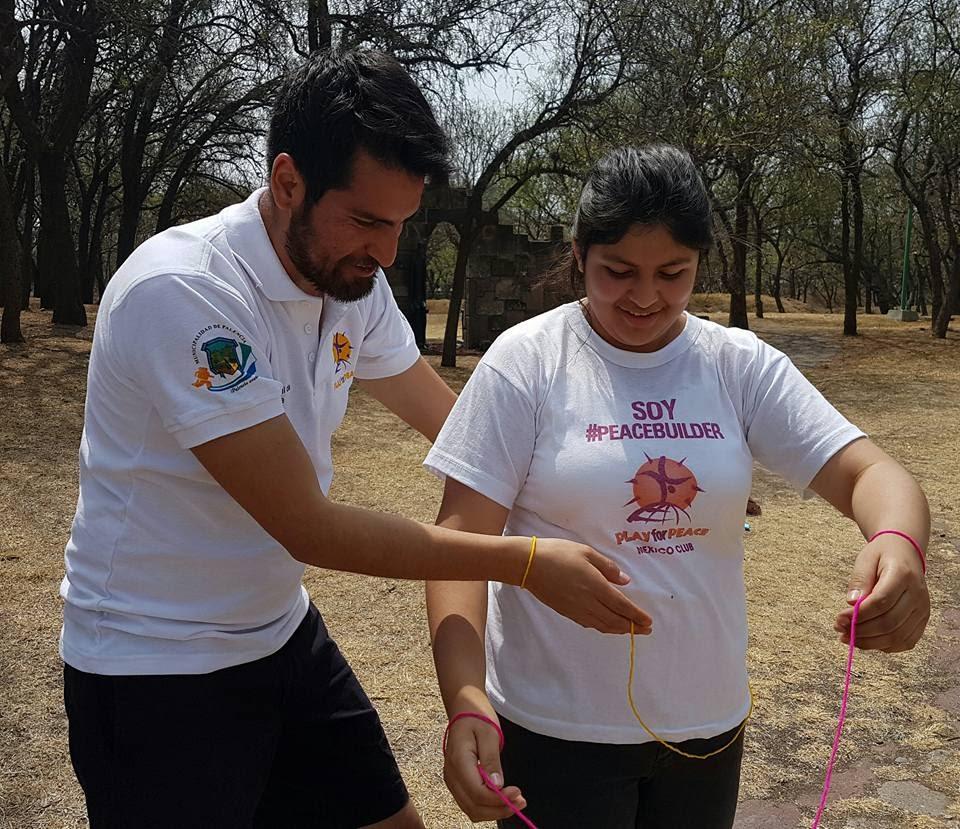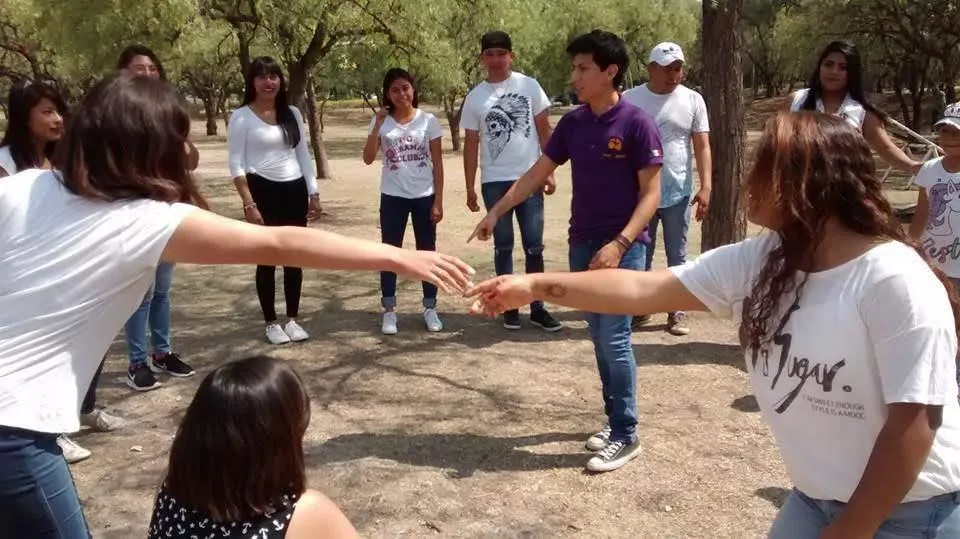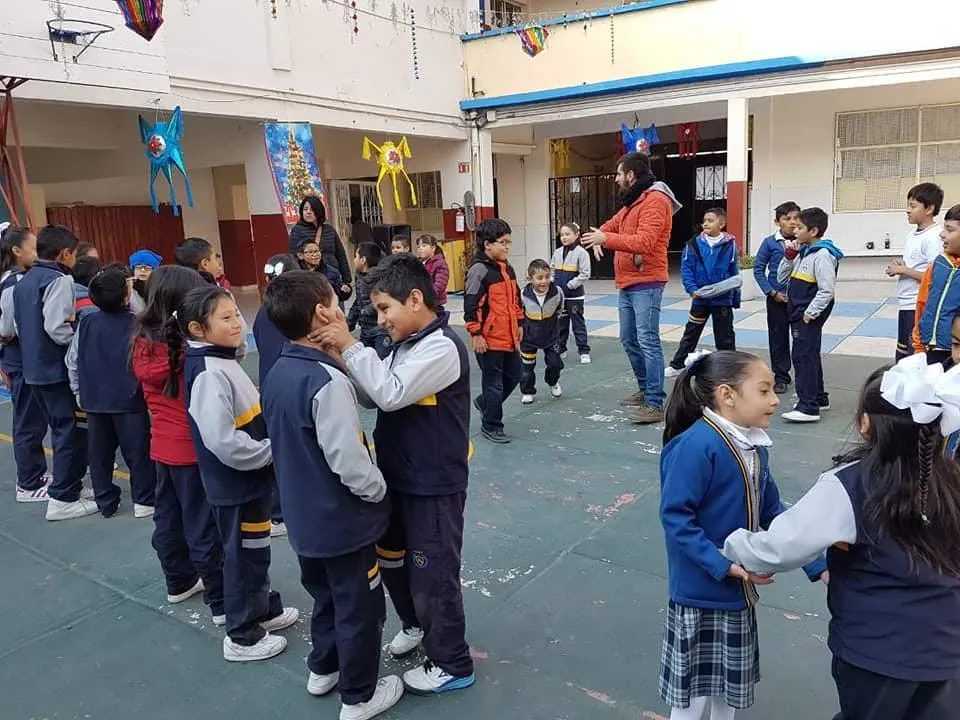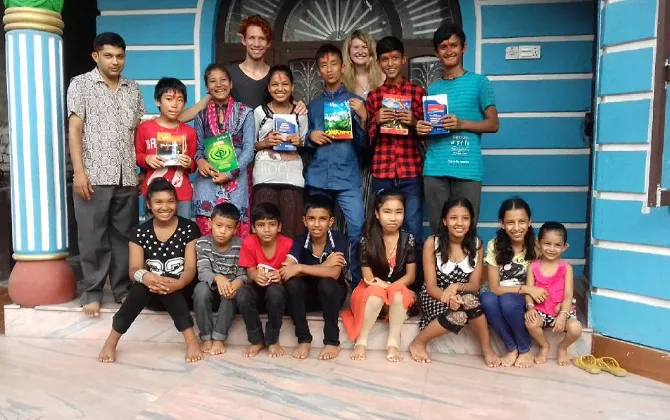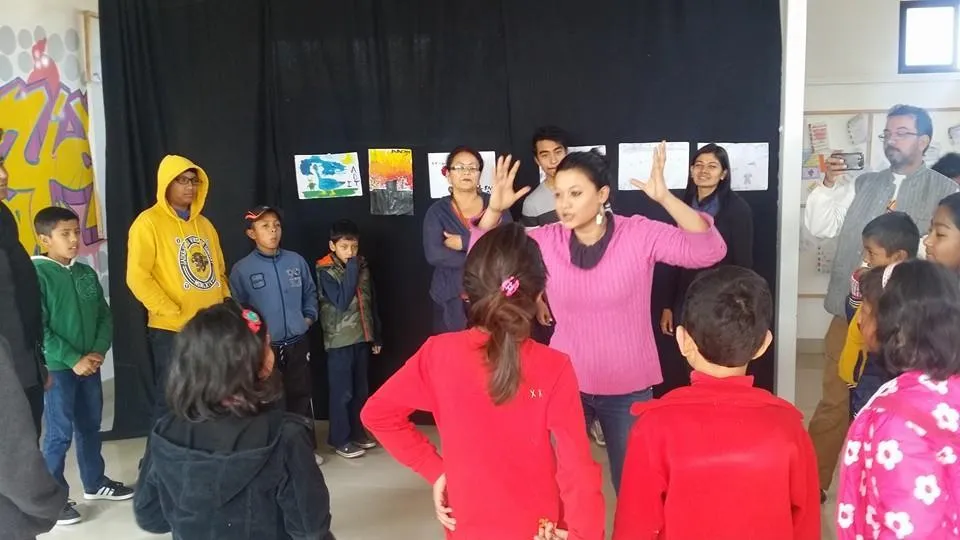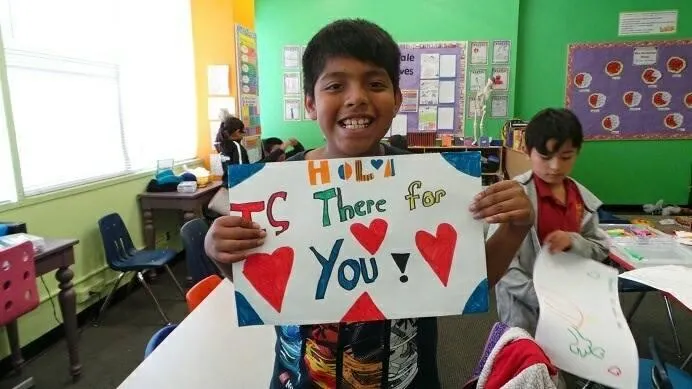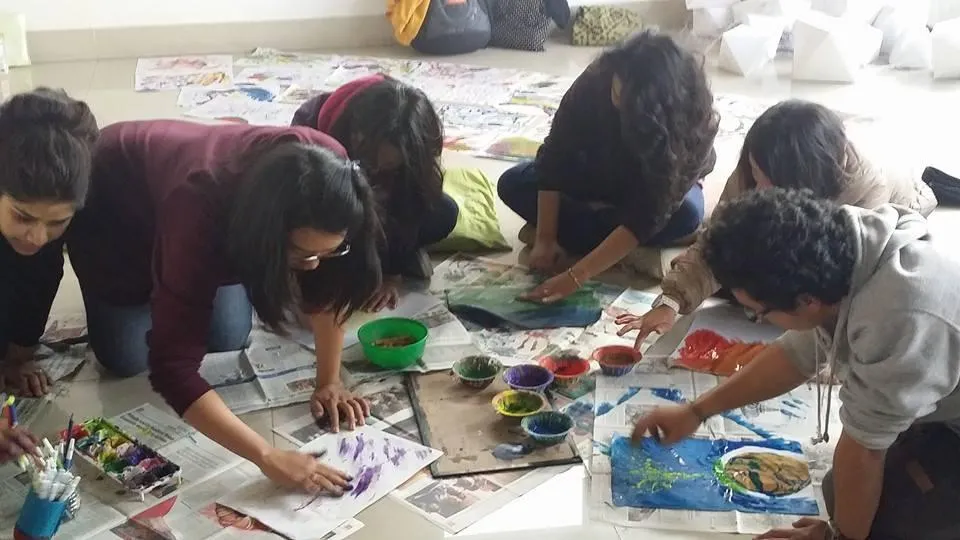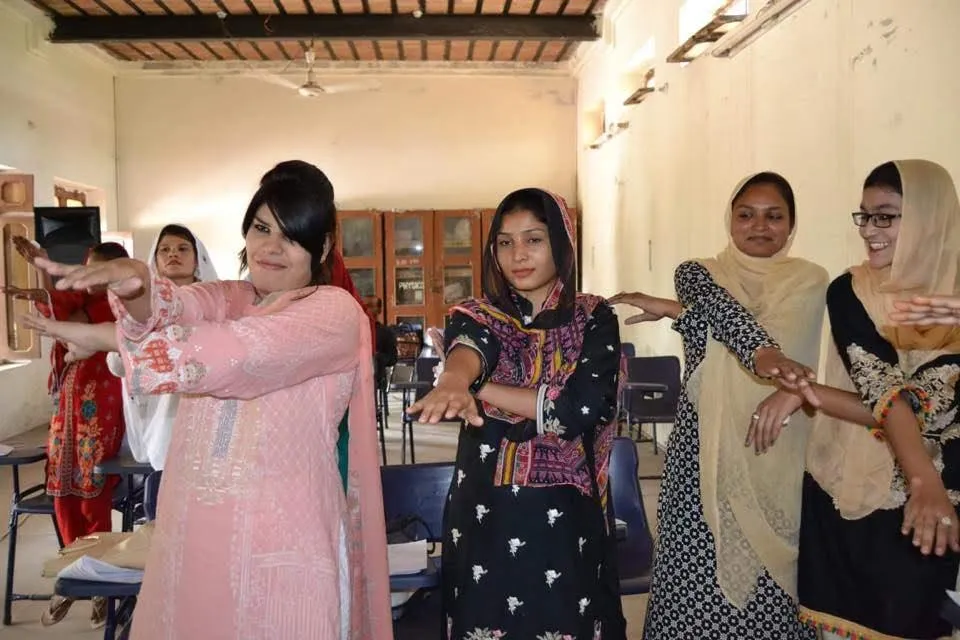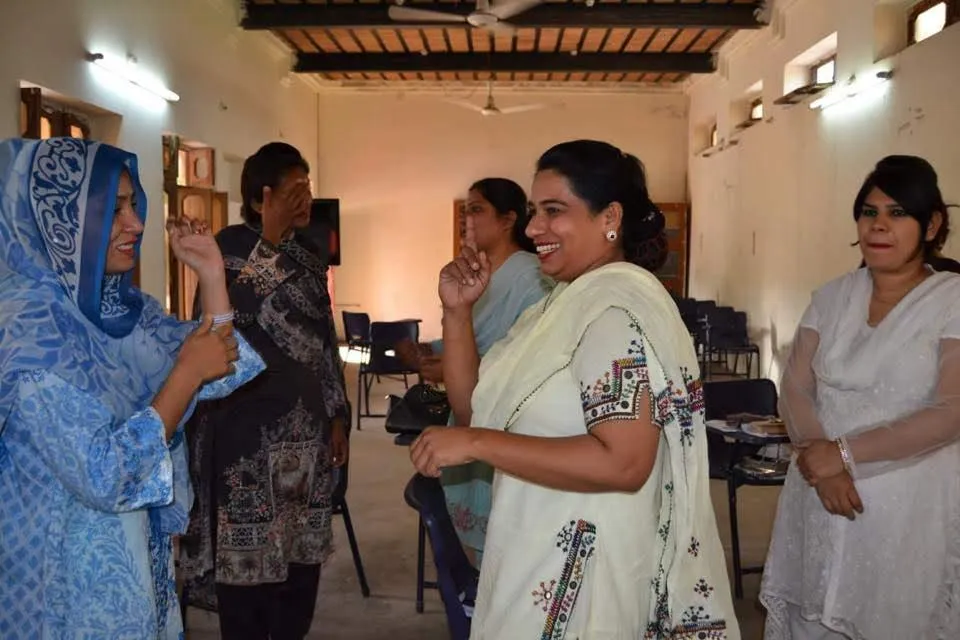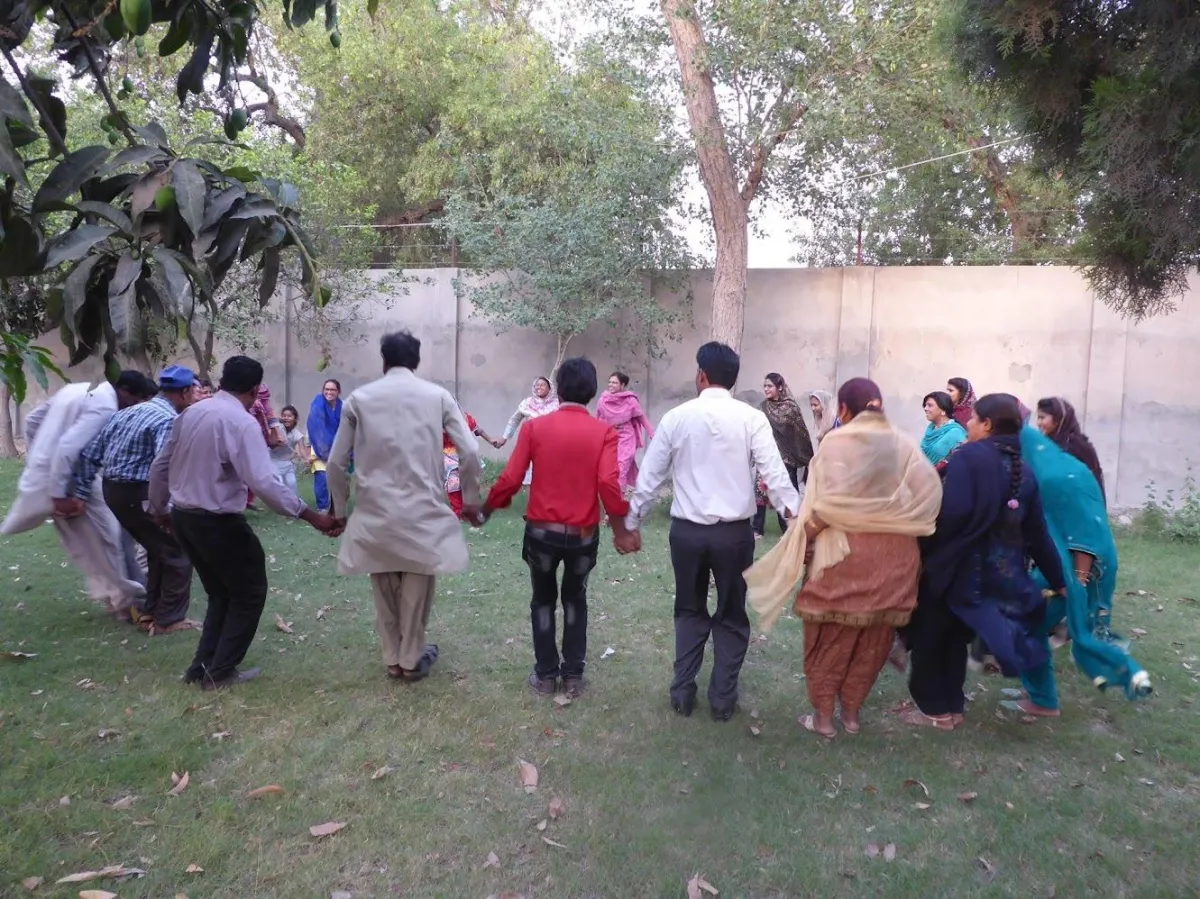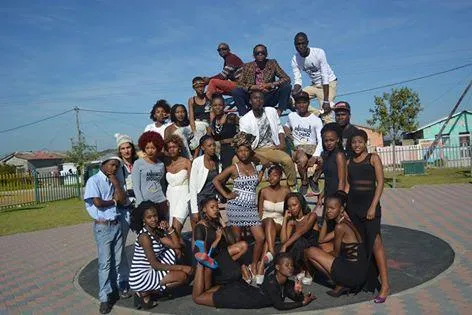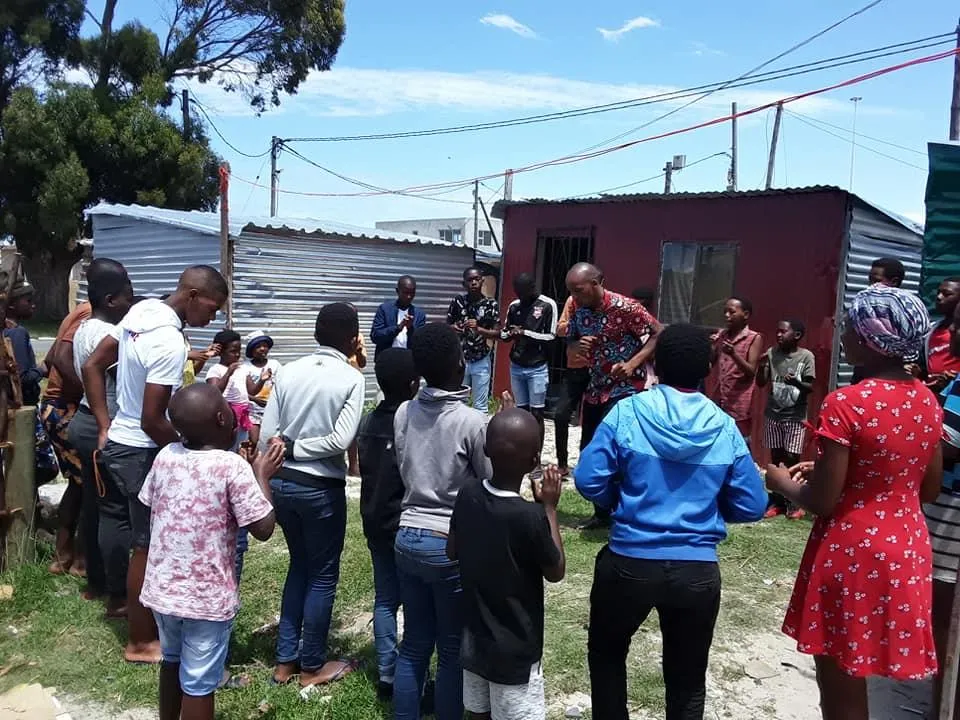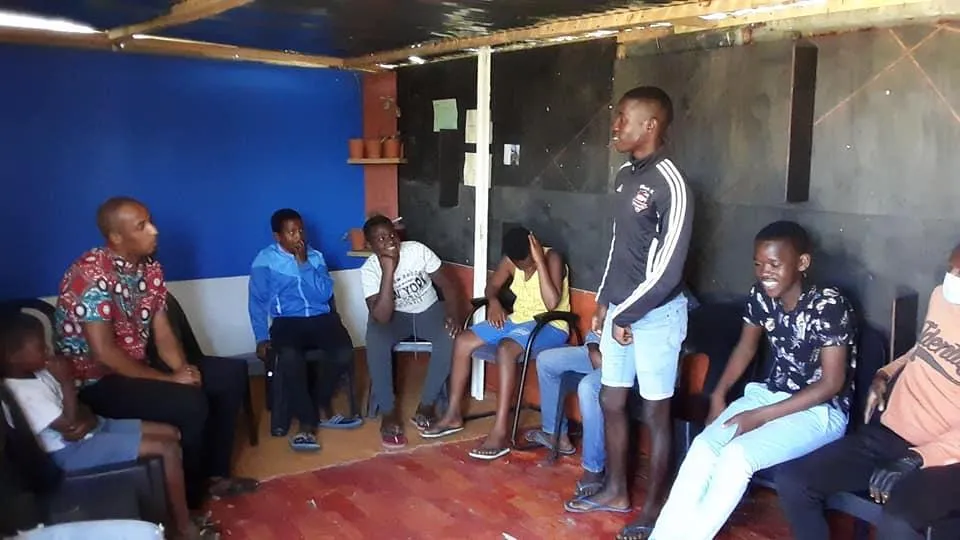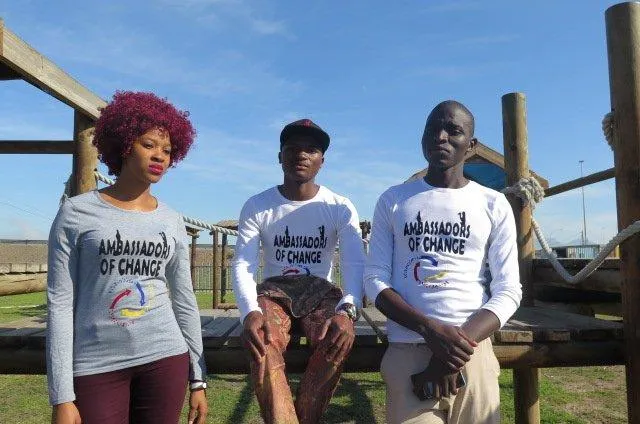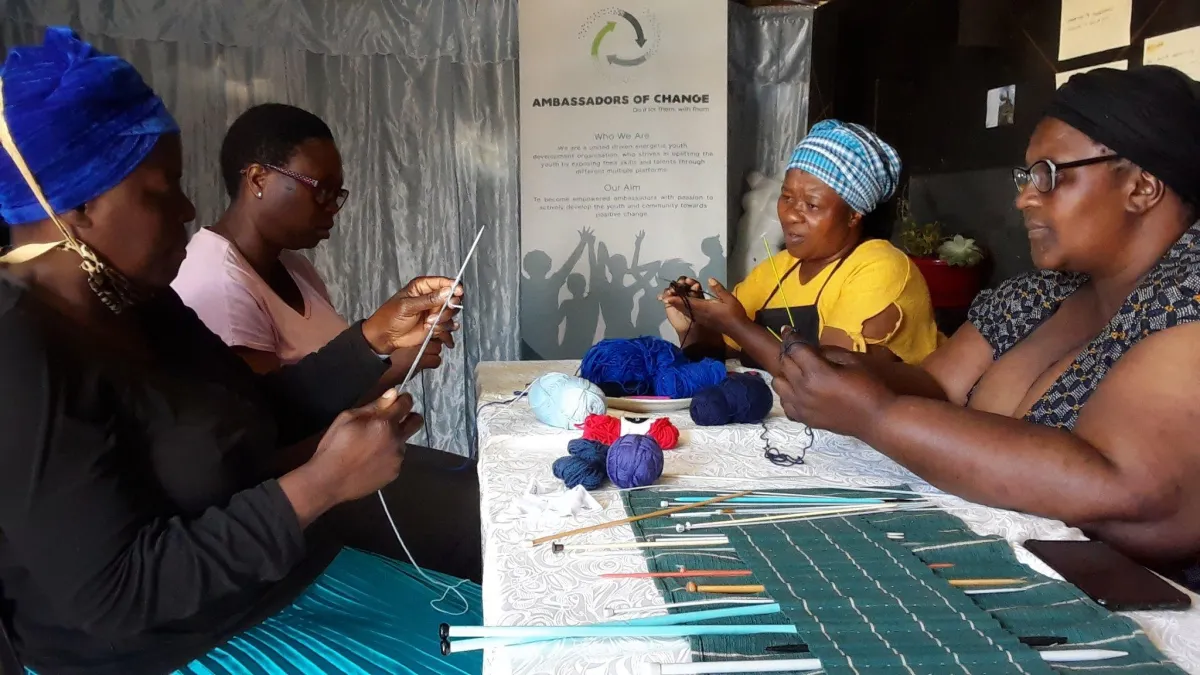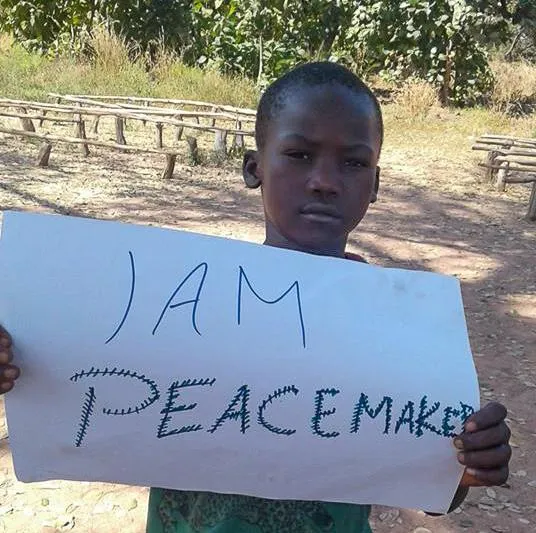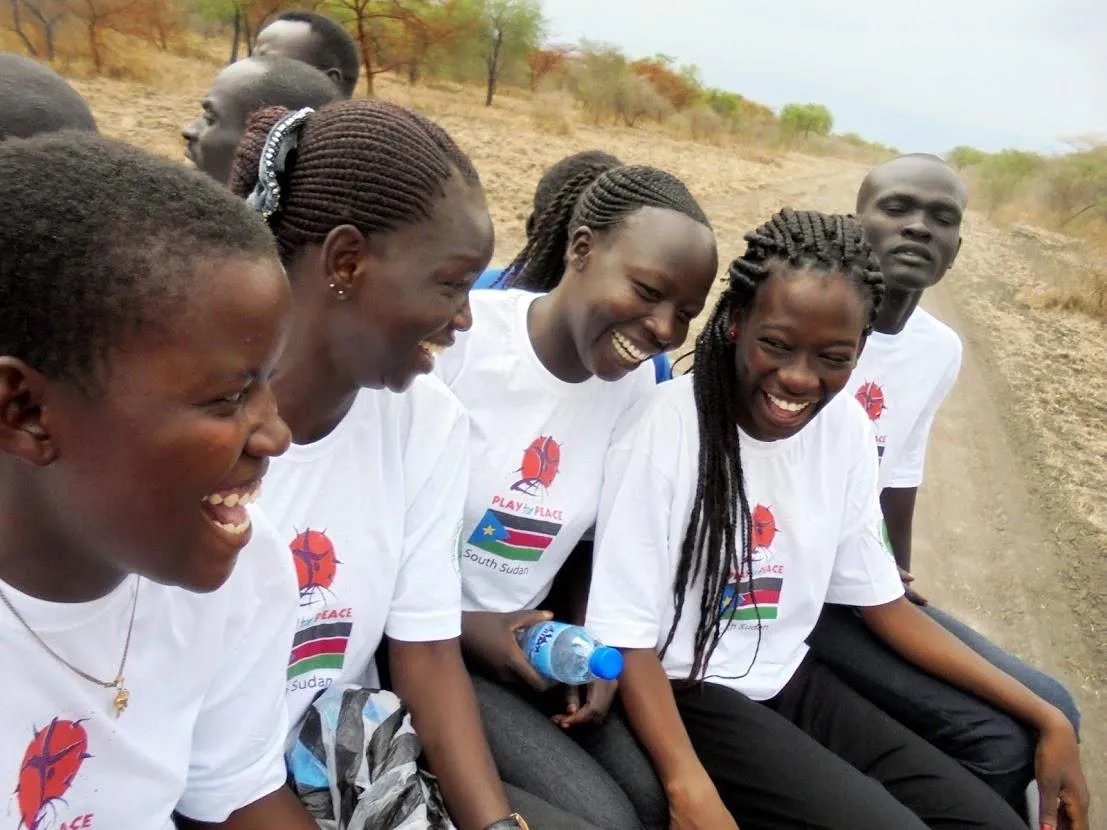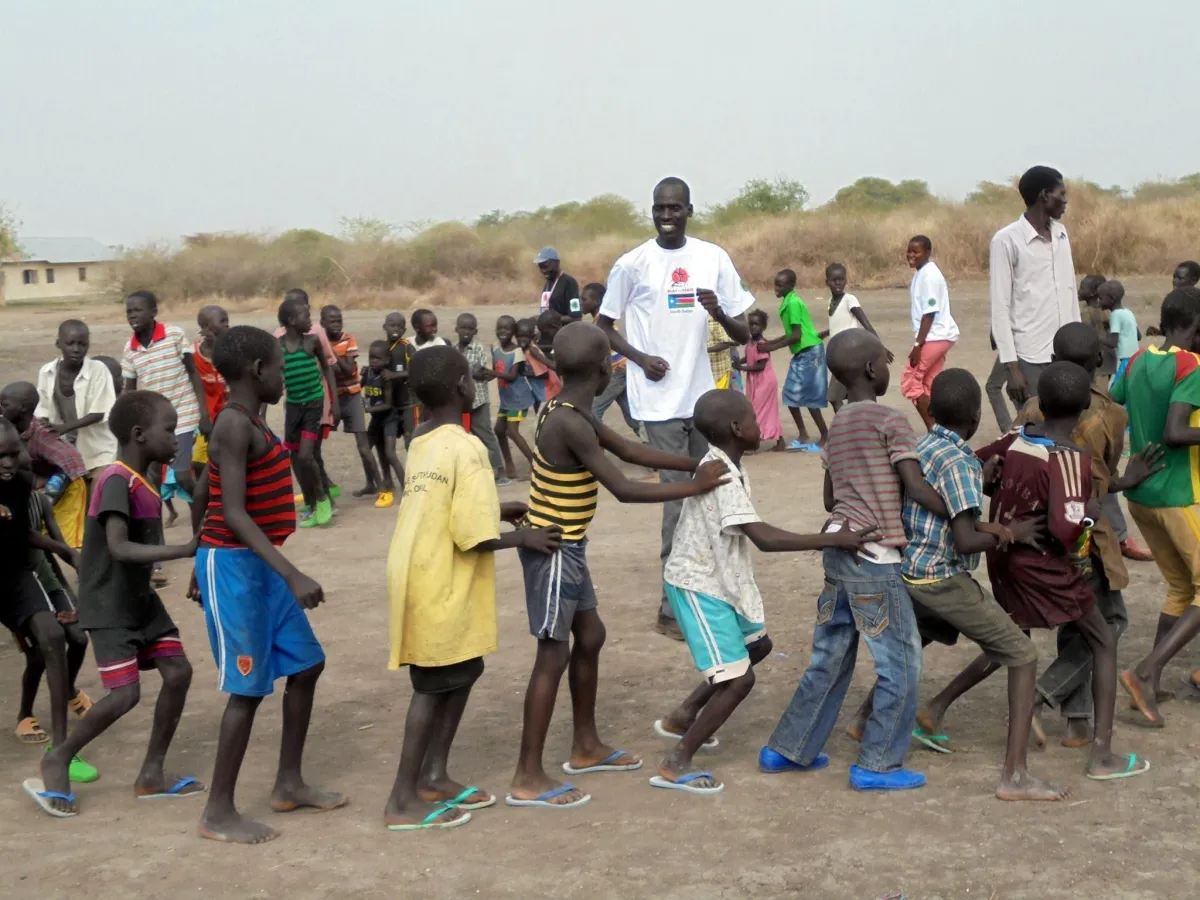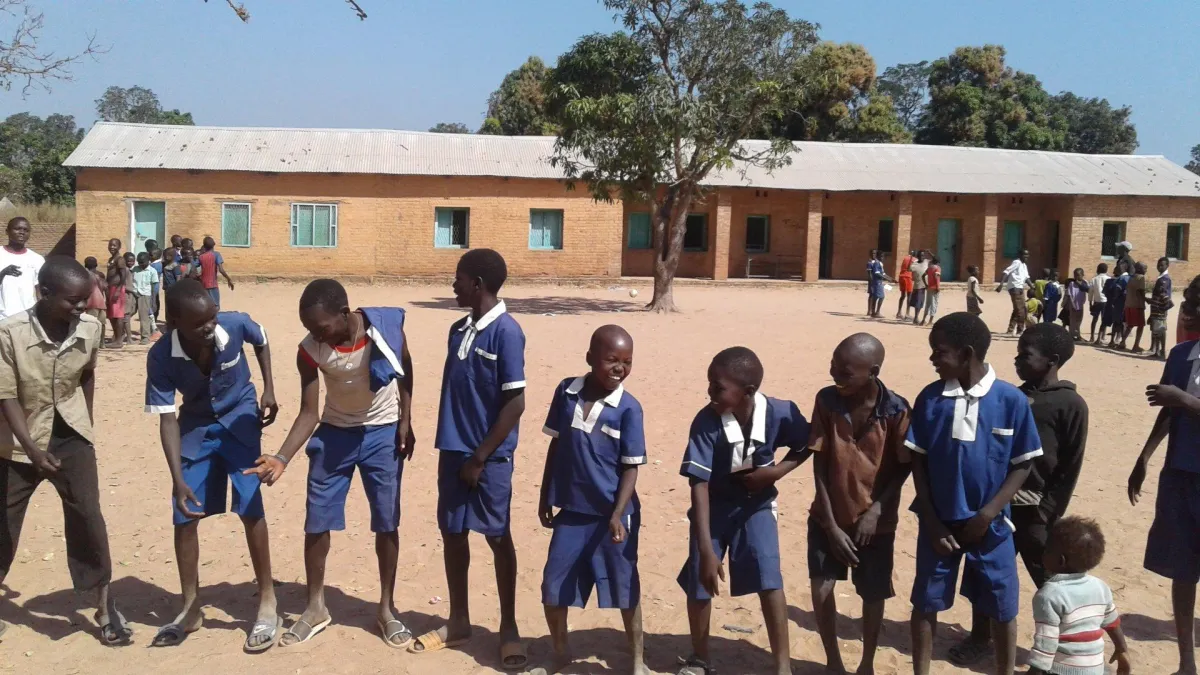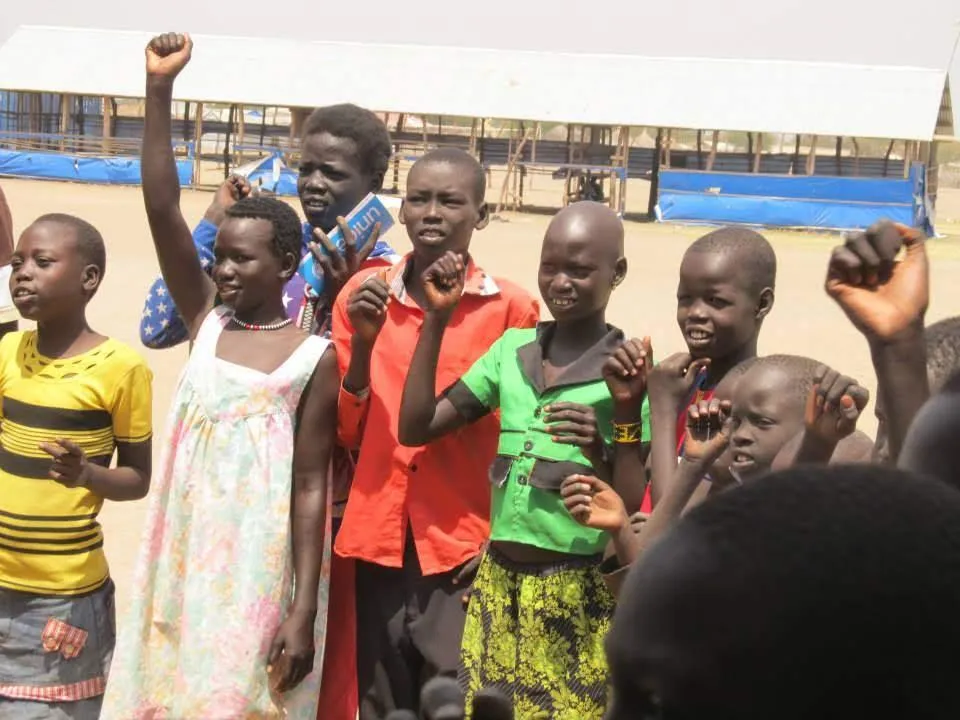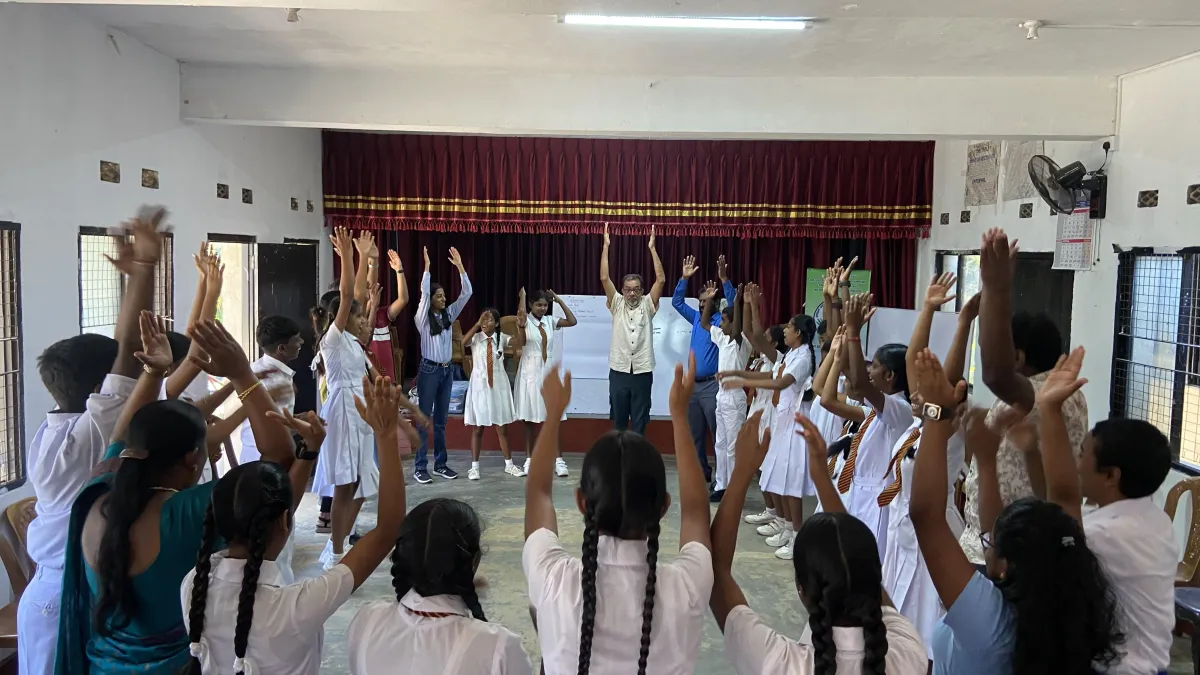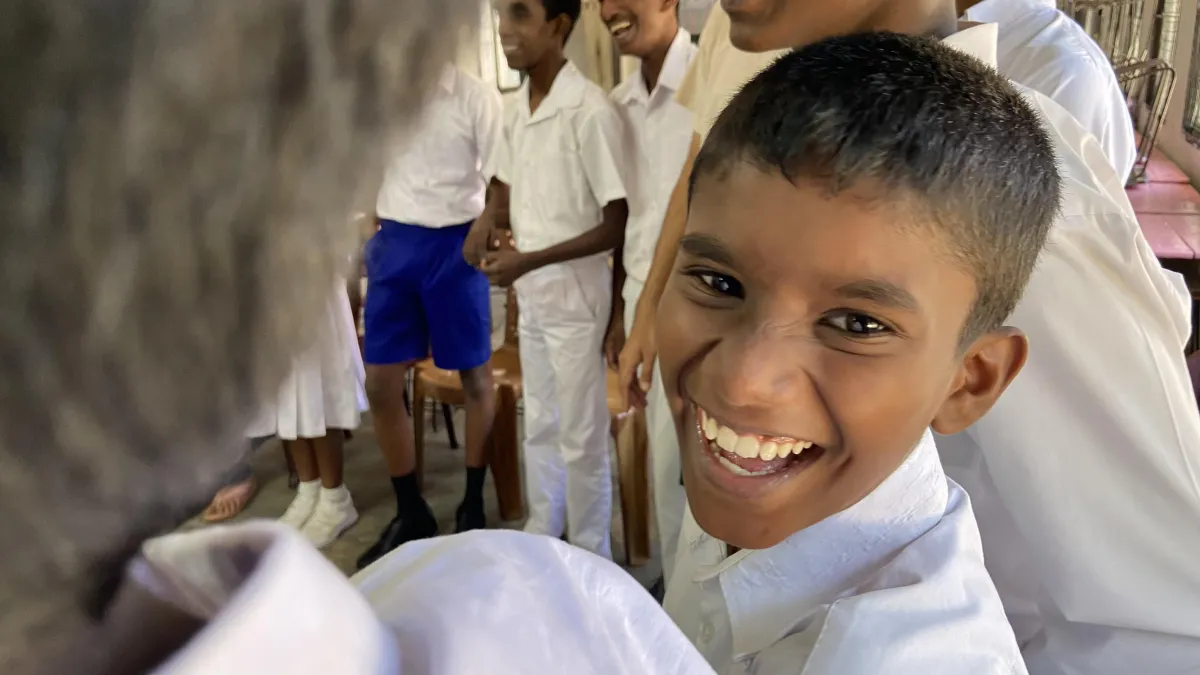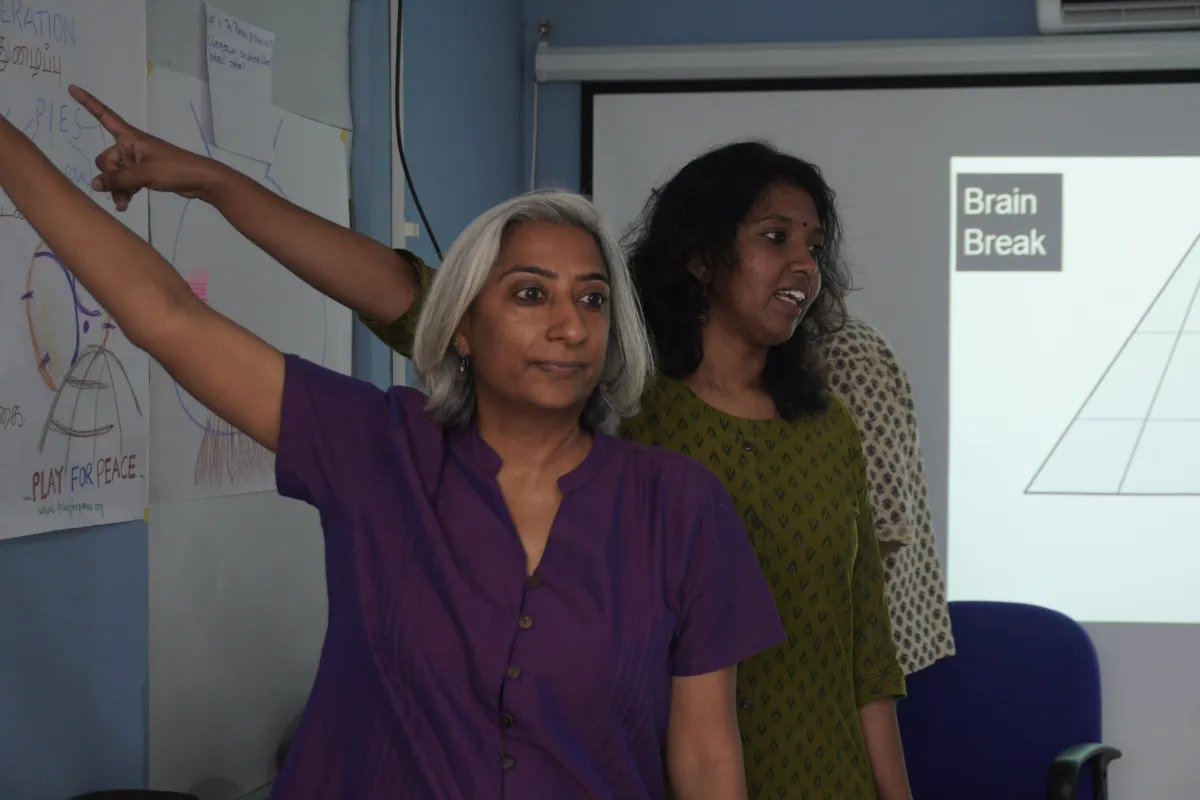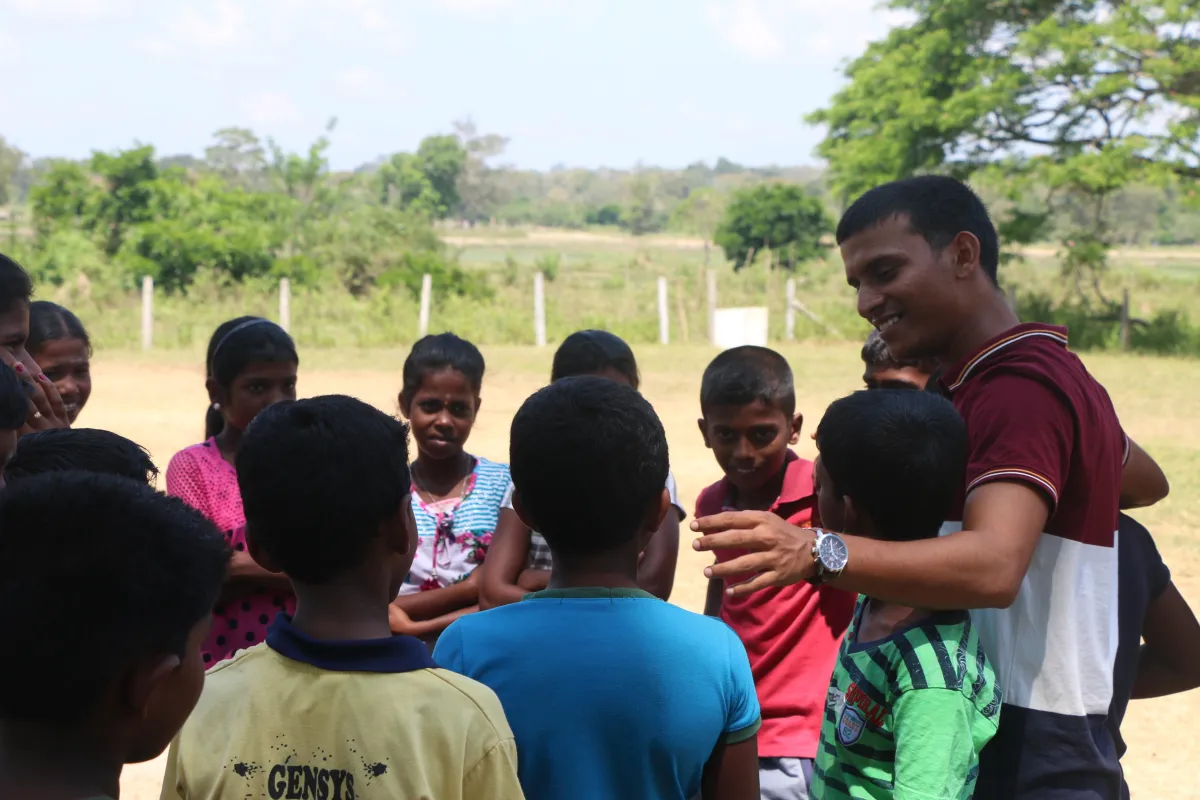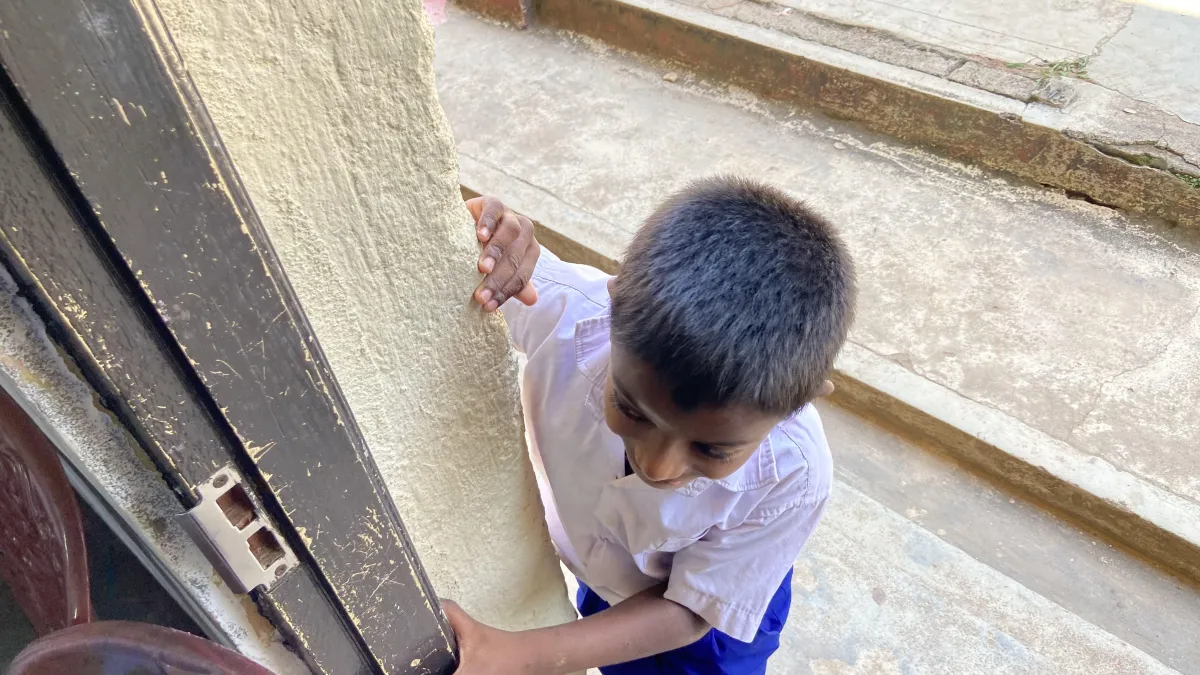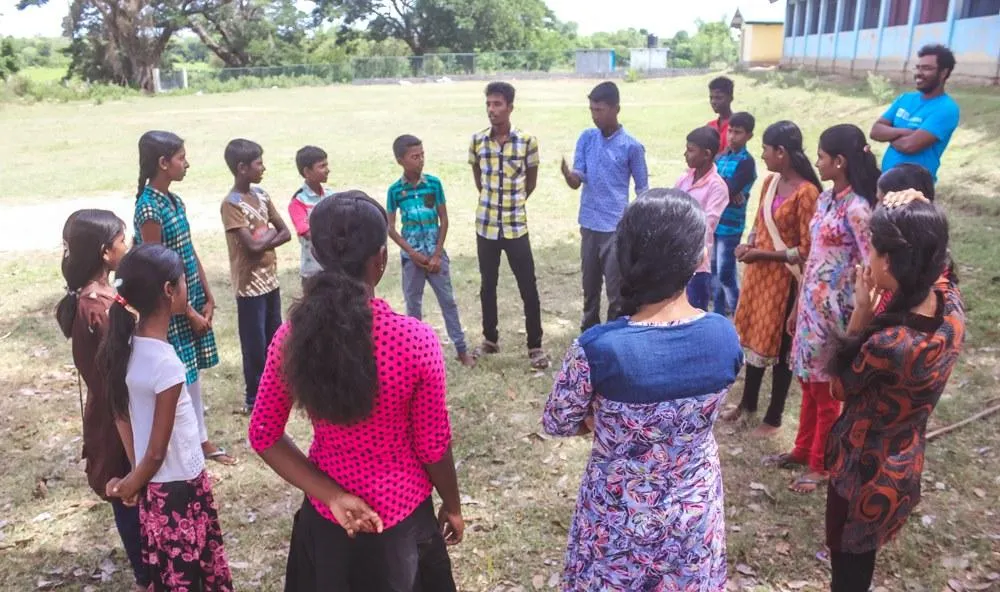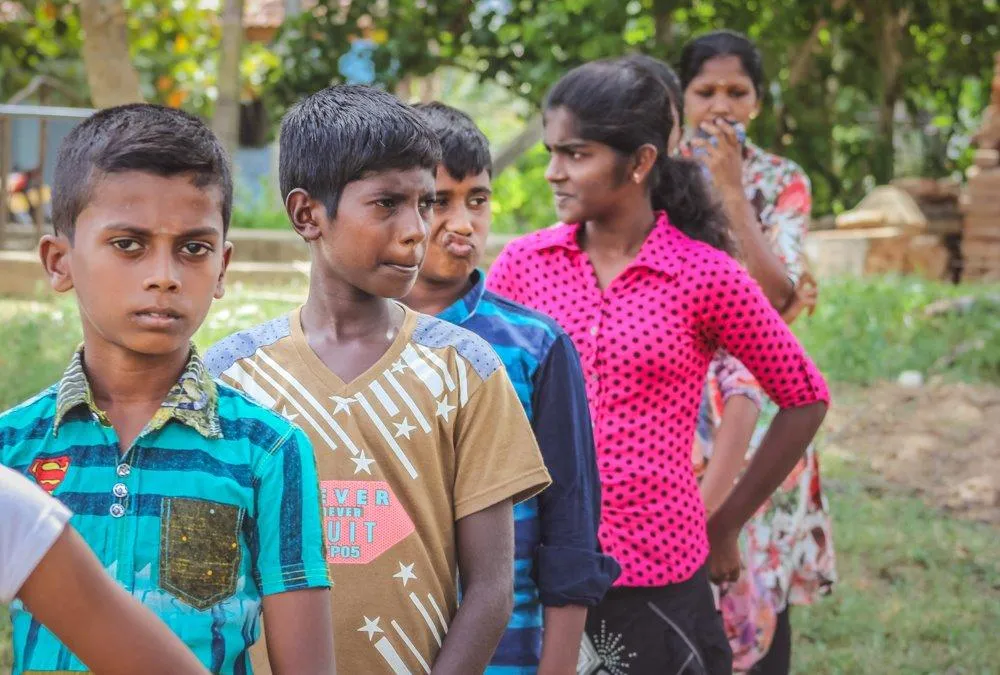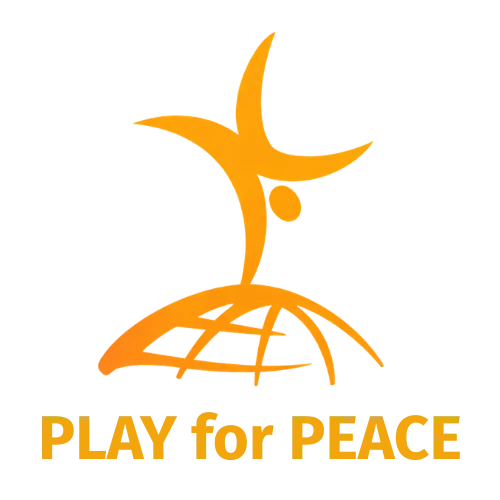Facilitators
The heart and soul of what we do, is supporting our youth-led Play for Peace Clubs. Play for Peace is focused on supporting youth leaders, comprising multiple ethnic groups and functioning as cohesive working teams, developing their Play for Peace understanding and skills. They then facilitate experiential processes and activities with children throughout the year, as well as implement self-initiated peace-building experiences in the broader community.
Youth today shapes the leaders of tomorrow

Play for Peace Clubs
Play for Peace clubs are groups of young people that implement Play for Peace activities in their neighborhoods, schools, communities, and organizations across the globe. Locally operated, clubs are run by at least five youth (15-25 years old) with the support of an adult mentor and initiated to create peace in communities experiencing conflict.
Afghanistan
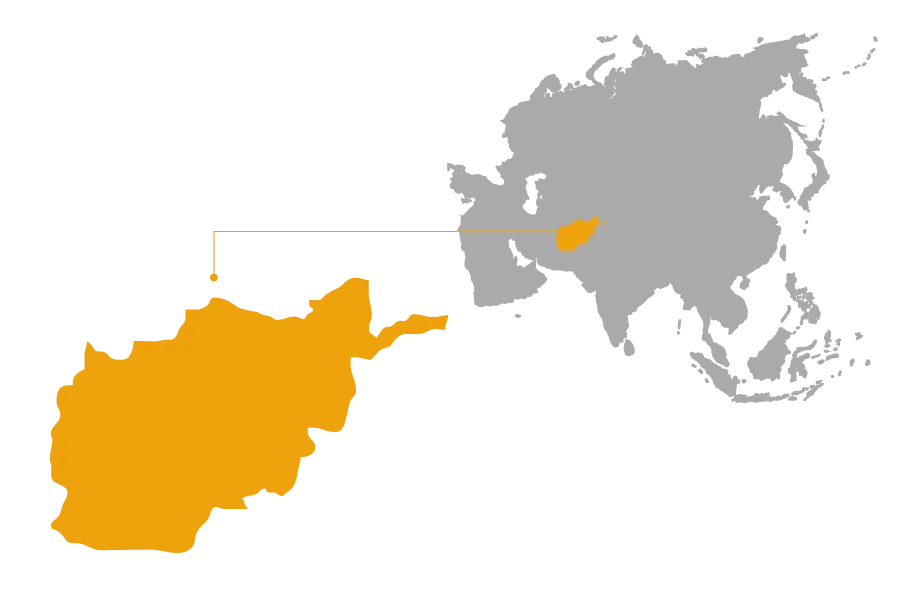
Country Overview
A completely landlocked country in south-central Asia, Afghanistan has a population of almost 30 million people. The country has suffered much political and economic instability throughout its history, including many decades of civil war. In August 2021, the 20-year US-led military presence in the country ended. The transition of power was marked by chaos, violence, and mass evacuations of foreign nationals and Afghan citizens. The new government has raised concerns about human rights violations, particularly regarding women and minority groups, and the potential for increased violence and instability in the region. The international community, including the United Nations and various governments, has called for protecting Afghan civilians and forming an inclusive government.
Play for Peace Origins
Their work began after certified trainers Swati Bhatt and Agyatmitra Shunya facilitated a training in Delhi, India, in January 2019 with several local peacebuilders who planned to bring Play for Peace to Afghanistan. After intense efforts to introduce Play for Peace concepts there, in February 2019, trainer Shafi K. and fellow participants held the first consultation meeting on how to utilize Play for Peace’s methods and practices in the Afghanistan community. In March 2019, the Omid Club was established but was closed in mid-2021 for the safety of the Play for Peace members and their community.
ACTIVE - IDP Project
To be added

CLOSED - Omid Club
Unfortunately, the Omid Play for Peace Club in Afghanistan was closed due to the circumstances. For years they worked tirelessly to create community engagement and participation, spread a culture of peace, and promote coexistence between and within local communities. The group brought laughter and joy to Afghan children who have suffered decades of war, violence, and conflict. They focused on helping these children cope with social disputes and inter-ethnic tensions and strengthening community participation and inclusion.

The Play for Peace Afghan Initiative
Since 2023, Play for Peace has been working with JRS staff in Afghanistan, facilitating workshops focused on experiential education, psychosocial well-being, and cooperative play. ...more
Afghanistan ,Global news &Community Engagement
April 10, 2025•2 min read
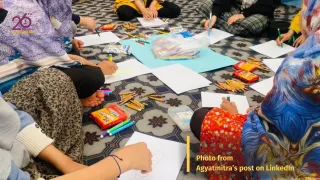
Inspiring Peace in Afghanistan
Discover how Play for Peace is empowering Afghan communities through virtual workshops and the Kikori app, fostering connection, learning, and peacebuilding, even in the most challenging circumstances... ...more
Afghanistan ,Global news
August 05, 2024•2 min read
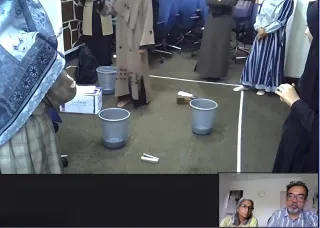
COVID-19 Crisis in Afghanistan: How You Can Help
The COVID-19 pandemic has affected countless communities of people in countries across the world, and Afghanistan’s Herat Province is no different. ...more
Afghanistan ,Global news
June 17, 2020•1 min read
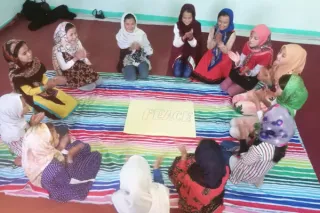
Burundi
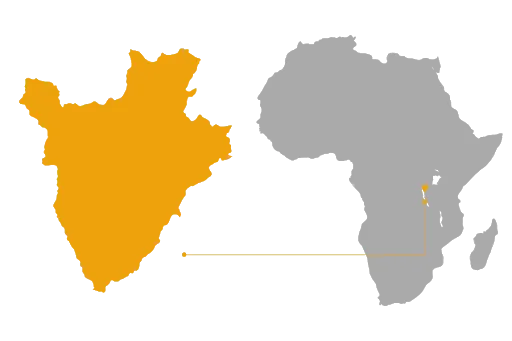
One of the smallest, yet most densely populated countries in Africa, Burundi shares a border with Rwanda, Tanzania, and Congo. In 2016, the country was ranked 184 out of 188 in the Human Development Index and is considered one of the poorest countries in the world. Like neighboring Rwanda—which experienced the unspeakable horrors of genocide when the Hutus attempted to decimate the Tutsi population in 1994—Burundi has faced ethnic violence and massacres between the two groups since gaining independence in 1962. Although peacekeeping attempts have been made and some of the violence has subsided, the situation in the country is unstable. In 2015, new conflicts broke out due to the president’s decision to run for a third term, causing hundreds of deaths and and many people to flee the country.
In February 2019, Play for Peace trainers Sam and Sarah Towers visited Burundi, hosting peace sessions with students, teachers, and staff in six different schools and working with partner THARS (Trauma Healing and Reconciliation Services). Since Play for Peace uses cooperative play to release tension and help people cope with trauma, THARS was very interested in learning about its methodology and integrating Play for Peace into its sessions.
The group in Burundi officially registered as a Play for Peace club in May 2019, with THARS as its partner organization. They are eager to work with the global learning community and connect with Play for Peace clubs around the world, sharing the same values of cooperation, inclusion, caring, and fun.
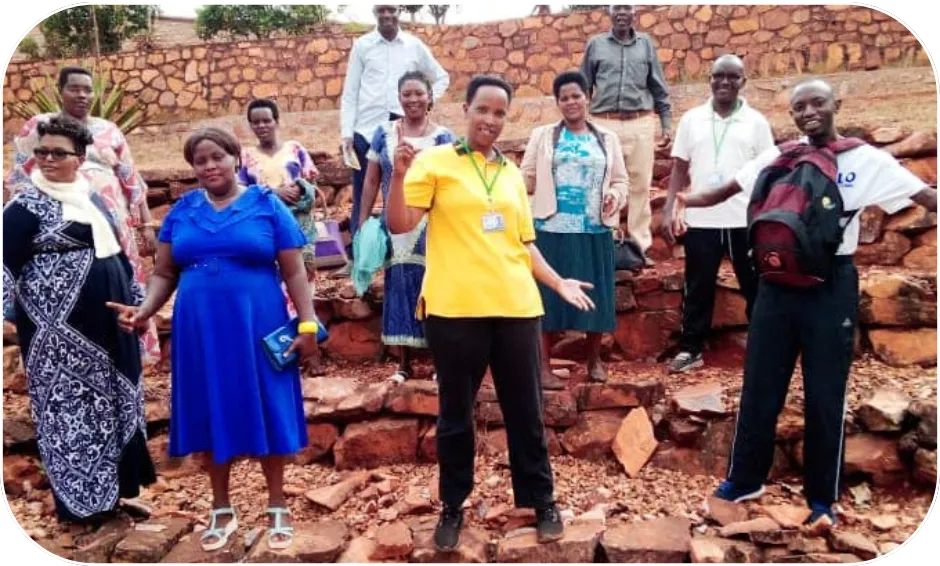
Healing Play
Location: Bujumbura, Burundi
Mentors: Obed Nijimbere
Partner: THARS
Description
In February 2019, Play for Peace trainers Sam and Sarah Towers visited Burundi, hosting peace sessions with students, teachers, and staff in six different schools and working with partner THARS (Trauma Healing and Reconciliation Services). Since Play for Peace uses cooperative play to release tension and help people cope with trauma, THARS was very interested in learning about its methodology and integrating Play for Peace into its sessions. After the success of these sessions, the group in Burundi officially registered as a Play for Peace club in May 2019, with THARS as its partner organization. Called the Healing Play Club, the group is eager to work with the global learning community and connect with Play for Peace clubs around the world, sharing the same values of cooperation, inclusion, caring, and fun.
Healing Play Session
30 professionals in Bujumbura gained tools to manage stress, resolve conflicts, and inspire positivity in their communities. ...more
Burundi ,Global news
October 10, 2023•1 min read
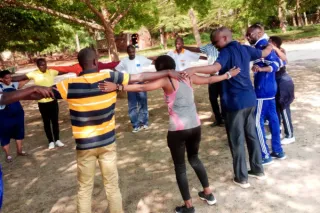
Overcoming Life’s Challenges
Youth facilitators Elie and Scheilla inspired teamwork and resilience in a powerful workshop with THARS staff, fostering healing and peace in the African Great Lakes Region. ...more
Burundi ,Global news
February 21, 2023•1 min read
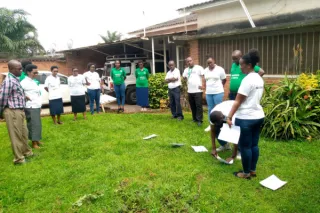
How to Overcome Obstacles
Knowing how to overcome obstacles can help you stay focused and calm under pressure. ...more
Burundi ,Global news &Community Engagement
February 21, 2023•1 min read
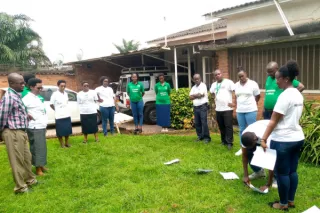
El Salvador
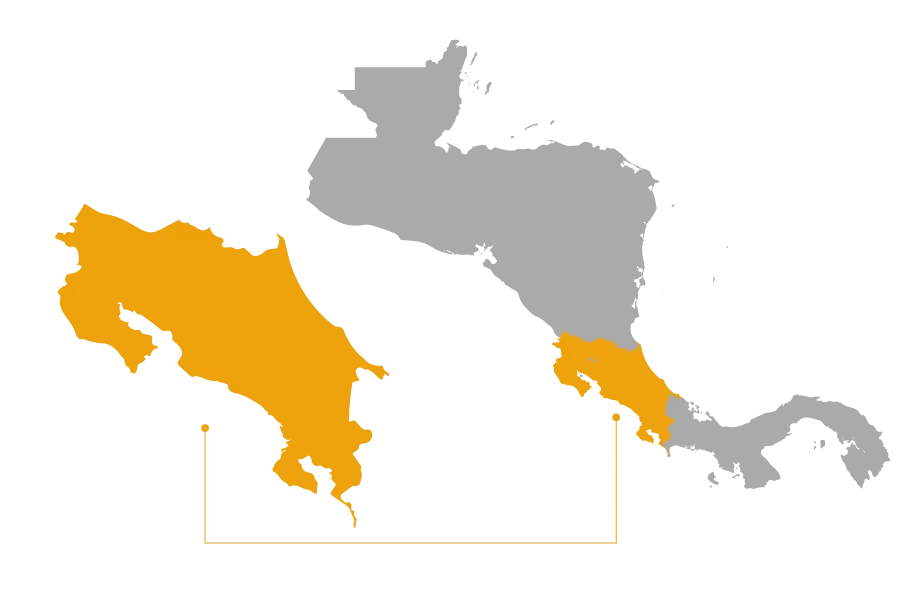
El Salvador is the smallest country in Central America though it is the 3rd densely populated country in the region. El Salvador first achieved independence from Spain in 1821 and from the Central American federation in 1839.
A peace agreement by the United Nations ended the 12-year civil war in 1992, but the country still suffers from a divided society. Violent “mara” street gangs have left the country with one of the world’s highest murder rates.
Central America has consistently been among the most violent regions in the world for the past 40 years. Guatemala, Honduras, and El Salvador – also called “the northern triangle” are still experiencing the aftermath of decades of Civil War in the region that left a legacy of violence and fragile institutions.
Play for Peace El Salvador Club was created by Fatima Landaverde, a native of El Salvador. She learned about Play for Peace a few years ago and immediately wanted to join our community and start a club in her home country. A passionate peacebuilder who works with local youth in Suchitoto, El Salvador, Fatima soon had the participation of young people in the area.
Suchitoto was very affected by the civil war that occurred between 1980 and 1992, and the people there are still dealing with its effects. Gang violence is a huge challenge for children and youth, not only the fear of violence but the concern that young people will join these gangs and continue the cycle of violence. For this community, Play for Peace is a chance for everyone to live in peace.
As of March 2022, the country experienced one of the deadliest days since the beginning of the pandemic from gang violence. Play for Peace El Salvador Club is up running in-person workshops again and gathering new youth from neighboring communities to come together and stand against the violence.
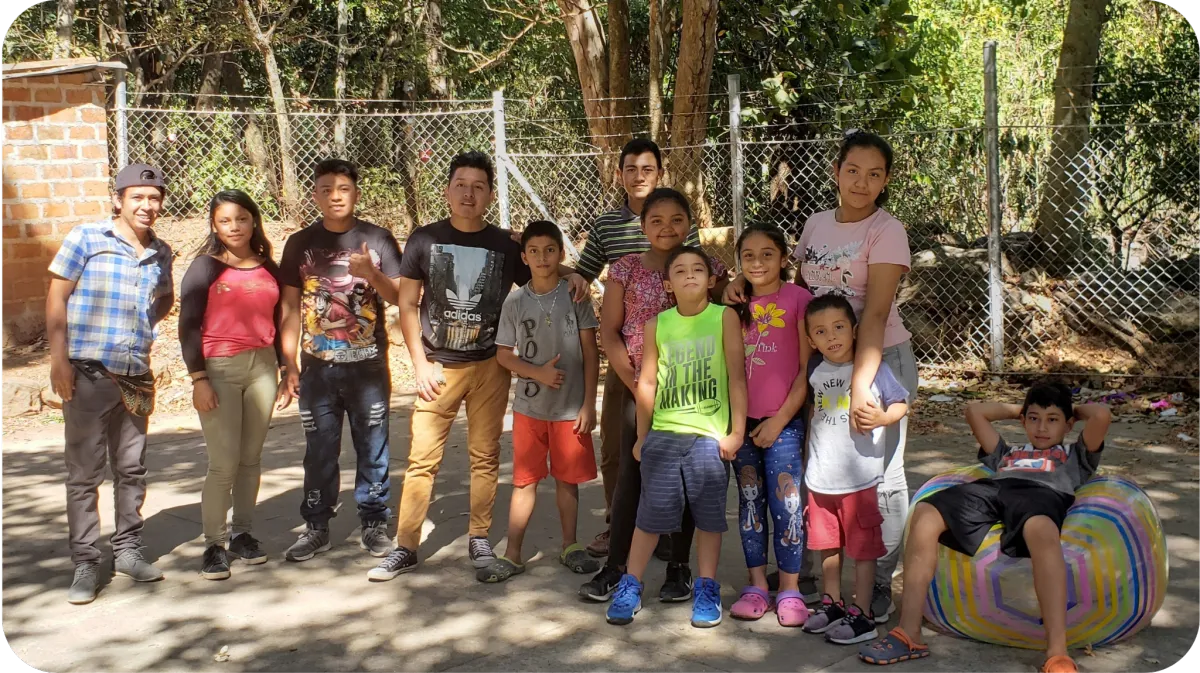
El Salvador Club
Location: Suchitoto
Mentors: Fatima Lavandre
Partner:
Description
The El Salvador Club was started in 2019 in Suchitoto,
Spreading Play for Peace to El Salvador
We are always excited to share when Play for Peace has spread to new communities where people can greatly benefit from our peace building efforts—and even more so when these new efforts are in a count... ...more
El Salvador ,Global news Peace Trainings &Community Engagement
February 13, 2019•2 min read
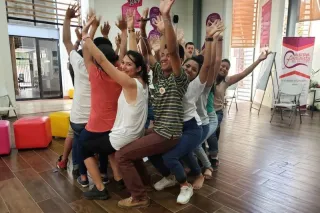
Greece
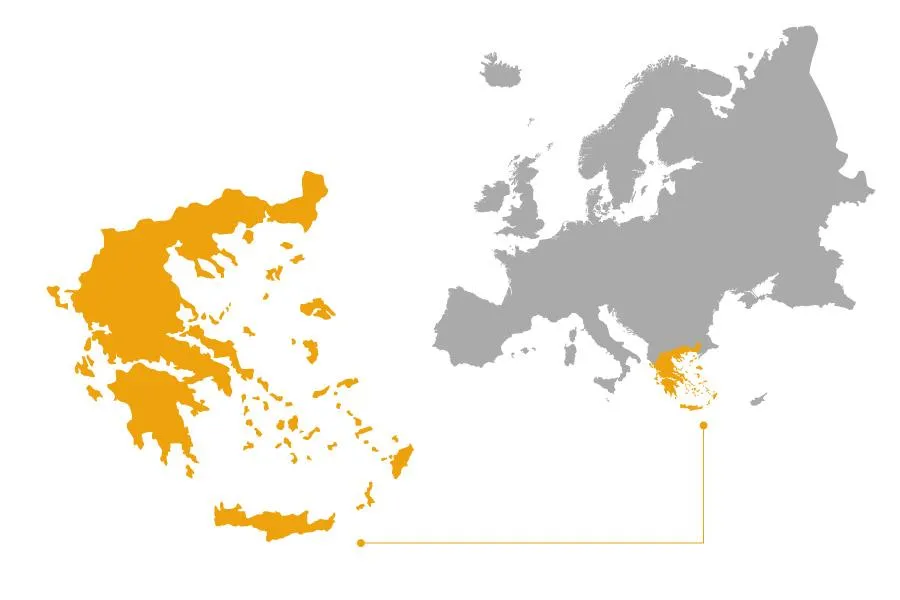
Greece was hit very hard by the financial crisis of 2008–2009, and the country is still suffering today. The unemployment rate is high, the social system has almost collapsed, and many educated youth have left the country to find opportunity elsewhere. The country is also dealing with the effects of the civil war in Syria, Iraq, and Afghanistan, which has forced thousands of people to flee their countries and settle in Greece. While the European government is working to find a solution to the refugee crisis, more and more lives are being devastated by the terror and violence of war.
Play for Peace Greece began when trainers Swati and Agyat came to the local Skaramangas refugee camp for a 10-day training in early 2017. The youth in attendance were deeply impacted and eager to learn how to facilitate Play for Peace sessions. They soon began gathering kids from the camp to play together, making them laugh and helping them forget all they had been through.
The Skaramangas group soon caught the attention of Olimpia Theodoli, founder of the children's charity Crete for Life. She invited youth leaders from the camp to facilitate play sessions in Crete for children from Chernobyl, who are still impacted by the 1986 nuclear plant explosion. Youth leaders there learned how to make children happy and that even if the world sees them as victims they can still be leaders in their communities. Inspired by their work at Skaramangas, many youth facilitators from the camp have moved to different countries and taken Play for Peace with them.

AMAL Club
Location: Athens, Greece
Mentors: Belen Ruiz and
Saam Murad
Partner: Skaramangas Refugee Camp
Description
The AMAL Club is comprised of refugees from Syria, Afghanistan, and Iraq who live in the Skaramangas Refugee Camp in Athens, Greece. Most of them speak English and Arabic, and some speak Kurdish. Supported by Drop in the Ocean, the AMAL club brings together participants three times a week in the camp’s community center. They aim to give children and youth hope while living in at the refugee camp, where the fluctuation of people in and out is very high. Youth and volunteers are exposed to Play for Peace methods and activities, and then take their learning to other places. Much like Athens was the cradle of democracy in the ancient days, it is now the cradle of Play for Peace Europe.
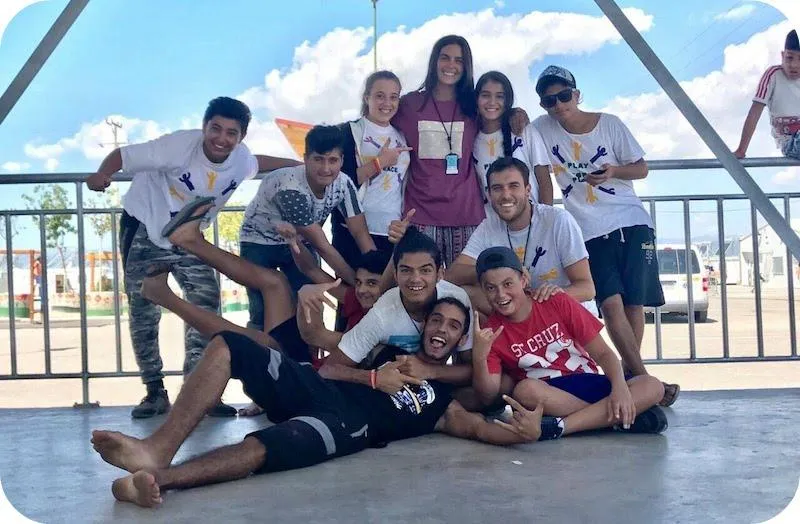
Crete for Life Club
Location: Crete Island, Greece
Mentors: Olimpia Theodoli
Partner: Crete for Life
Description
Crete for Life is a non-profit organization that, among other activities, supports sick and disadvantaged children by offering them a restorative summer holiday in Crete. These children, many of them coping with life-threatening diseases, might otherwise never experience a holiday. When founder Olimpia Theodoli met the Play for Peace club in Skaramangas in 2017, she was so impressed by their work that she invited the youth leaders to Crete to bring Play for Peace activities to Belarussian children who were still suffering from the aftermath of the 1986 nuclear explosion in Chernobyl. The program was so successful that it continued in 2018 with the Play for Peace groups from Galilee, Israel, and the Skaramangas refugee camp. Together, the youth leaders cared for and played with orphaned children from Belarus, which was an unforgettable experience for both the children and youth leaders.
How Play for Peace United Cultures in Crete
Discover how youth leaders from diverse backgrounds brought laughter, healing, and unity to Belarussian orphans in Crete through Play for Peace’s transformative mission. ...more
Greece ,Global news
November 08, 2018•3 min read
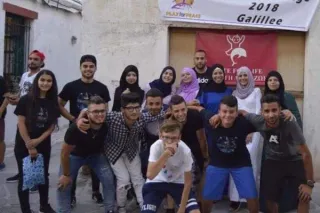
Bringing Joy to Children in Crete
When youth leader Shaimaa A-Shmaisy stepped on the plane that took her from Israel to Crete, she was worried about one question: “How will I manage to make children happy?” ...more
Greece ,Israel &Global news
November 08, 2018•3 min read
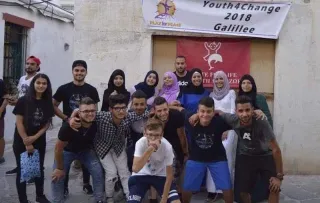
The Power of Play in the Aftermath of War: Rayan Salam
Imagine having to leave everything you know behind and travel thousands of miles in dangerous and uncertain conditions. ...more
Greece ,Event Highlights &Stories and Reflections
March 15, 2018•6 min read
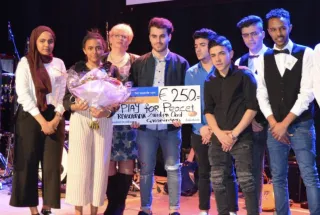
Guatemala
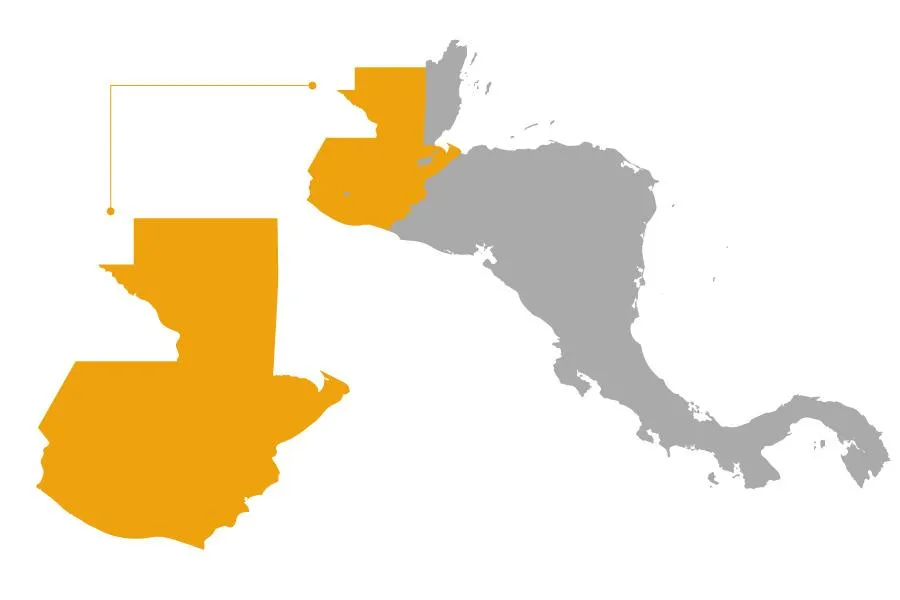
Once the heart of the ancient Mayan civilization, Guatemala boasts a rich heritage that is still woven throughout its culture. Sadly, the country suffered a 36-year civil war that ended in 1996, a conflict that left the country deeply scarred. As a result, Guatemala has one of the highest violent crime rates in the world and the indigenous population is largely affected by discrimination and lack of access to basic necessities and education. Youth are both victims and perpetrators of violence, and gang life is a daily reality. Violence has affected the population so much that the World Health Organization declared youth violence as a global health problem and has recommended the need for effective prevention programs.
Play for Peace is active in seven different communities, both urban and rural, and the clubs are diverse in population—made up of indigenous groups, a women's collective, and university students. All of the communities where Play for Peace is active struggle with poverty and violence. Youth facilitators there work to build relationships with the children they meet during play sessions, and most children return regularly to participate, learning to cooperate in a group and make new friends. Several children, who started out as participants, are now youth facilitators who bring change and peace to their communities.
The work of youth leaders in Guatemala is growing in number and impact. They will continue to bridge divides between ethnic groups and inspire hope in children and youth in communities affected by conflict.
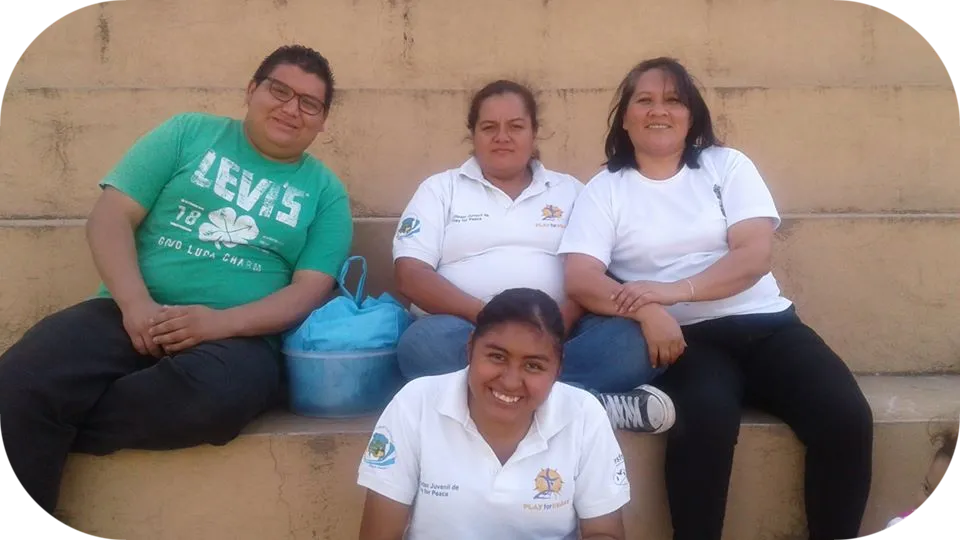
Palencia Club
Location: Palencia, Guatemala
Mentors: Wendy Bamaca
Partner:
Description
Play for Peace Club in Guatemala Palencia Club Founded as Play for Peace Club: 2013Mentors: Wendy Bamaca Regional Coordinator: Andrés ArmasLocation: Palencia, GuatemalaFocus: Inclusion and social transformation, promoting social entrepreneurship and community healing.It began in 2013 through an agreement with USAID in a Violence Prevention Program. After completing the USAID project, the young motivated facilitators followed their club as volunteers implementing the methodology of Play for Peace for the prevention of School and Community Violence in schools and communities organized in Palencia, Guatemala.“In our Play for Peace group there is a strong level of companionship. You make new friends, share learning with others, help each other, and trust other people. This created important learnings like partnership and companionship throughout the whole group.” Widespread violence, income disparities, and social disintegration affects all of Guatemala deeply. As part of the Northern Triangle in Central America, it is considered one of the most dangerous areas in the world. In this region, youth are seen as both victims and perpetrators of violence with gang life a daily reality for the civilian population. The effect this violence has on the population is overwhelming, so much so in fact, that the World Health organization has declared youth violence as a global health problem and recommends effective prevention programs that include life skills and social development as well as school-based anti-bullying programs. Palencia is a small town on the outskirts of the most dangerous areas of Guatemala City and suffers from waves of violence that spill into their community. The Play for Peace in Palencia Club gives the children and youth and alternative to gang life. Founded in 2012 with funds provided by RTI, USAID and CECI as part of a violence prevention program the youth meet weekly, have an established youth board of directors and lead Practice Peace Sessions monthly in local schools.
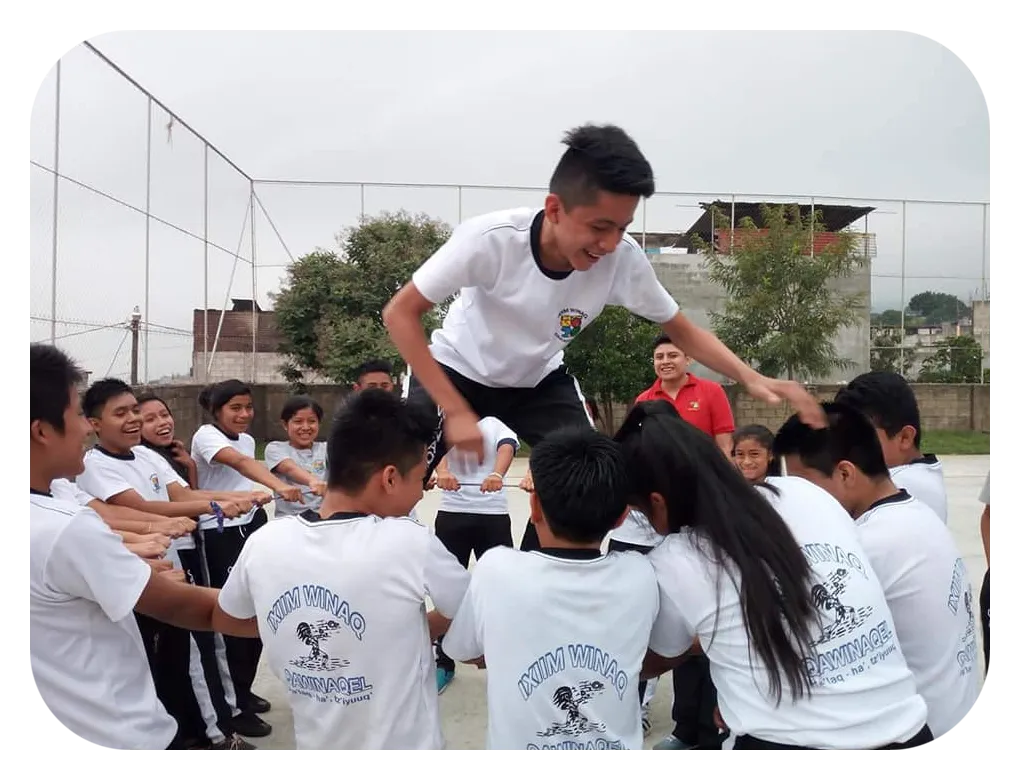
Qawinaqel Club
Location: Palin Escuintla, Guatemala
Mentors: Teresa Raguay
Partner: Asociación Juvenil Poqomam Qawinaqe
Description
The Poqomam Qawinaqel Youth Association is currently led by young people and teachers who in 2008 received the Play for Peace training and now support their students to strengthen their leadership and contribute to create better citizens for the better future of their communities. Its focus is education, preserving the Poqomam culture, preserving land and natural resources, leadership and Peace.

Cuyuta Club
Location: Cuyuta Masagua, Escuintla Guatemala
Mentors: Israel del Aguil
Partner:
Description
This Club partner to Play for Peace is led by educators and volunteers committed to the formation and rights of children and Juventus. Its programs include violence prevention, citizen education. The strongest challenges they have on the high death and violence in their community. They use the Play for Peace process in schools, schools and youth groups organized on issues of leadership and peace.

Crete for Life Club
Location: Crete Island, Greece
Mentors: Olimpia Theodoli
Partner: Crete for Life
Description
Crete for Life is a non-profit organization that, among other activities, supports sick and disadvantaged children by offering them a restorative summer holiday in Crete. These children, many of them coping with life-threatening diseases, might otherwise never experience a holiday. When founder Olimpia Theodoli met the Play for Peace club in Skaramangas in 2017, she was so impressed by their work that she invited the youth leaders to Crete to bring Play for Peace activities to Belarussian children who were still suffering from the aftermath of the 1986 nuclear explosion in Chernobyl. The program was so successful that it continued in 2018 with the Play for Peace groups from Galilee, Israel, and the Skaramangas refugee camp. Together, the youth leaders cared for and played with orphaned children from Belarus, which was an unforgettable experience for both the children and youth leaders.
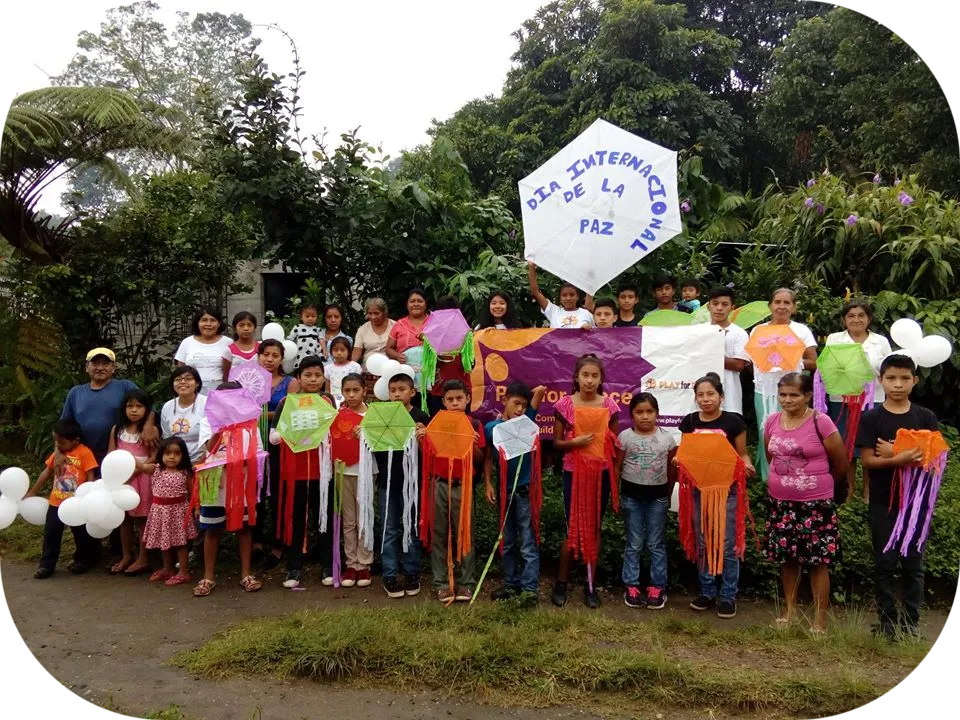
Amarc Club
Location: Colomba Quetzaltenango Guatemala
Mentors: Alicia Agustin
Partner: Amarc
Description
AMARC is an association of women from different areas of Colomba who are dedicated to the development and construction of political thought. They got involved in the play for Peace because of their leader Alicia Agustin who was the youth leader of the first years of Play for Peace in Guatemala. Now she and her family and other women leaders work for Peace.
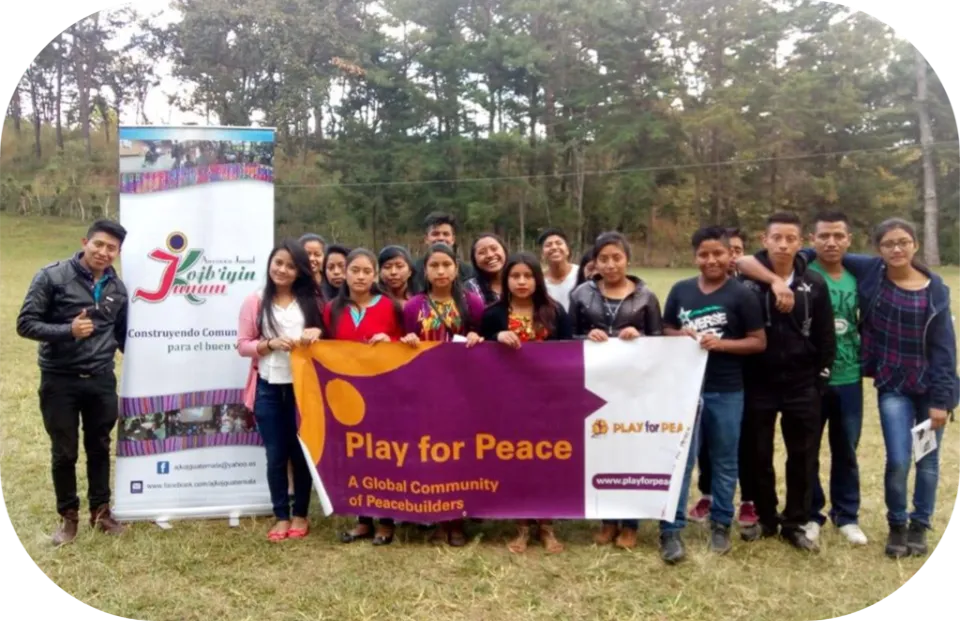
Kojb'iyin Juman Ajkoj
Location: San Raymundo Guatemala
Mentors: Estuardo Coc
Partner: Kojb'iyin Juman Ajkoj
Description
This youth organization has been a partner of Play for Peace for 10 years, where a large number of young people and teenagers have participated, as well as indigenous women. With its name it indicates it and when translated it means "Let's walk together" is an organization that is dedicated to the integral development of the community, watching over the rights of the people. Through their volunteer facilitators they implement the Play for Peace process in schools, institutes and communities organized with the objectives of preventing violence, creating peace, integration, and leadership for a better way of living together.
Play United Rural Youth in Guatemala
Play, storytelling, and Play for Peace games brought young people from rural Guatemala together to reflect, connect, and lead peacebuilding efforts in their communities. ...more
Guatemala ,Event Highlights Global news &Community Engagement
May 22, 2025•3 min read
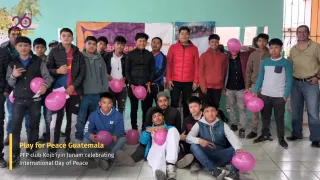
Transforming Violence to Peaceful Advocacy
The inspiring story of Abel Erim Aldana, a dedicated Play for Peace leader in Guatemala. Learn how his work is transforming communities and empowering young people to build a more peaceful future. ...more
Guatemala ,Global news &Stories and Reflections
March 04, 2024•1 min read
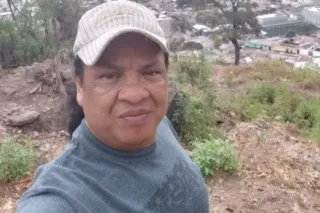
Youth have the right to live in peace
The local organization hosting the workshop was the Association Puerta de Esperanza. ...more
Guatemala ,Global news
May 18, 2023•1 min read
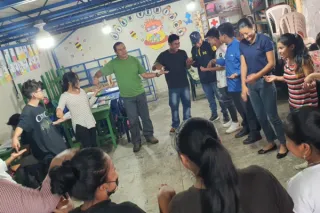
India

India is the seventh largest country in the world and the second most populated. Thousands of years of history have shaped the country, which is incredibly diverse in both culture and religion. While India is considered one of the fastest growing economies in the world—often called "newly industrialized"—large parts of the population suffer from poverty and lack of access to education and healthcare. Due to complicated social structures, many people also face discrimination and rejection.
Play for Peace India is in the 18th year of its journey, which started in 2000 in what was then the southern Indian state of Andra Pradesh (now Telangana). Since then, Play for Peace has worked with a variety of organizations that offer a diverse set of local experiences and address different developmental needs. Currently, the India program is the largest In the Play for Peace community. Each club addresses issues based on the community it serves, and major themes addressed include equality, inclusion, interfaith harmony, child and female empowerment, and making schools more equitable and inclusive to keep children in school and attract dropouts.
Requests for Play for Peace in India are constant , and our core values and activities there impact thousands of lives now and will continue in the future.
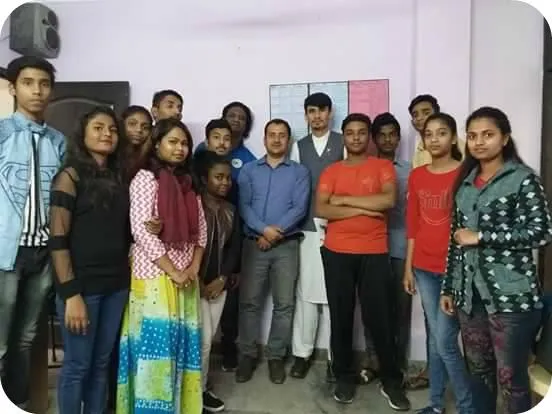
Karol Bagh YTH Peace Club
Location: Karol Bagh, Delhi, India
Mentors: Vijay Kumar
Partner: Ideal Youth Health and Welfare Society
Description
The Karol Bagh YTH Peace Club includes 20-25 youth from the marginalized Dalit and Muslim communities in Dehli. Around 80% of Dalit youth in this location are school dropouts and engaged in daily wage work (manual scavenging, housekeeping, and sanitation).The club meets daily to conduct Practice Peace Sessions and has taken on many other initiatives, including a library, career counseling services and workshops, a spoken English class, a digital learning and knowledge hub, training workshops on social and gender inclusion, and a community outreach program. The club's achievements include reconnecting 1,000 students with education—including youth who had been addicted to drugs, helping more than one hundred youth gain admission to universities; and organizing more than 50 campaigns to address an increased trend in liquor consumption.
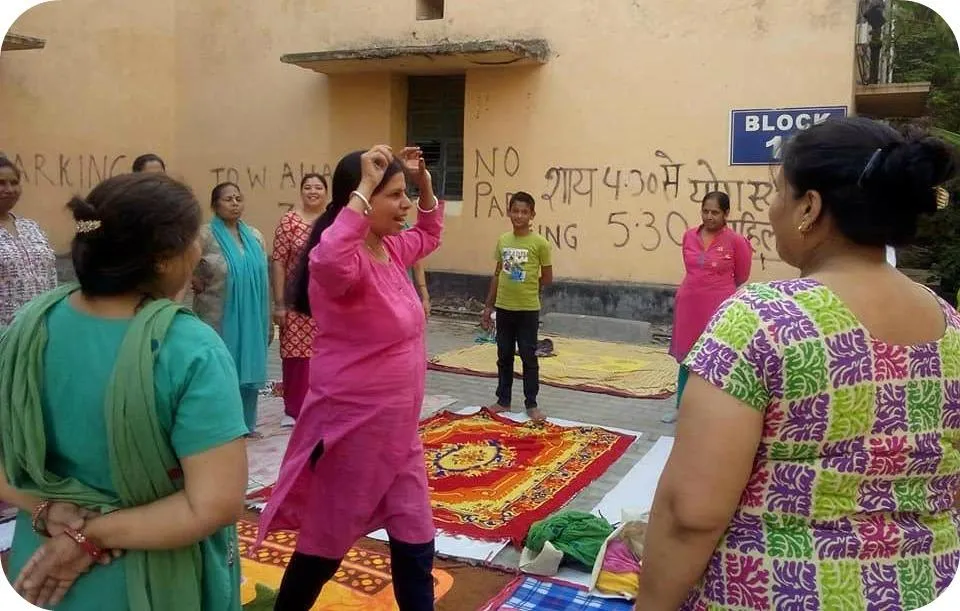
Freedom Education Equity Leadership Club
Location: Patel Nagar, New Delhi, India
Mentors: Neelam Jajoriya
Partner:
Description
The FEEL Club focuses on working with children from marginalized communities. The club supports the children by providing a safe space to come together and study. Children are also supported through coaching classes to enhance their studies.
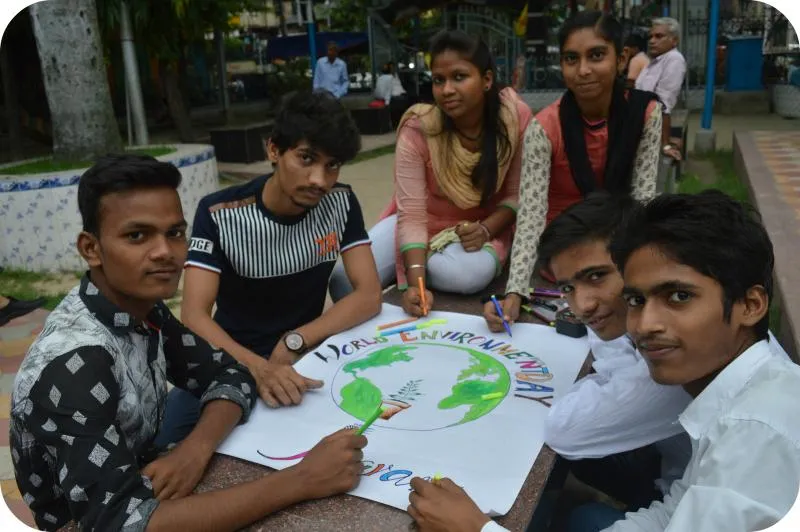
Jagran Club
Location: Taltala, Kolkata, India
Mentors: Sahil Balmiki
Partner:
Description
The Jagran Club was founded in 2013 with the mission of improving lives in Kolkata through practice peace sessions and social awareness campaigns. The treatment of women is a major focus for the Jagran Club, so much of the club's work work focuses on promoting inclusion and equal opportunities for girls and creating a community completely free of sexual abuse. The district faces other conflicts, such as drug abuse and HIV/Aids, which are also addressed. The Jagran Club consists of seven members who meet two to three times a week and on Sundays, bringing children together from different backgrounds and religions for play sessions that focus on cooperation, inclusion, and fun. The group also works with local NGOs and organizes street plays about relevant topics in the community, such as addiction, HIV/Aids, sexual abuse, and equality for girls and women. Our mission is to achieve peace and equality in the community, so that children and youth can grow up in a safe and protected environment, where they can achieve their dreams.
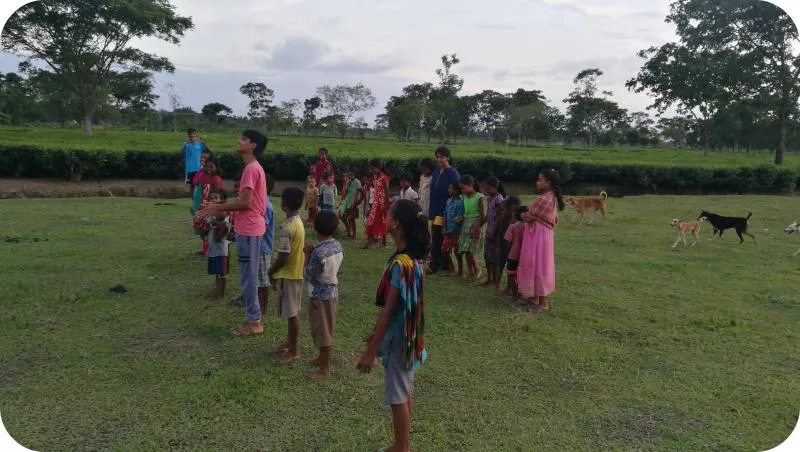
Disciples for Peace Club
Location: West Bengal, Kolkata, India
Mentors: Arzoo Shakir & Shahreen
Partner:
Description
After receiving Play for Peace training in 2016, the Disciples for Peace Club formed to work in communities in Kolkata dealing with issues affecting children and youth, such as underage labor and marriage, unemployment, prostitution, and involvement in drugs and crime. Due to these conditions, a majority of these children and youth also deal with depression and lack the support they need. The Disciples for Peace Club conducts regular Practice Peace Sessions in different communities in Kolkata and organizes youth awareness programs using Play for Peace tools such as cooperative activities, puppet storytelling, and street play. The Disciples for Peace Club hopes to bring positive change to the lives of local children and youth, just as Play for Peace has changed their lives for the better.

Pink City Jaipur Club
Location: Jaipur, Rajasthan, India
Mentors: Pawan Kumar
Partner: World Vision, Jaipur
Description
The Pink City Play for Peace Club works with public school and community children and youth in Jaipur, India, organizing events and weekly Practice Peace Sessions. Run by members of the World Vision Area Development project, the club works to build self-esteem, confidence, and faith in life of these children.
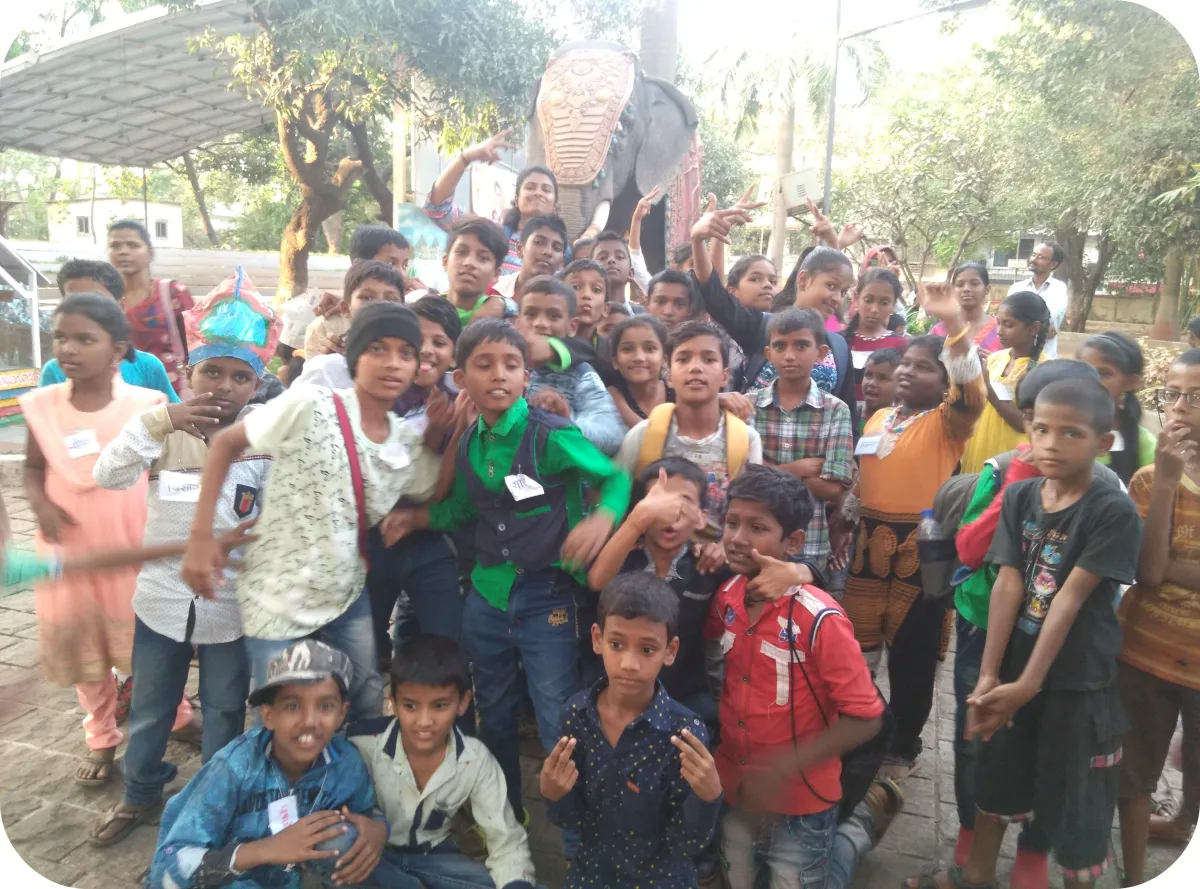
Khula Aasman Club
Location: Mankhurd, Mumbai, India
Mentors: Ragini Amol
Partner: Khula Aasman
Description
The Khula Aasman Mumbai Club is supported by Khula Aasman, a nonprofit organization based in Mumbai, India. Khula Aasman’s key area of work is blending art with social change, a relatively unexplored idea with huge potential for nurturing positive mental health and bringing different groups of people together. The Khula Aasman Club is made up of a group of volunteers that works with vulnerable children and communities using cooperative play and the arts. The club uses methods such as clay, paint, play, stories, poems, dance, music, yoga, and creative visualization to work with children during weekly Practice Peace Sessions and organized community service projects in Mumbai.
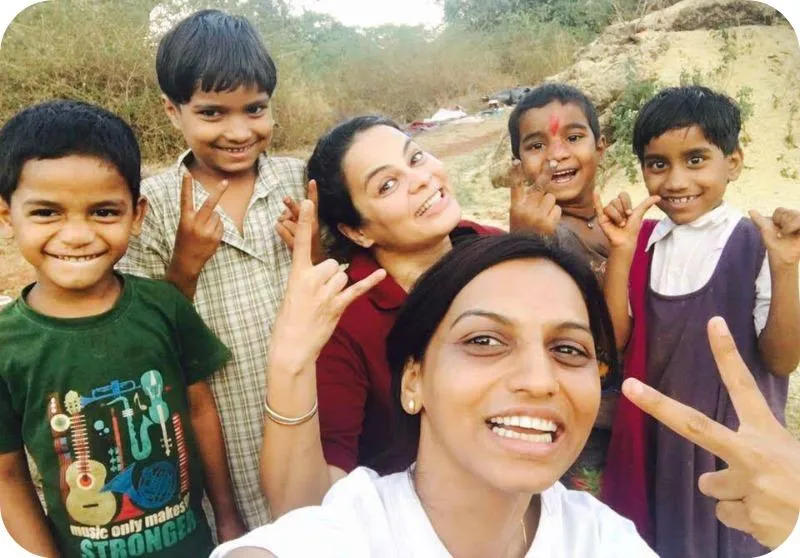
Mumbai Club
Location: Mumbai, Maharashtra, India
Mentors: Archana Magar & Neelu Grover
Partner: Viscomm 360 Communications
Description
Play for Peace Mumbai club is made up of a group of volunteers that works with vulnerable children and communities using play and arts. The group aims to promote relationships among people whose communities suffer from a history of cross-cultural tensions. An open space where everyone can experience the joy of play, the club conducts weekly Practice Peace Sessions using cooperative play, as well as clay, paint, play, paper, waste, stories, poems, dance, music, yoga, and the power of creative visualization to work with children. The club also conducts community service projects; sessions with cancer patients, women, and children at a local rehabilitation center; and with children and parents in family court.
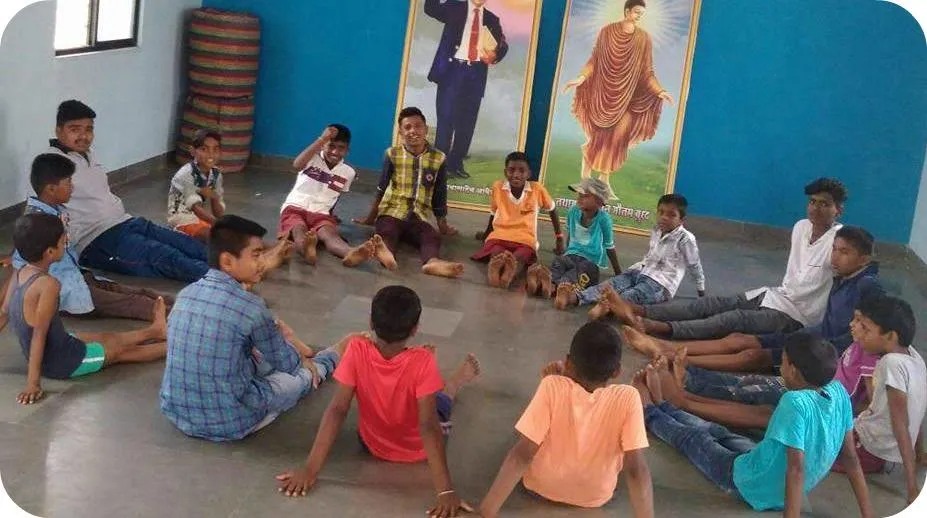
Khel se Mel Club
Location: Pune, Maharashtra, India
Mentors: Kailas Kamble
Partner: World Vision
Description
In Indian society, the caste system and religion are dividing factors. To break down barriers, the Khel se Mel Club, in partnership with World Vision India, conducts Practice Peace Sessions with children and youth in Pune and in public schools to give socially excluded children the opportunity to build self-esteem, experience inclusion, and learn cooperation through play.
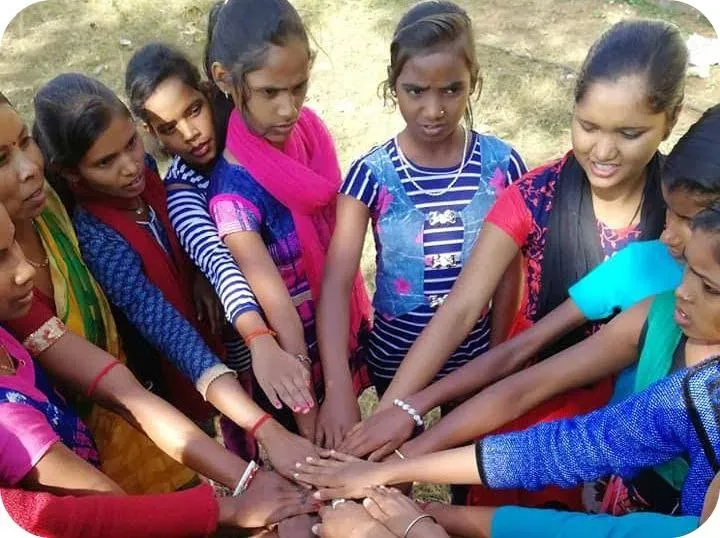
Hyderabad Club
Location: Hyderabad, Telangana, India
Mentors: Haseeb Jafferi & Diyanat Ali
Partner: Great Hyderabad Adventure Club
Description
Founded by Diyanat, Ali, the club's mentor, the Hyderabad Club works in local communities, schools and through special outreach programs to bring together children, youth, and adults across divides. The club has been consistenly working with a school called Vision Rainbow, where it has helped to build a community with parents, teachers, and kids of various backgrounds. The club has also created a community-based Bookshelf Library, which uses storytelling, reading, and Play for Peace methodology with local children.
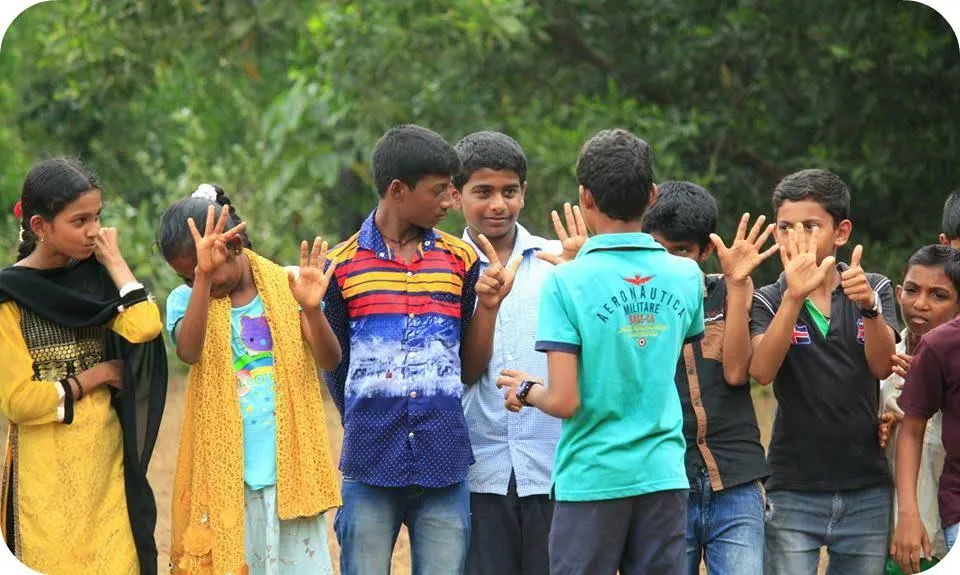
FSL India Club
Location: Bangalore, Karnataka, India
Mentors: Rakesh Kumar
Partner: FSL-India
Description
FSL-India is a leading youth development organization in India, focused on intercultural Learning through voluntary services and working to promote global understanding by providing youth volunteer and intercultural learning opportunities in different cultural contexts. This helps to break down boundaries and bring people together to work in harmony, with an understanding of people from different cultures and backgrounds. Annually, FSL-India mobilizes 1,500 and more young people from across the globe with the support of international partners and local NGOs.
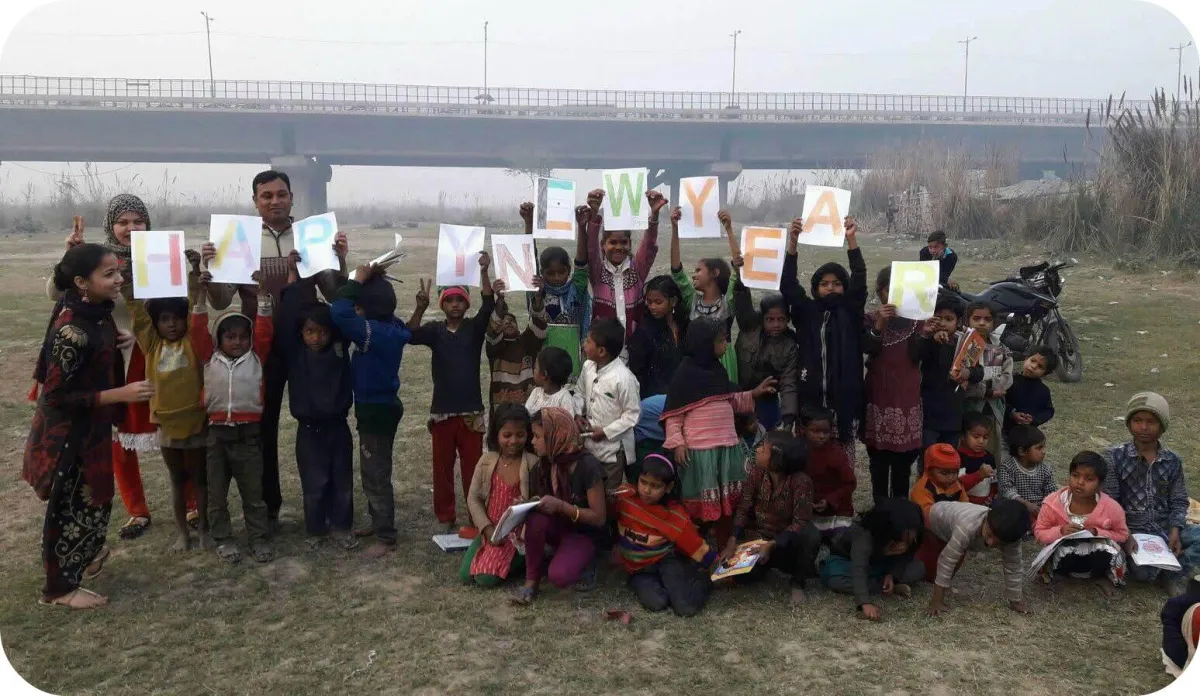
Peace Game Club
Location: Bangalore, Karnataka, India
Mentors: Farheen Anwer
Partner:
Description
The Peace Game Club is located in one of the weakest economic sections in Bangalore. Many families are laborers who stitch jeans and other clothing in small shops and at home. Made up of girls who join for peace sessions after they've finished domestic chores, the Peace Game Club doesn't draw boys, as they must go to work and come home late. The girls meet monthly for cooperative play sessions, where they can share their experiences and support one another.
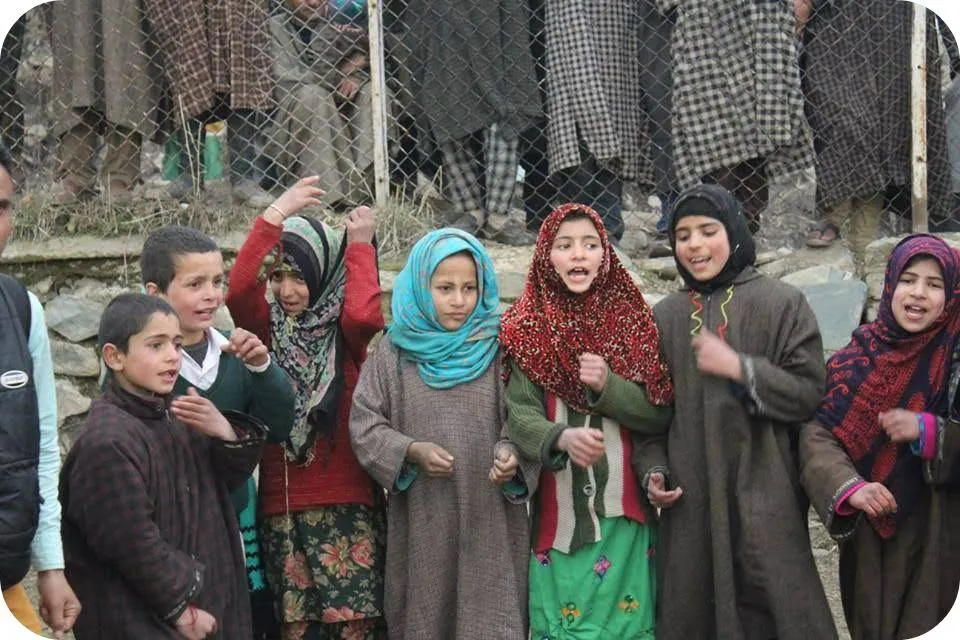
Kashmir Club
Location: Jammu and Kashmir, India
Mentors: Mushtaq
Partner: ActionAid India
Description
The Kashmir Club is supported by ActionAid, a global movement of people working together to further human rights and defeat poverty for all. The club has around 400 youth volunteers in five district groups, all who work with children on the ground. Club members conduct Practice Peace Sessions in schools each week and local children look forward to learning through play and enjoying the activities conducted by the club.

Ekta ki Nayi Umang Club
Location: Jhansi, Uttar Pradesh, India
Mentors: Aarti Raikar
Partner:
Description
Aarti Raikar, mentor and founder of the Ekta ki Nayi Umang Club, started her work with Play for Peace as a volunteer and club member of the Karol Bagh Club in Delhi. After moving with her husband to Jhansi in Uttar Pradesh in 2017, she wanted to continue bringing laughter, compassion, and peace to children in her community. So in 2018, she began conducting play sessions and coaching classes for local children. After receiving a positive response from parents, she created the Ekta ki Nayi Umang Club—meaning the spirit of unity—and has continued leading sessions with children in her community.
How the FEEP Conference Unfolded
Discover how intentional facilitation, community-building, and embodied learning shape transformative education — and why play-based methodologies matter in today’s polarized world. ...more
India ,workshops &Global news
February 25, 2026•7 min read
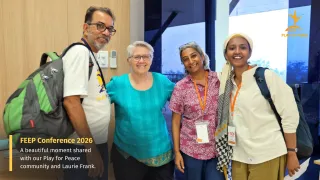
Practicing Peace Together: The Power of Returning to Play
What happens when people keep coming back to play, month after month? In Hyderabad, peace is becoming a shared practice. ...more
India ,workshops Global news &Peace Trainings
January 21, 2026•2 min read
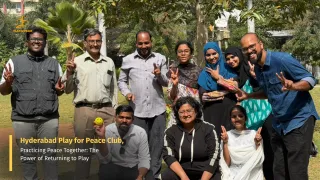
Re-igniting the Play for Peace Journey in Hyderabad
A renewed spark in Hyderabad brings play, connection, and community back to life, marking a powerful new chapter in the Play for Peace journey. ...more
India ,workshops
January 14, 2026•4 min read
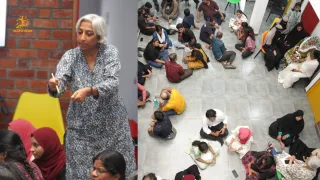
Israel
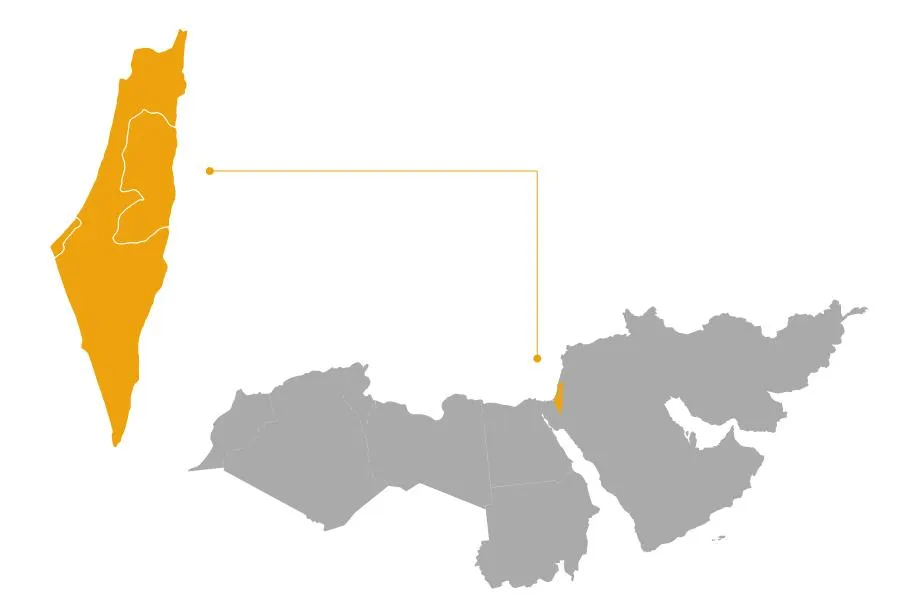
Israel has been in conflict ever since its declaration of state in 1948. Since then, the inhabitants of this small Middle Eastern country have seen seven wars, and attempts to solve the Israeli-Palestinian conflict have been unsuccessful. Besides this ongoing, widely known conflict, the country faces many other challenges, including environmental issues and clashes between different cultural and religious groups.
Israel is one of the first countries where Play for Peace became active. Shortly after its founding in 1998, Play for Peace partnered with the Jerusalem International YMCA, working with mixed groups of Jewish and Arab children. While Play for Peace trainers visited many areas in the country, from Jerulsalem to Jericho, the next club was not initiated until 2014. Then, Sarah Gough and Craig Dobkin completed a 10-day training tour in Israel and Palestine, introducing Play for Peace to groups such as The Bedouin Girls Warm House Project, The Palestinian Center for Conflict Resolution in Jericho, a community group in Eilaboun, and a youth center and camp in Haifa. Another project with the organization Hand in Hand, an intentionally bi-cultural school, took place in 2016.
In 2017, a new club was formed in Galilee called Youth for Change Galilee with trainer and mentor Sa'eed Diabat. Their focus is on the environment, peace, and education,
particularly for marginalized Arab youth from different faiths who live in the region.
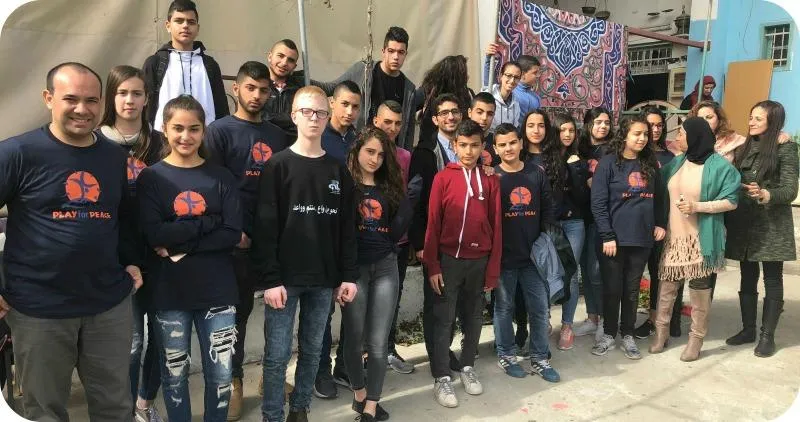
Youth for Change Galilee Club
Location: Nazareth, Gallilee
Mentors: Sa'eed Diabat
Partner: Youth for Change
Description
Youth for Change Galilee was started by Play for Peace trainer and mentor Sa'eed Diabat to bring more opportunity for education, community development, and social programs to Arab youth living in the Galilee region.Comprised of young boys and girls, ages 12-25 from different cities and villages in Galilee, the group initiates projects related to conflict resolution, tolerance, and diversity amid the complex reality of the Middle East. Youth members suggest project ideas, and then a volunteer team made up of a social worker, educators, and community activists help make their ideas a reality. Completed projects include cultural exchange, higher education awareness events, volunteering, and community building activities. The youth see a great importance in building a bridge between youths around the world. They believe that meeting youth groups from different cultures and countries can be a huge motivation for realizing your own power to create change and impact for the benefit of society.The idea of Youth for Change Galilee has been in the heart of Sa'eed Diabat since 2006, when he took part in the first Play for Peace certified trainers training in Israel. In 2015, Saeed formed the current volunteer team, which includes Siham Abu Hija (social worker), Salameh Zireni (educator and team leader), and Ahlam Aweid (educator and team leader). Since 2016, monthly sessions and workshops are held for local youth using Play for Peace cooperative activities and seminars.In summer 2018, youth leaders from the Galilee club traveled to Crete to work with the Play for Peace club at the Skaramangas refugee camp. Together, they led cooperative play activities for orphaned children from Belarus who were invited to participate in a summer project by Crete for Life. This unique project had an incredible impact on all of the youth leaders and children, who understood that cooperation and peace between different cultures is possible, and that laughter is a universal language understood by everyone.
Youth for Change Galilee Connects Arab Youth from Israel and Germany
The "Youth for Change Galilee" PFP club fosters cultural exchange between Arab youth from Israel and Germany, promoting diversity, education, and unity for a brighter future. ...more
Israel ,Global news
September 14, 2023•1 min read
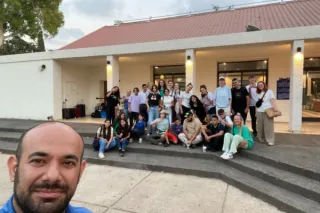
Israel Club is Creating Connection, Even During COVID-19
In April 2019, 16 boys and girls from Israel’s Youth for Change Galilee club participated in a 10-day cultural exchange with the KJR Neumarkt youth center in Nurenberg, Germany. ...more
Israel ,Global news &Community Engagement
January 17, 2021•4 min read
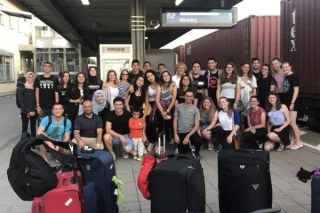
Sa'eed Diabat: Global Thinker, Local Leader
As the founder and a mentor of the Youth for Change Galilee Club in Israel, Sa’eed Diabat is an important part of the Play for Peace community. He also has an important story to tell. ...more
Israel ,Leadership
January 23, 2019•5 min read
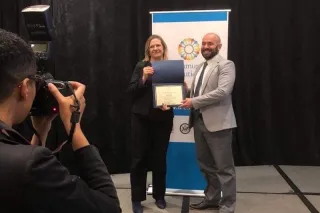
Kenya
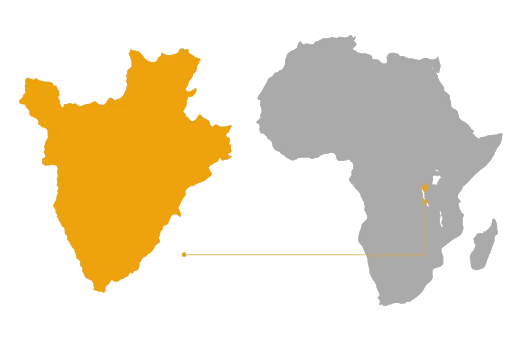
Although Kenya gained independence from Britain in 1963, the country still feels the effects of colonialism today; struggles around land and access to resources remains a source of conflict. People in Kenya have dealt with ethnic conflict as well—the most serious ones arose in 2007 and 2008 from disputed presidential elections. Children in Kenya are often the most affected by conflict. Since many experience or witness violence on a regular basis, they often don’t know how to resolve conflicts, or avoid them altogether.
In 2013, Play for Peace trainers Thozi Ndlazi from South Africa and Lolo Evans from the United States conducted a series of Play for Peace trainings in Kenya. As a result, groups in the areas they visited began practicing Play for Peace activities, using the power of play to bring people together in the area, despite conflict that existed. Later, in early 2019, Tacoma, Washington-based trainers Sam and Sarah Towers visited Kenya, where they knew the concept of Play for Peace had been introduced. They hoped to learn more about the needs and accomplishments of the people there in order to offer support. After many successful practice peace sessions, the Star Club, was formed.
Since the beginning of 2019, the Star Club, led by mentor Innocent Maina, has organized several activities and even participated in Earth Week. The Play for Peace global community is excited about the future of this club and its potential to bring laughter, compassion, and peace to children in Kenya.
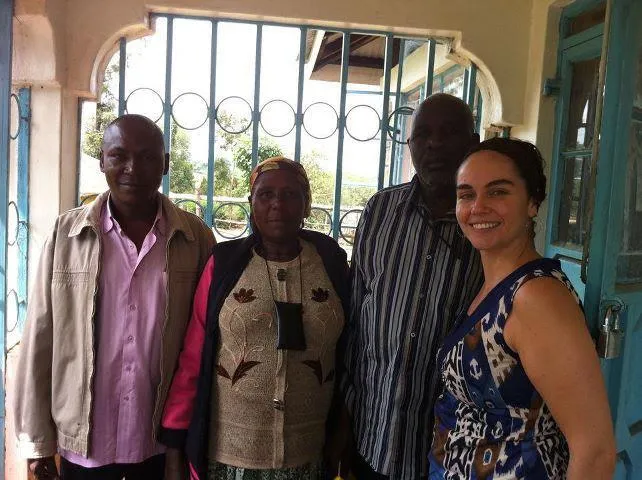
Star Club
Location: Kisii, Nyanza
Mentors: Innocent Maina
Partner: Star Club
Description
In 2013, Play for Peace trainers Thozi Ndlazi from South Africa and Lolo Evans from the United States conducted a series of Play for Peace trainings in Kenya. As a result, groups in the areas they visited began practicing Play for Peace activities, using the power of play to bring people together in the area, despite conflict that existed. In early 2019, Tacoma, Washington-based trainers Sam and Sarah Towers visited Kenya, where they knew the concept of Play for Peace had been introduced. After conducting practice peace sessions in six different Kenyan schools, one of them recently formed a Play for Peace club in the city of Kisii, partnering with Star Club Kenya. Since the beginning of this year, the new club, led by mentor Innocent Maina, has organized several activities and even participated in Earth Week! The Play for Peace global community is excited about the future of this new club and its potential to bring laughter, compassion, and peace to children in Kenya.
Zoom Furaha Club in Kakuma Refugee Camp
From a Zoom screen to a real-life peace circle in Kakuma Refugee Camp, the Zoom Furaha Club is showing how play can spark joy, belonging, and youth leadership—no matter the distance. ...more
Kenya ,Global news &Peace Trainings
February 11, 2026•2 min read
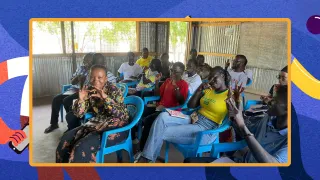
From Kakuma to the World: Igniting Peace Through Play
What happens when play becomes a bridge across distance, displacement, and difference? From Kakuma Refugee Camp to a global circle of facilitators, youth are igniting peace through play, creating conn... ...more
Kenya ,workshops Global news &Peace Trainings
January 23, 2026•3 min read
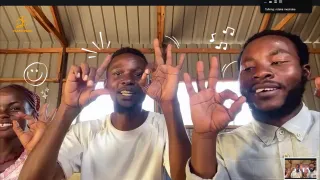
How Culture and Play Shape Childhood in Kenya
In this heartwarming reflection, Innocent shares how traditional African customs from the Abagusii community weave play, song, and storytelling into every stage of life from birth to childhood. ...more
Kenya ,Global news &Stories and Reflections
June 11, 2025•2 min read
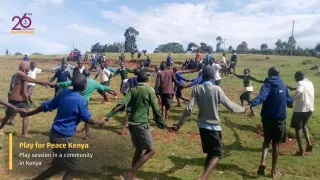
Philippines
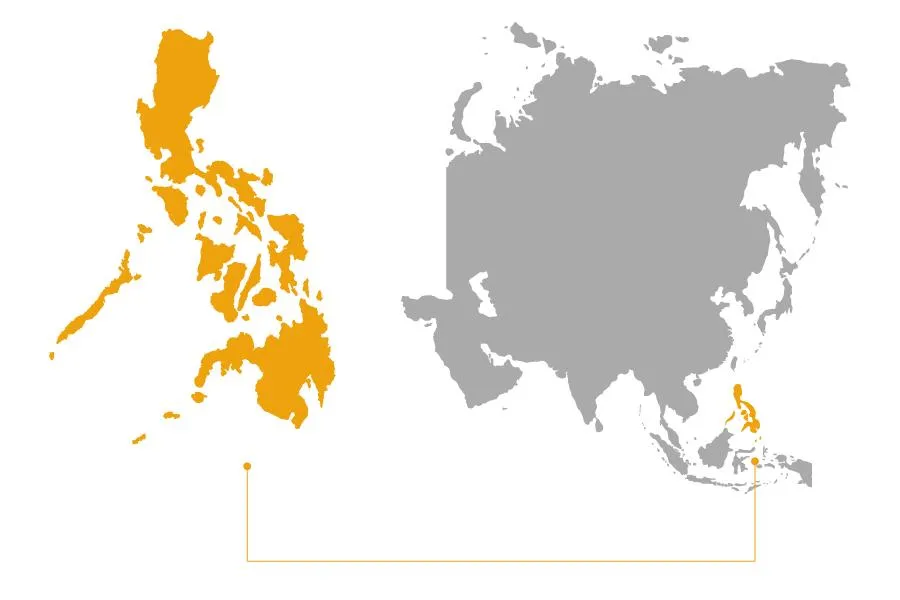
An archipelago in Southeast Asia, the Philippines is comprised of more than seven thousand islands between the Philippine Sea and the South China Sea. While the country has been Asia's largest Catholic country since Spanish colonial times, more than one hundred ethnic groups, a mixture of foreign influences, and a fusion of culture and arts have truly enhanced the Filipino identity. However, with all of the good there is also strife. Nepotism and corruption are apparent in the government, so youth are reluctant to serve in political positions. Poverty is also prevalent, particularly in the province of Cebu, forcing an increasing number of Filipinos to work abroad in order to provide for their families. Without family guidance, young people are more likely to get into trouble, teenage pregnancies are on the rise, and suicide rates are increasing.
Play for Peace Philippines works hard to promote leadership and empowerment. Workshops and sessions provide a safe space for children and youth to learn their potential and redirect their energy toward productive activities. The program brings together young people who have the same passion for growth and community service and connects them with mentors and organizations. Through their leadership, Play for Peace volunteers are involving local and school communities to discover the power of play.
Play for Peace Philippines is growing rapidly, as more youth volunteers are using cooperative play to bring together children in communities affected by conflict. As a result, the organization is developing a volunteer recognition program, so volunteers can track their community service activities and create a volunteer resumé. This volunteer recognition program will serve as a model for a future programs serving
the global Play for Peace community.
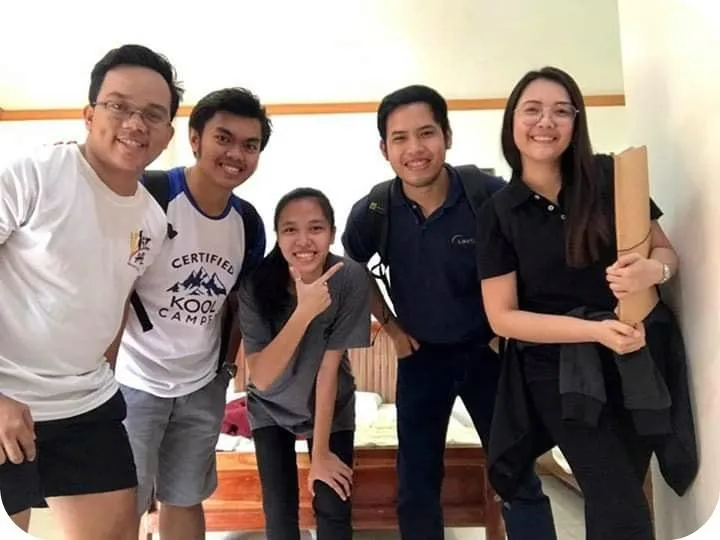
Argawanon Club
Location: Cebu, Philippines
Mentors: Richard De Los Reyes
Partner: Alliance of Argawanon Young Leaders
Description
Play for Peace Philippines began when Play for Peace board member John Guarrine facilitated a play session in Cebu. After attending the session, the group—supported by its partner the Alliance of Argawanon Young Leaders—conducted its first official play session with 60 secondary student council officers. The Alliance of Argawanon Young Leaders, which had been conducting experiential leadership camps in local remote villages, soon began integrating Play for Peace concepts and ideologies in all of their leadership efforts.The club's current focus is on addressing pressing mental health issues in the community. It is also working to use cooperative play to promote local growth, sustainability, and impact, and create youth facilitators who are inspired by creating peace and development through community service projects.
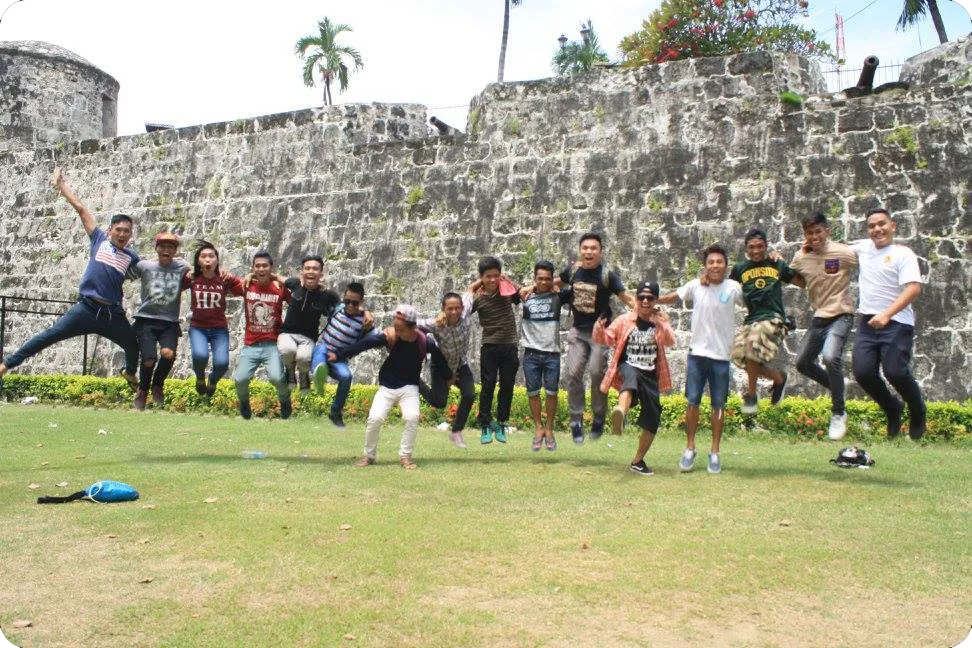
Cebu Club
Location: Cebu, Philippines
Mentors: Rita Nguyen
Partner: Mitzi Figueroa
Description
The Play for Peace Cebu Club was created in 2013 with the help of five volunteers, most notably Trainer Bre Segundo Abrea, who played a key role in the club’s expansion and initiatives. The club began facilitating quarterly play sessions in various schools and universities with Bre's mentorship and guidance. Volunteers then strengthened their Play for Peace skills through sessions provided by professional trainer Irvin Torralba, professional instructor and facilitator Kirk Patrick Castro, and Play for Peace trainers Richard De los Reyes and Anbern Guarrine.Today, the club works to strengthen the confidence, self-image, and morale of every volunteer,community member, and youth joining their sessions. Self-image is important, because how wethink about ourselves affects how we feel and interact with others andthe world around us. A positive self-image can boost physical, mental, social, emotional, andspiritual well-being. The club hopes that through the play sessions, they are able to boost the self-esteem of every community member.
Healing the Inner War
Play for Peace in Cebu guides teens to develop inner peace, inspire dreams, and combat mental health struggles through engaging, transformative activities that promote hope and resilience. ...more
Philippines ,Global news
December 05, 2024•3 min read
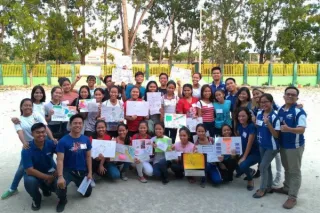
Cultivating Peace Leaders in the Philippines
Play for Peace empowers Filipino youth leaders to build stronger communities through play-based learning and experiential activities. ...more
Philippines ,Global news &Peace Trainings
July 26, 2024•2 min read
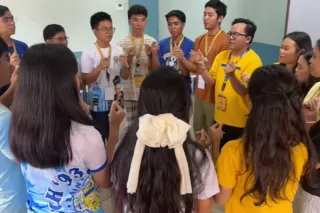
Play for Peace possible; future, present, and past!
Play for Peace possible; future, present, and past! ...more
Philippines ,Global news &Leadership
February 14, 2023•1 min read
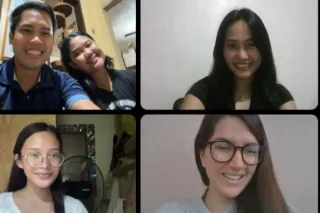
Senegal
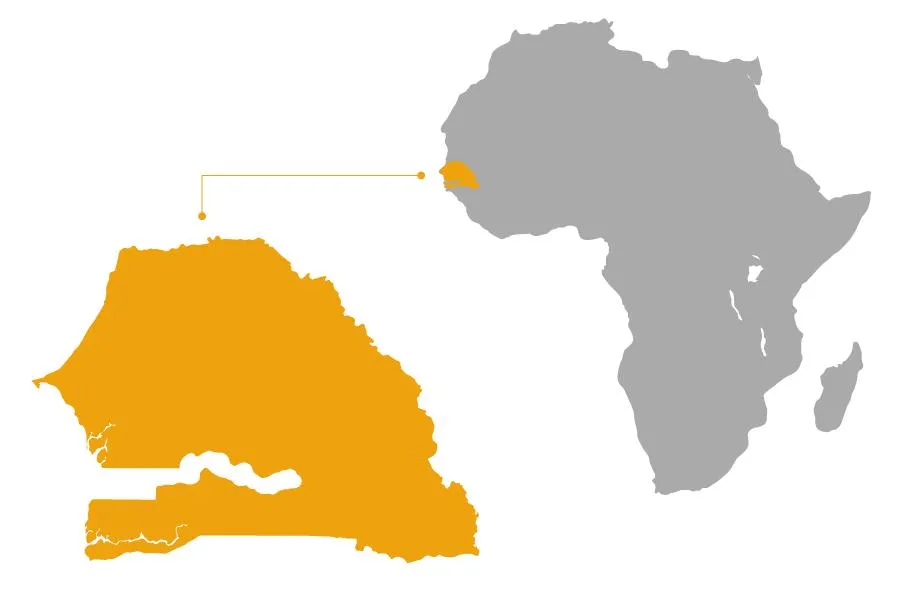
According to Human Rights Watch, as many as 50,000 children beg in the streets of Senegal, a former French colony in Africa. Even though it is one of the more politically stable African countries, poverty is a huge challenge that affects a large part of the country's population. Many children are forced to beg for money and food, which often leads to abusive and exploitative working conditions. Close to half of the population of Dakar, Senegal, lives below the poverty line (earning less than one euro a day), and 43% are illiterate. In the past, Senegal was seen as one of Africa’s model democracies, but internal conflict and lack of education and professional development have created dim prospects for the country's youth. Many of these children are also immigrants and refugees from neighboring countries without access to education or documentation.
Despite the reality of daily hardship, Play for Peace is thriving in the outskirts of Dakar. The Senegal club was founded late in 2014 and has been transforming local communities ever since. The leaders there are passionate about empowering others and creating peace, finding ways to transcend differences in language, culture, and religion in order to bring together children to play and learn compassion for one another. This includes El Hadj, a mentor who has dedicated his time and talents to bring together children from the poorest areas of Dakar, offering them meaningful activities, a safe space, and the opportunity to have fun together.
Play for Peace Senegal will continue spreading laughter and compassion to children and teens in their communities. This includes a new summer camp program created by El Hadj and his club that provides children a safe place to play and come together as a community.
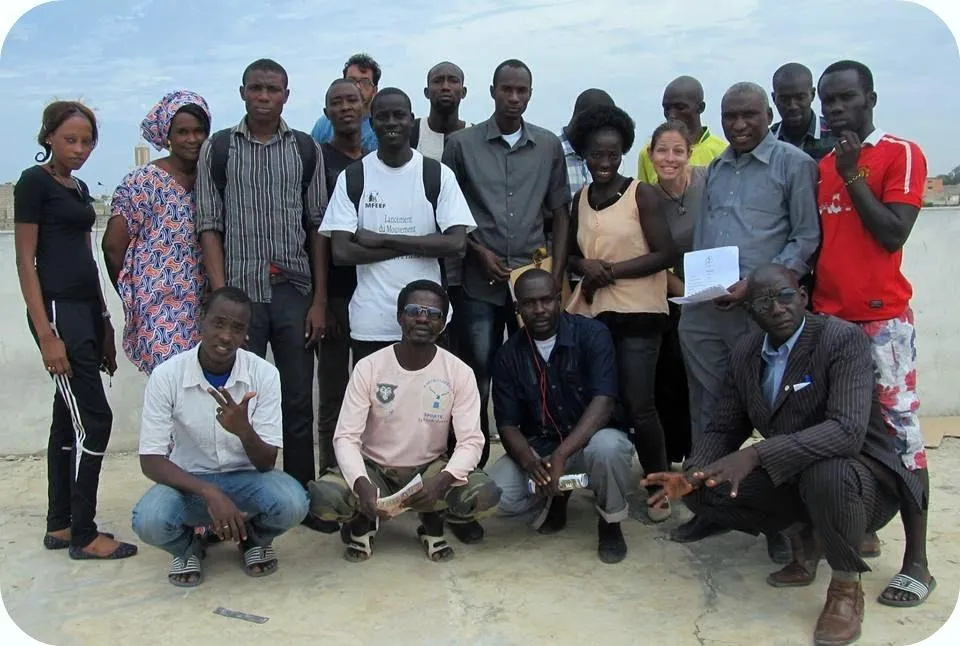
Pikine Thiaroye Club
Location: Thiaroye, Dakar, Senegal
Mentors: El Hadj Beye
Partner: Yaakar, Citoyen des Rues
Description
The Play for Peace club in Pikine in the west of Dakar, Senegal, started in 2014. More than half of the children in the neighborhood live in extreme poverty, many are illiterate and spend their days begging in the street. The Play for Peace club focuses specifically on those street children, giving them the opportunity to experience safety and joy. Being on the street, many of them have to learn what it is to feel respect and how to be respectful to others. Many of the participants are regulars and know that when they are with Play for Peace they are safe and allowed to be kids.
Mini Grant from Bloomberg Philanthropies Youth Climate Action Fund!
Exciting News: Play For Peace Senegal Receives Mini Grant from Bloomberg Philanthropies Youth Climate Action Fund! ...more
Senegal ,Event Highlights &Global news
August 27, 2024•1 min read
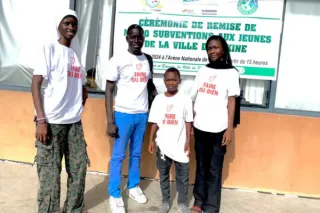
Save the Planet Activity
Explore how Play for Peace events foster unity, empathy, and lasting change. Download free activities to create a peaceful, inclusive school environment today! ...more
Senegal ,Global news
October 23, 2023•1 min read
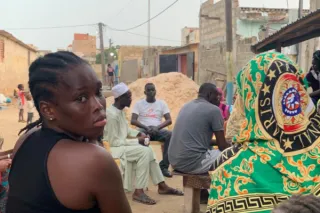
Saturdays Are For Children
“Saturdays Are For Children” is an educational project run together with the Citizen Association of Streets Senegal ...more
Senegal ,Global news
February 19, 2023•1 min read
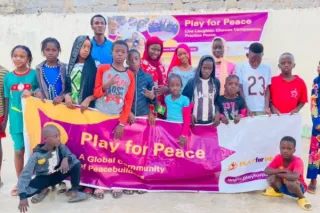
Poland
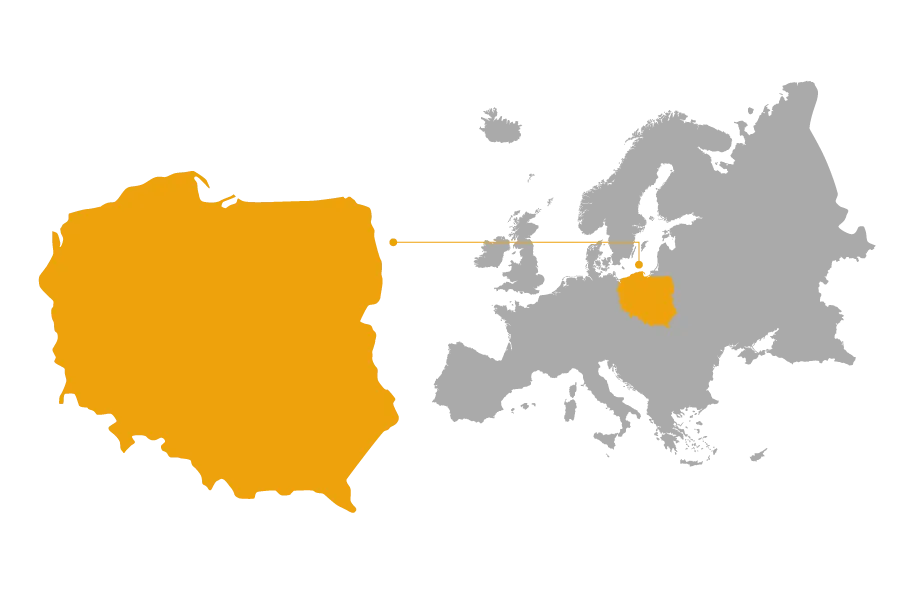
Following Russia's invasion of Ukraine in February 2022, Poland welcomed about two million Ukrainian refugees, primarily women and children. After almost two years into the full-scale war, about a million of the UA refugees decided to make a living in our country. Integration remains a challenge. While trying to solve the problems of the million people needing assistance, immigrants, including people of color arriving via the Polish-Belarus green border, are challenging Poland's sense of homogeneity, with a predominantly white Catholic population since World War II. It all contributes to apprehension about diversity.
Urgent efforts are needed to promote coexistence and empathy in our irreversibly to become a diverse society.Since the beginning of the war in Ukraine, our partner organization, KIK in Warsaw, has been helping those affected by the crisis. One of the KIK’s most essential tasks is to support children and young people from Ukraine and help them integrate with their Polish peers. KIK organizes summer camps, trips, and various activities for Ukrainian and Polish children throughout the school year, supporting over 1500 refugee children since the crisis began.In the spring of 2023, KIK organized a camp for Polish and Ukrainian leaders to integrate them and train them in leadership. Joanna Cutts, who has been volunteering in KIK since the beginning of the full-scale war in Ukraine, was the founder and inspiration for this initiative
Play for Peace trainers Richard Rutschman and Peg Dublin traveled to Poland
to provide staff and youth training in Motivational Interviewing and Experiential Learning. After a successful camp, Richard proposed cooperation with Play For Peace to KIK, which is how the first PFP club opened in Poland!
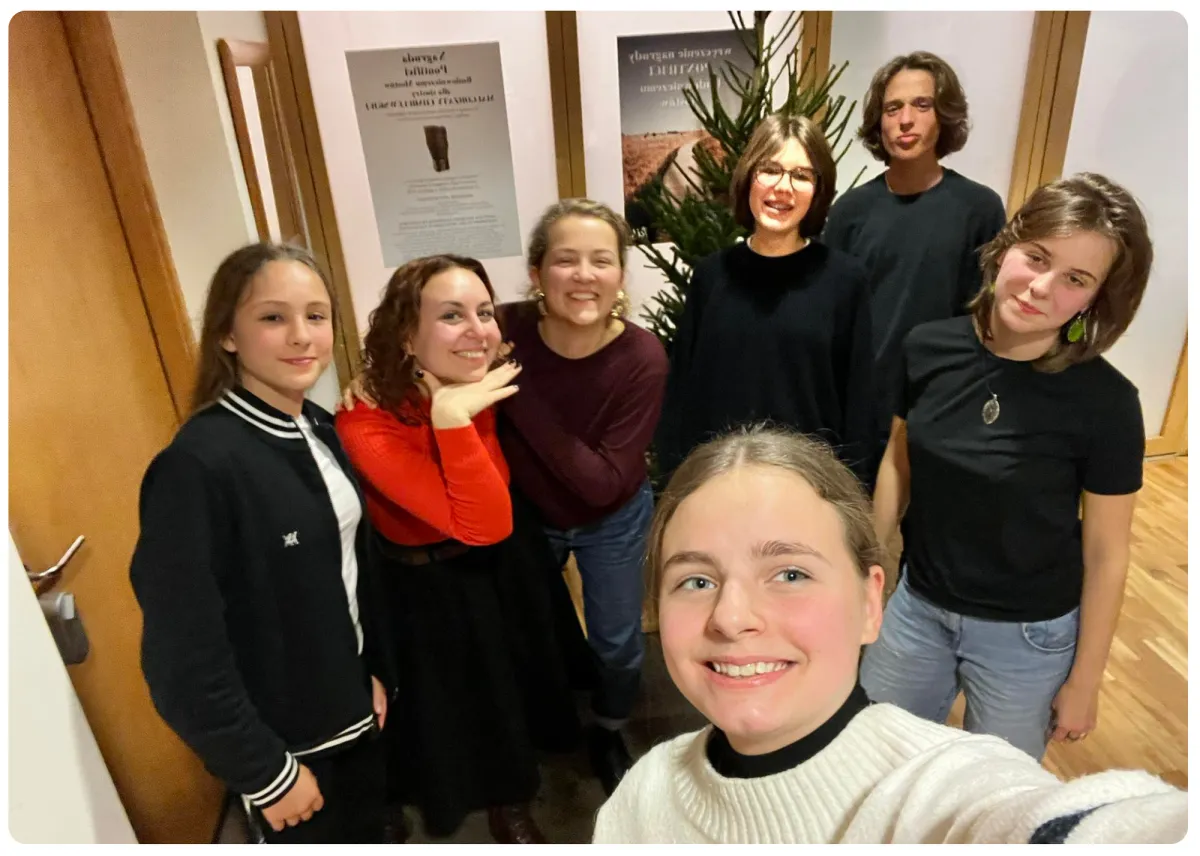
Warsaw Club
Location: Warsaw, Poland
Mentors: Maria Loskot, Ala Ivakina
Partner: KIK
Description
The club mentors are Maria Loskot from Poland and Ala Ivakina from Ukraine. This club started in October 2023 and meetings are twice a month. In January 2024, there was a first Practice Peace Session for refugee children from the Ocalenie Foundation led by the youth from the PFP club.
Youth Unite in Poland’s Wild Northeast
Youth from Poland, Ukraine, and Belarus hiked through Suwalszczyzna, building trust, leadership, and lasting friendships at the Play for Peace Warsaw Camp. ...more
Poland ,Global news &Peace Trainings
August 12, 2025•3 min read
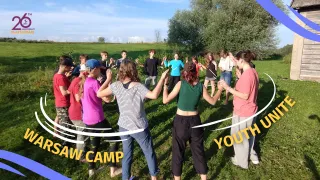
Finding Home in Experiential Learning
A Play for Peace Council member shares how a gathering in Denmark became a powerful reminder of the heart-centered connection behind real education and peacebuilding. ...more
Poland ,Global news &Stories and Reflections
May 28, 2025•2 min read
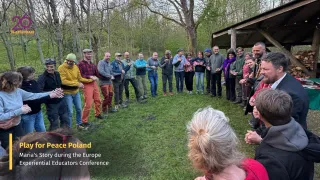
A day in Boston
Dive into a day with Alice Cohen, a 70-year-old SEL leader, as she transforms schools and lives with compassion, wisdom, and unwavering dedication to children and their communities. ...more
Poland ,Local news
March 29, 2024•8 min read
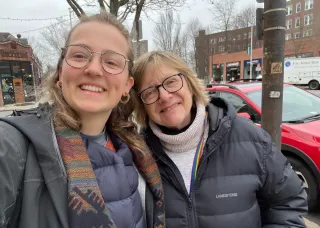
United States
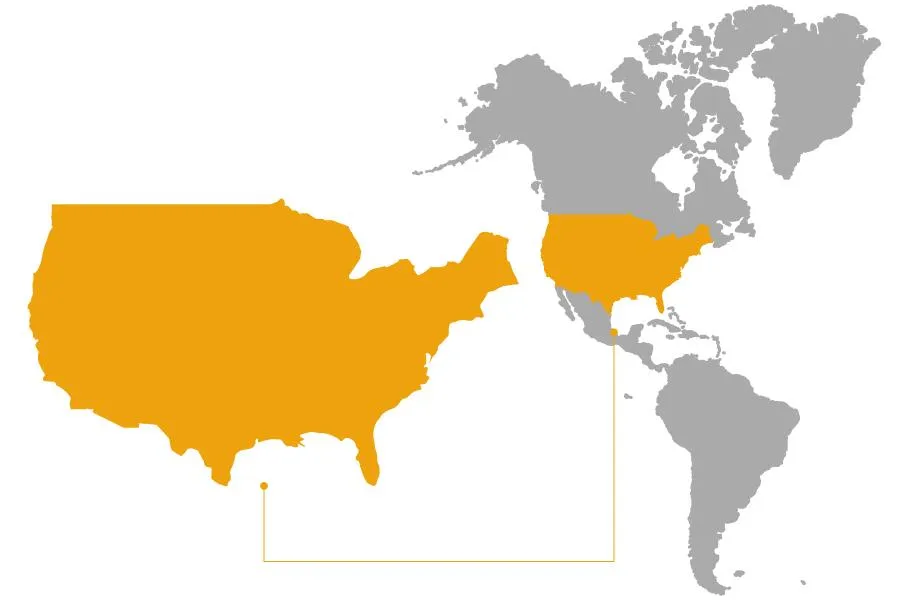
The United States is a diverse melting pot of cultures, religions, and ethnicities, since for much of the country's history it has drawn people from across the globe to what is known as the "land of opportunity." Unfortunately, much internal conflict also exists. Discrimination against people based on gender, religion, race, and sexual orientation can be felt in areas throughout the country, and in far too many cases violence is the result. And in light of today's political landscape, the country has become even more divided by its differences. While our current programming is in Los Angeles, over the years
Play for Peace has worked extensively in Chicago, Denver, Baltimore and various other towns and cities.
The Heart of Los Angeles Club was started by 9th and 10th graders in Heart of Los Angeles (HOLA), an organization that gives underserved kids an equal chance to succeed through a comprehensive array of after school academic, arts, athletics and wellness programs. The group works in central L.A., an area which has a particularly high concentration of new immigrants and first generation Americans struggling to make their way, which can sometimes make for a volatile environment, vulnerable to poverty and crime.
Play for Peace is the centerpiece of the leadership programming at HOLA. High school age youth facilitators lead monthly cooperative play sessions with younger students, and over 300 elementary and middle school age participants benefit from these activities.
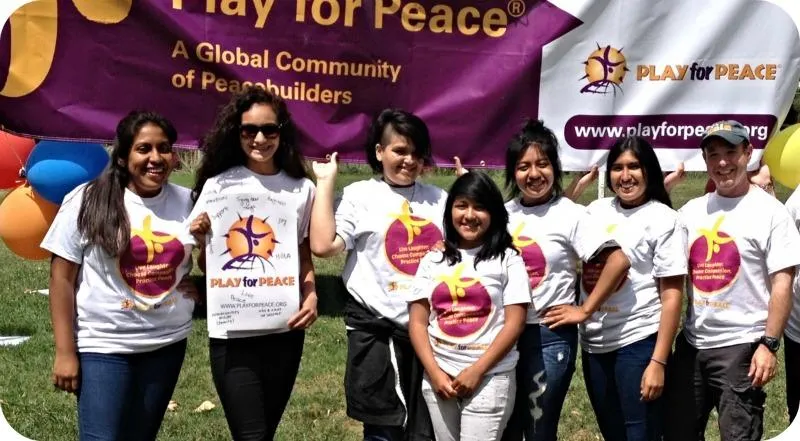
Heart of Los Angeles Club
Location: Los Angeles, CA
Mentors: Loren Rubin
Partner: Heart of Los Angeles
Description
The Heart of Los Angeles Club was started by 9th and 10th graders with the help of their mentor and Play for Peace certified trainer, Loren Rubin, a senior program director for Heart of Los Angeles (HOLA). HOLA gives underserved kids an equal chance to succeed through a comprehensive array of after school academic, arts, athletics and wellness programs. The group works in central L.A., an area which has a particularly high concentration of new immigrants and first generation Americans struggling to make their way, which can sometimes make for a volatile environment, vulnerable to poverty and crime. Play for Peace is the centerpiece of the leadership programming at HOLA. Loren provides training for high school age youth facilitators, who in turn lead monthly cooperative play sessions with younger students. Over 300 elementary and middle school age participants benefits from these activities, which are led by their older peers. Sessions include team building activities and discussions about leadership, resolving conflict, celebrating diversity, and creating a more harmonious community. Service learning opportunities often grow out of discussions initiated by the group, taking the spirit of cooperation, inclusion, and caring and applying it to real world concerns the students have about their community and their world. Youth facilitators who lead these cooperative sessions have noticed an increase in respectful communication, especially among the older youth leaders.

Gems of Idaho Club
Location: Nampa, ID
Mentors: Richard Rutschman
Partner: Learning Peace, Inc.
Description
Based in Nampa, Idaho, Learning Peace is a small nonprofit day camp where children ages 6-13 can attend for free and learn skills for peaceful living. While planning the 2019 camp, Reverend Karen Hunter, who runs Learning Peace, remembered coming across Play for Peace several years ago and thought we could help decided to get in touch. The Learning Peace organization was looking for a way to expand and continue the program beyond age 13, and Reverend Hunter knew that Play for Peace was the answer. She asked if Play for Peace would be a part of the camp—which launched the Gems of Idaho club. In summer 2019, Richard Rutschman, a long-time Play for Peace certified trainer from Chicago, came to the camp for a training. The youth loved every minute and were soon leading Play for Peace games. They also received Play for Peace facilitator pins and are planning to meet twice a week as a club.
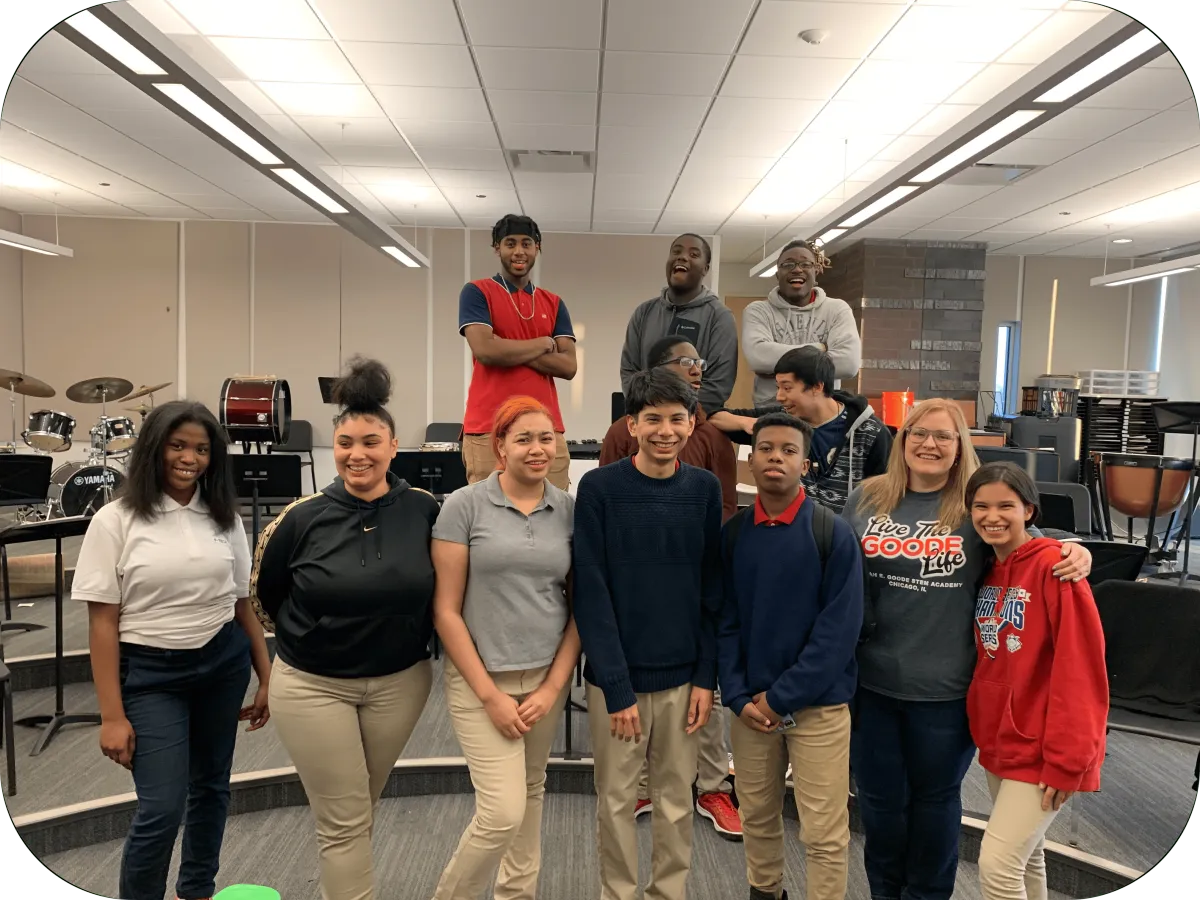
Chicago Goode Club
Location: Chicago, IL
Mentors: Roberto Valle and Kelly McCollom
Partner: Sarah E. Goode STEM Academy
Description
Based in Chicago, Illinois, Sarah E. Goode STEM Academy is one of the five Chicago Public Schools(CPS) Early College STEM that connects high school, college and the world of work to prepare students for technology jobs of the future. They aim to build a learning culture that nurtures creativity and sparks imagination, a culture where all feel compelled to develop lenses perceptive enough to see what has yet to be seen. Play for Peace started in 2019 as an avenue for students to interact and play while making a name for the school in promoting peace to counter the previous violence. “I need this”, one student states.
Play for Peace & OBA Begin a New Journey
Play for Peace and Outward Bound Adventures (OBA) launched a powerful new partnership in Pasadena, bringing youth and educators together to build compassion, leadership, and peace through play. ...more
United States ,Global news &Peace Trainings
September 13, 2025•2 min read
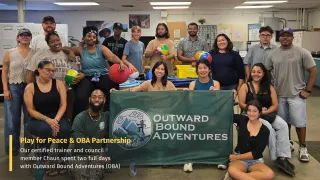
Leading A Live Training After 3 Years Of Online Workshops
Almost 3 years ago I joined Play for Peace just before the shutdown happened around the globe. I experienced the power of Play for Peace through online connections for some time. ...more
United States ,Global news &Community Engagement
January 30, 2023•3 min read
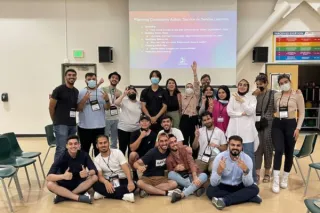
Leading a Successful Workshop at Chico State University
This inspiring update comes from our very own Development Director, Marilyn Levin’s experienced leading a successful workshop at Chico State University. ...more
United States ,Peace Trainings
September 25, 2022•2 min read
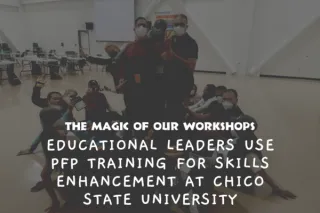
Vietnam
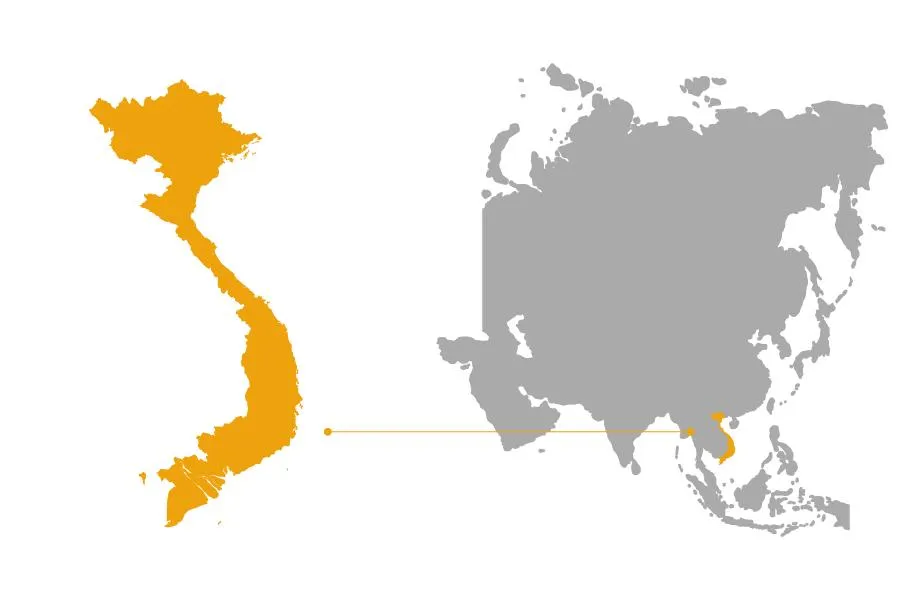
Declared a unified country in 1975 after a decades-long war resulted in colonization, Vietnam has a population of more than 96 million people and boasts one of Southeast Asia's fastest growing economies. However, much of its land remains contaminated by chemical agents, landmines, shells, and bombs. This after-effect of war has wounded or killed over 105,000 Vietnamese—many of them children. Currently, a large youth population is helping to develop the country and face these challenges head on.
In 2011, Play for Peace was invited to Vietnam and began working with Rita Nguyen, who is
currently a Play for Peace trainer and regional coordinator. After working with HIV children as a part-time consultant for an international non-profit organization, she joined a Play for Peace training that completely changed her path. Impressed with Play for Peace's
dedication to supporting the community and sharing their knowledge and skills, Rita and her teammates founded A New Day Social Work Club, one of Play for Peace's first clubs. The club works with those who are marginalized by society, children who have HIV, the LGBTQ community, children in rural areas, and people who are physically challenged. Now Rita is
inspiring a new generation to lead student and young professional volunteers.
Play for Peace Vietnam's work is supported by the local community, including Thich Nu Thien Luan, a Buddhist nun and educational project partner. Most of her community's
residents are domestic immigrants from northern and central Vietnam who lack money and education. When A New Day Social Work Club visited her temple, she observed many changes in the children there, including kindness and compassion for one another, confidence in themselves, and the motivation to make changes in their lives. Going forward, A New Day Social Work Group will continue its work helping children and teens facing social, cultural, and other conflict in Vietnam.
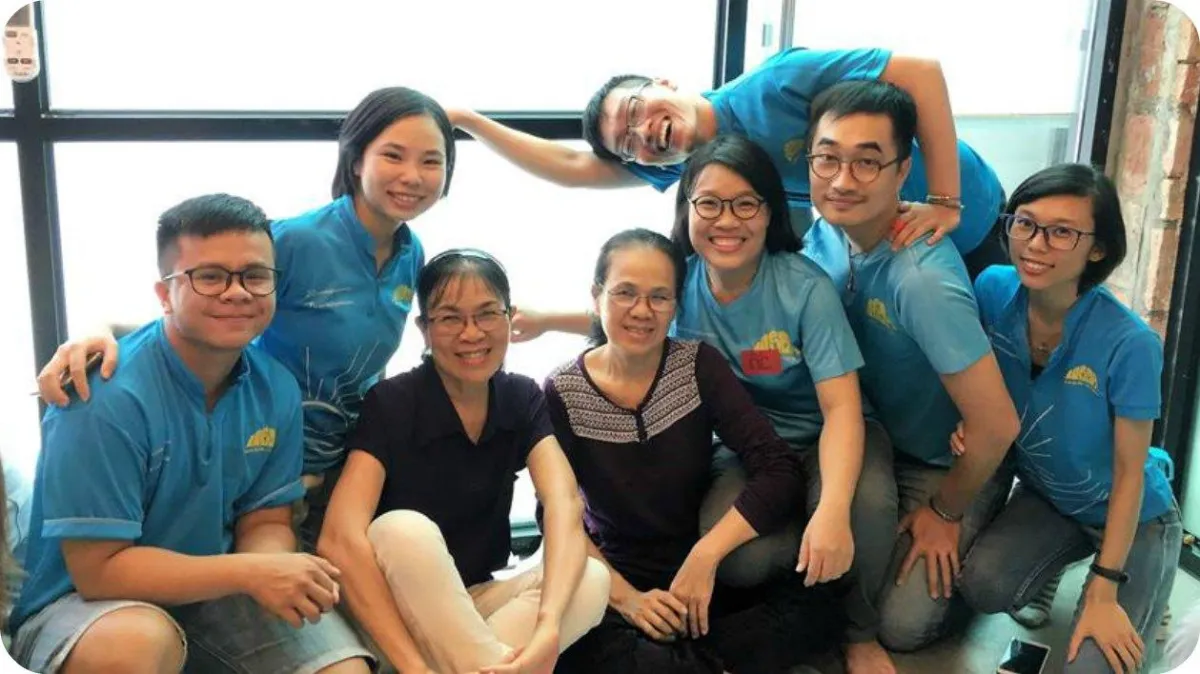
A New Day Social Work Club
Location: Ho Chi Minh City
Mentors: Phuong Q. Nguyen
Partner: A New Day Social Work Group
Description
A New Day Social Club was founded in 2011, after founder Rita Nguyen participated in an inspiring workshop in her city. Driven by her desire to help more vulnerable members of the community, Rita started Play for Peace in Vietnam with friends. A New Day holds regular practice peace sessions with children from different backgrounds and conducts special projects and activities that focus on the inclusion of marginalized community groups. The club regularly participates in training workshops and is an active part in Vietnam´s civil society that is working toward positive change.
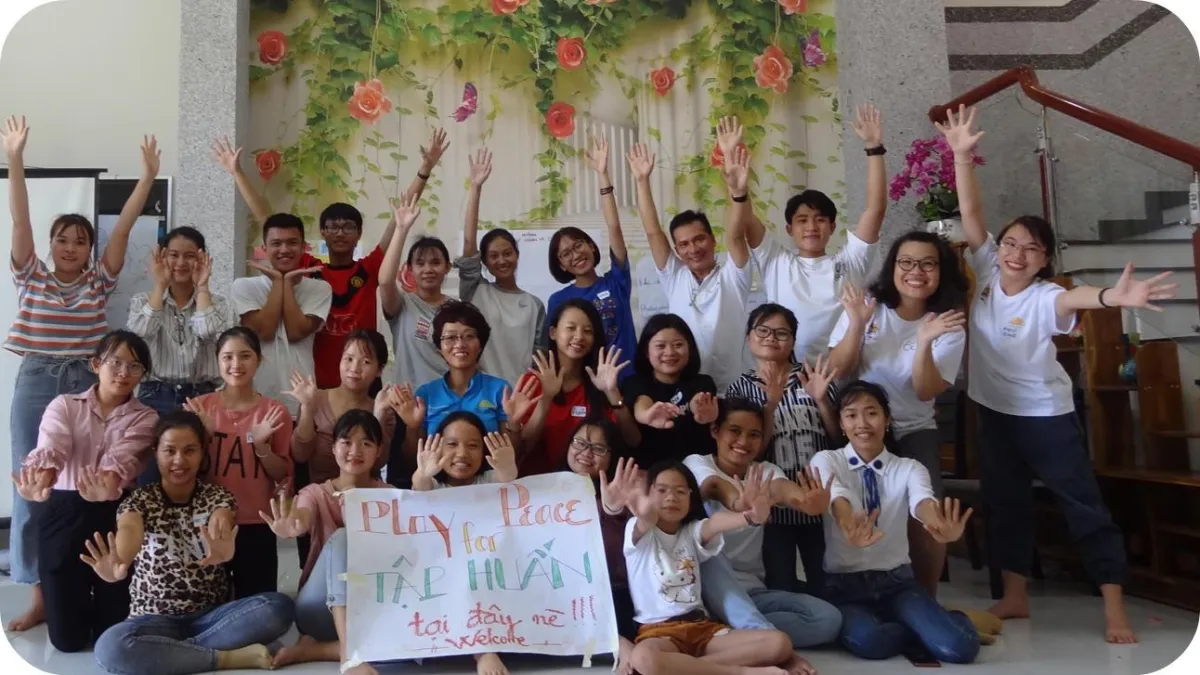
Quy Nhon Club
Location: Quy Nhon City, Vietnam
Mentors: Tran Thi Thanh Tram
Partner: .
Description
Quy Nhon City, a coastal city in central Vietnam, does not have many effective education programs or places for children to play and develop their social skills. For this reason, Play for Peace Vietnam trainers conducted a two-day training in the area in July 2019, to see how the community would respond. The training was a success, and the group found that they were all very passionate about working with the community and educating children. Soon after, they agreed to vote on their core members and the Quy Nhon club was created. The group is both honored and excited to be a part of Play for Peace's network in Vietnam and hopes that the new club will create positivity and connection through educational games and become a place for people to exchange ideas and learn from one another.
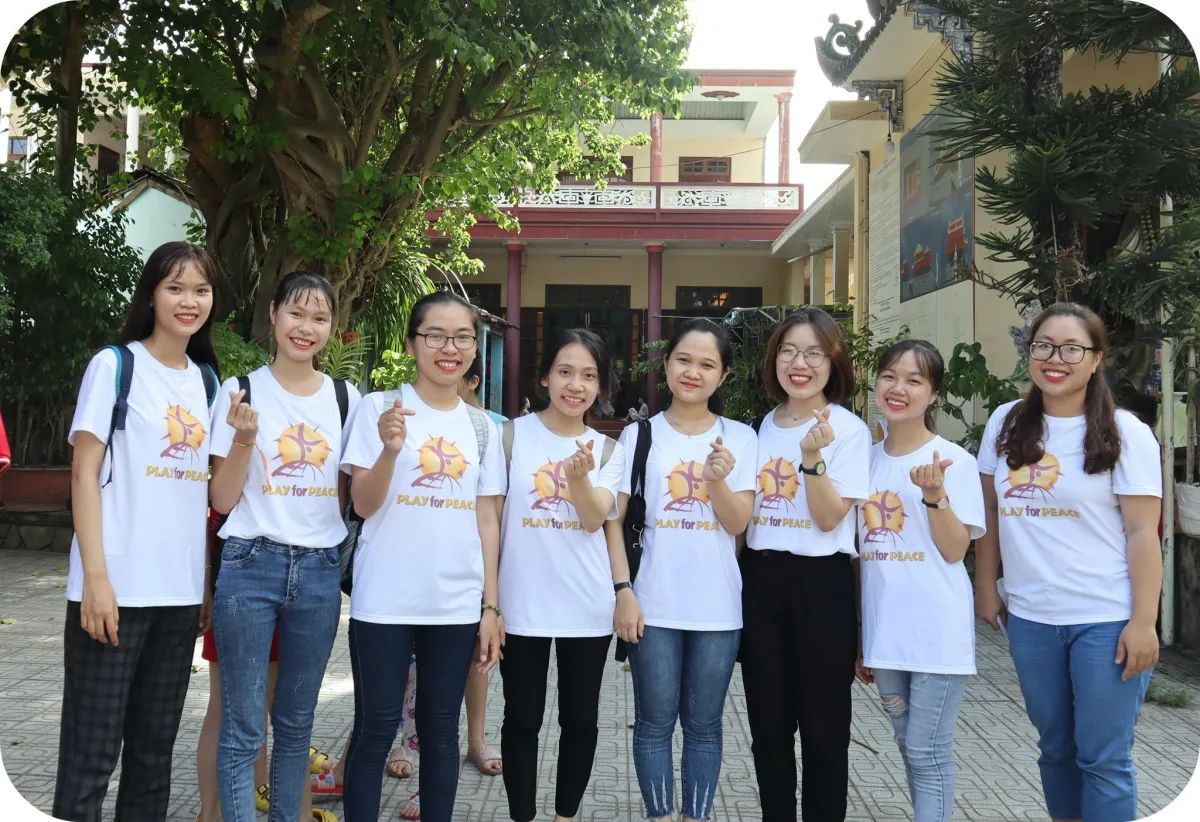
Danang Club
Location: Danang, Vietnam
Mentors: Pham Phuong Thanh
Partner: Sarah E. Goode STEM Academy.
Description
In the community of Danang, people face many challenges: little opportunity for children to grow and gain life skills or create positive connections with others, few social activities for elders, and a lack of awareness about environmental issues. To combat these issues, in June 2019, our Vietnam training team conducted a training program for local youth who love volunteering. After two days of training, the group was inspired by the meaningful values communicated through the activities and wanted to spread them to more and more people. Soon after, Play for Peace Danang's leadership team and club was established. The club is excited to continue training and spreading positivity in Danang, with a mission to support the community, spread positivity, and create connections between people.
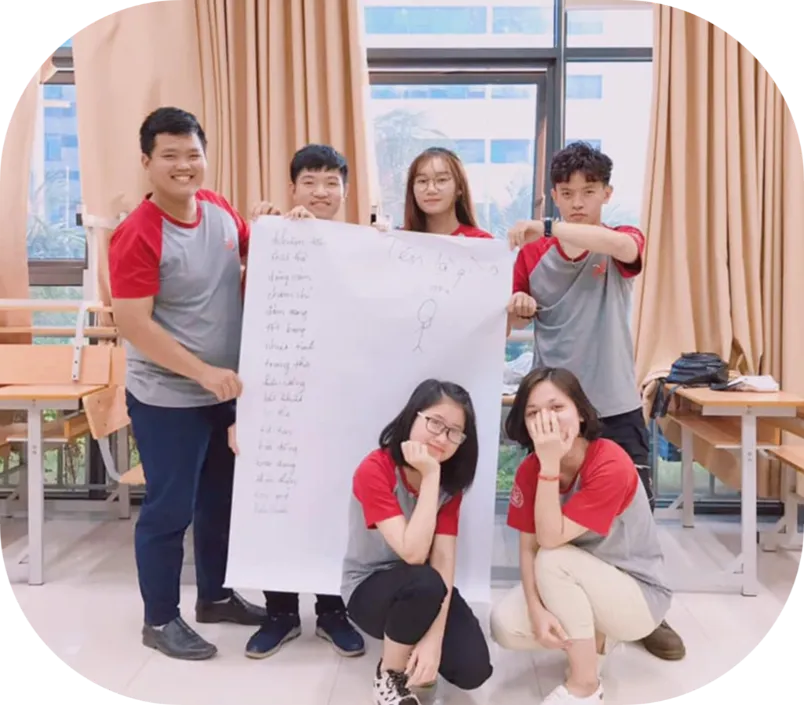
Non-Smoking Club
Location: Hanoi City
Mentors: Cao Huu Quang
Partner: Non-Smoking Club
Description
Non-Smoking Club (NSC) was established in August 2004. It began as a tobacco harm prevention program in the University of Public Health, with the common slogan “For a world without smoking." The members of the NSC's leadership team participated in Play for Peace Vietnam's 2-day training on Nov 23- 24, 2019 in Hanoi. At the end of the training, after learning a lot about peace games, techniques of experiential learning, and core values of Play for Peace Vietnam, they were greatly interested in them and decided to join the Play for Peace community. They committed to applying the values and those techniques into their volunteer work.The vice-president of NSC, Truong Thi Bich Tam, shared with us: "What makes me increasingly want to connect with NSC is that the members of NSC are extremely friendly. NSC is not only a club but also a family, where sophomore, junior and senior students feel free to exchange experiences and knowledge with each other. In November 2019, NSC has officially become a club in the Play for Peace network, this is really a new experience, as well as a challenge, a motivation for NSC to work more efficiently. Thanks, Non-Smoking club! Thanks, Play for Peace!". The club members are dynamic young people who are always ready to devote and wholeheartedly for society. Not only working together, experiencing, trying to bring better things to the community, this is also a place for members to share as a family.
Why Kids Don’t Want to Sleep In on Sundays
Discover how Cool Vietnam (CVN) is transforming Sunday mornings in Hanoi with joyful, inclusive play through the Play for Peace movement. ...more
Vietnam ,Global news &Peace Trainings
July 28, 2025•2 min read
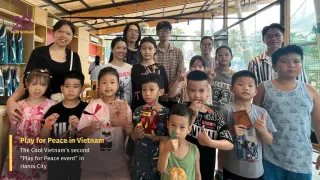
Youth Voices from Vietnam
Vietnamese students learned Play for Peace techniques to strengthen teams, welcome new members, and create positive change in their communities. ...more
Vietnam ,workshops &Global news
August 20, 2024•2 min read
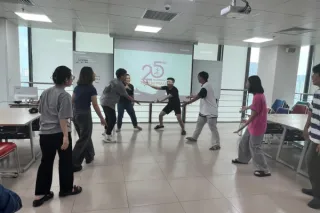
Experiential Education in Vietnam
Play for Peace transforms education and communication through trust, empathy, and innovative activities, empowering youth and educators in Vietnam to foster positive change. ...more
Vietnam ,Global news
June 23, 2023•4 min read
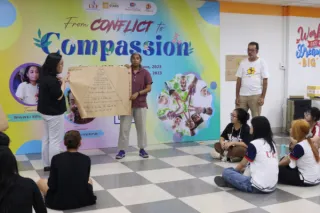
Italy
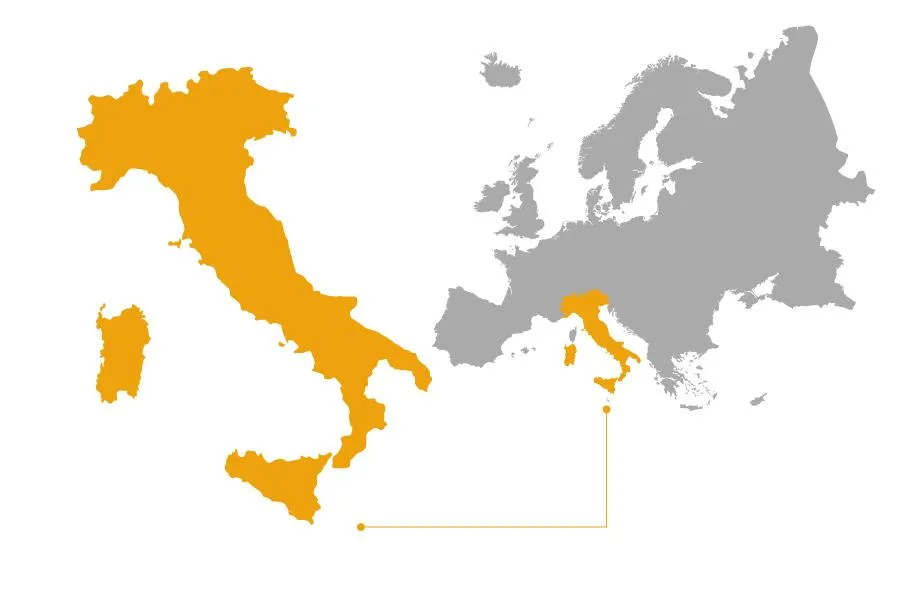
While Italy is known for its delicious food, fine leather, luxurious fashion, and historical wonders, the country struggles with organized crime and a large economic gap between the wealthy population in the north and those who have less resources in the south. However, it is still a dream destination and entry point for many African people who escape political instability and lack of basic resources and opportunities at home. Increased volatility in many African countries is causing the number of people coming to Italy to rise, resulting in conflict between refugees and the local communities.
Play for Peace was introduced to Federica Lazzarine, the founder of the Wonderland Association from Genoa, Italy, by Olimpia Theodoli. Olimpia is the founder of Crete for Life and had worked with Play for Peace youth volunteers from the Skaramangas refugee camp in Greece. Wonderland supports African refugees on their path to integrate into Italian society. Many young refugees in the camps don't learn the local language or interact with people in their new communities. When a Play for Peace workshop was held in Genoa with these refugees in Spring 2017, the methodology was well received by participants and served as a first step towards connecting with each other and their new environment. Soon the Play for Peace Maza club was founded.
Federica has been conducting Play for Peace sessions regularly and recently received a grant to introduce Play for Peace to immigrant communities in five other Italian cities.
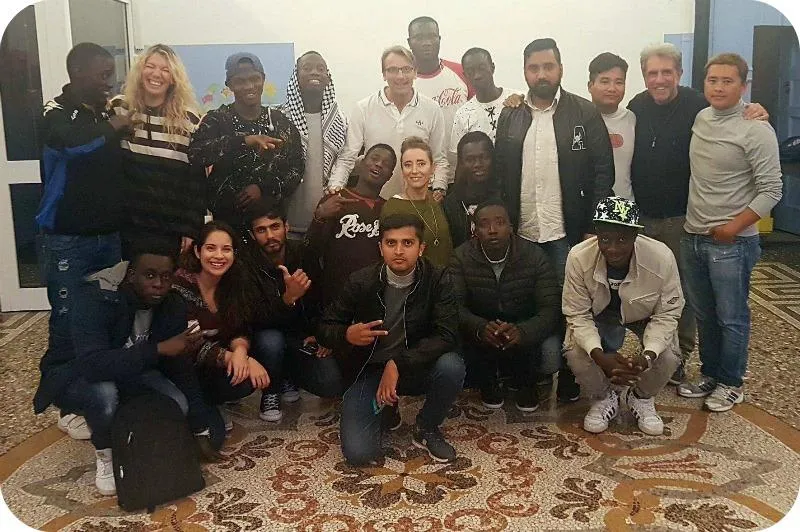
Maza Club
Location: Genoa, Italy
Mentors: Federica Lazzarini
Partner: Wonderland Associazione
Description
The Wonderland Associazione is based in Genoa, Italy, and works with refugees—many arriving to Genoa from war-torn countries. As a way to provide psycho-social care for the refugees, the organization invited Play for Peace trainers from India for a training. They hosted a two-day workshop with 25 people from Mali, Guinea, Senegal, Gambia, Bangladesh, Pakistan, Nepal, Italy, USA, and Brazil, and after its success, the organization decided to start a Play for Peace Club. Called the Play for Peace Maza Club (Maza is the Urdu/Arabic/Hindi word for fun), the club’s aim is to continue the positive experience of the workshop by playing and laughing together and creating a sense of peace and unity in the community.
Maza Club in Genoa
Olimpia got an idea to connect Swati and Agyat with Frederica Lazzarini, founder of the Wonderland Association, from Genoa, Italy. ...more
Italy ,Global news
August 31, 2017•2 min read
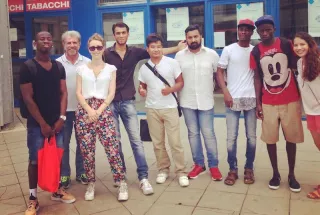
Netherlands
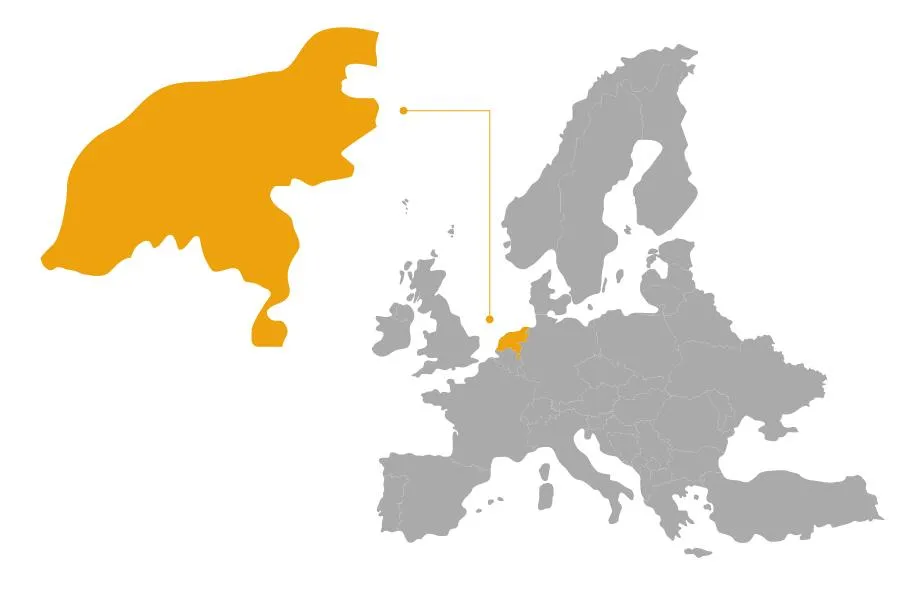
When the 2015 refugee crisis hit Europe, the Netherlands was not prepared for the influx of immigrants to the country. Prejudice and misconception led to the mistreatment of many refugees, the majority who had fled war and hunger in their home countries to find a safe place for their families to settle. Many refugees who came to Europe and settled in the Netherlands are currently living in camps until their fate is decided.
In 2017, a young Iraqi refugee named Rayan, who had previously been at the Skaramangas refugee camp in Greece, began a Play for Peace club in the Musselkanaal camp in the northern Netherlands. Deeply impacted by Play for Peace and its work in Skaramangas, Rayan continued with Play for Peace every week, even after receiving asylum in Holland. Soon he and his mentor Roel had trained a diverse group of 15 young refugees, who soon led regular Play for Peace sessions to children in the camp.
The Musselkanaal refugee camp was closed in August 2018 after 25 years of operation. While it means the end for the Play for Peace club there, it also marks a new beginning.
Youth leaders from Musselkanaal, who are being relocated to other camps, are determined to initiate their own Play for Peace clubs to continue the spread of peace around the world.

Musselkanaal/Ter Apel Club
Location: Musselkanaal, Netherlands
Mentors: Roel Knijnenburg
Partner: COA
Description
The Play for Peace club in Musselkanaal, Netherlands, is comprised of young refugees from Syria, Iraq, Iran, and Eritrea. It was started by a youth leader who formerly lived in the Skaramangas refugee camp in Greece, where he was greatly impacted by Play for Peace. The group, supported by a staff member from the Musselkanaal refugee camp, Roel Knijnenburg, offers regular practice peace sessions to refugee children, who are grateful for the moments of happiness and peace in the midst of an insecure and terrible situation.While the club operated for more than a year and won a volunteer prize for its efforts, unfortunately, the Musselkanaal camp was closed in August 2018. However, many Play for Peace youth leaders from this group are determined to bring Play for Peace to their new locations and homes. Supported by Roel, the group already conducted an introductory session at the Ter Apel refugee camp, motivating new youth to join and build a new club together.
Compassion in Action: Netherlands Play for Peace
Discover how Rayan, Roel, and the Play for Peace Club in the Netherlands are bringing compassion, joy, and connection to refugee communities through play and youth leadership. ...more
Netherlands ,Global news &Community Engagement
November 24, 2025•3 min read
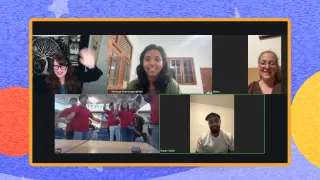
Calm in the Midst of Conflict
Legend has it that there once was a king who announced an art contest. He invited all of the artists to create a painting about peace and the winner would win a prize. ...more
Netherlands ,Global news
March 26, 2019•3 min read
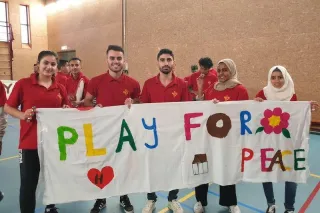
Finding Peace at the Musselkanaal Refugee Camp: Part 3
Many refugees living in Musselkanaal will move to other camps. Some Play for Peace club members will relocate as well, being sure to take Play for Peace with them. ...more
Netherlands ,Global news &Stories and Reflections
October 16, 2018•4 min read
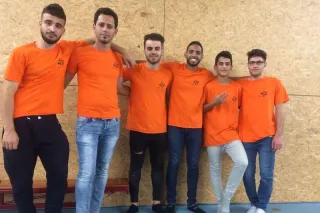
Costa Rica

Costa Rica was deemed a country of peace in 1948 after the military was abolished following a 44-day civil war. As a result, the military budget was allotted to improving the country's security, education, and culture. Nonetheless, there are still areas throughout that suffer from poverty, discrimination, and violence. Conflicts arise particularly between the local population and immigrants from neighboring Nicaragua, who seek better employment opportunities in Costa Rica but often end up living in precarious situations.
Play for Peace Costa Rica was started by trainers Fernando and Diego, who learned about the organization and its impact while serving as volunteers in the Skaramangas refugee camp in Greece. Impressed by the changes they witnessed in the children there and the leadership displayed by Play for Peace youth volunteers, they insisted on receiving formal Play for Peace training in March 2018. Soon after, they successfully implemented a weekly program in La Carpio, the city's most crime-ridden area.
Play for Peace quickly became an important part of life for children in La Carpio. Many are regulars, and new participants join regularly after witnessing the laughter and fun of weekly sessions. Unlike their daily lives in La Carpio—where many are afraid of discrimination, abuse, or neglect—all children are invited to participate and feel included.
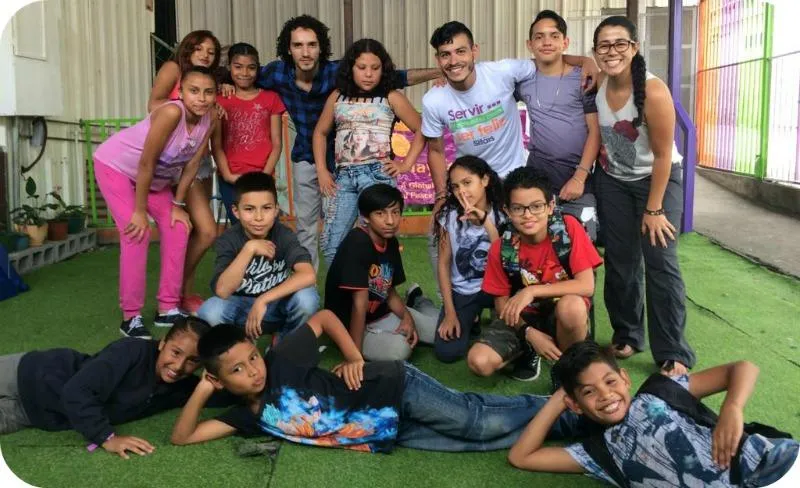
Sifias Club
Location: La Carpio, San Jose
Mentors: Fernando Bonilla and Diego Madrigal
Partner: SIFAIS
Description
The Sifais Club was started in 2018 at the SIFAIS community center in La Carpio, a community in San José. that is primarily populated by first and second generation Nicaraguan immigrants. Weekly play sessions bring together local children who are regularly exposed to violence, crime, and poverty and focus on non-violent education and inclusion, as well as giving positive feedback. The youth facilitators leading the activities have the unique opportunity to develop leadership and facilitation skills at a young age and in a safe environment.
Costa Rica: Conflicted Communities Within a Peaceful Country
Costa Rica is a small country in Central America, famous for its beautiful beaches and incredible nature. ...more
Costa Rica ,Global news
October 17, 2018•3 min read
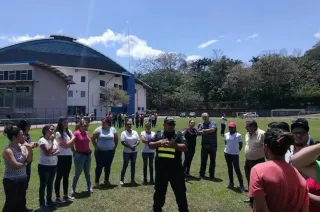
Mexico
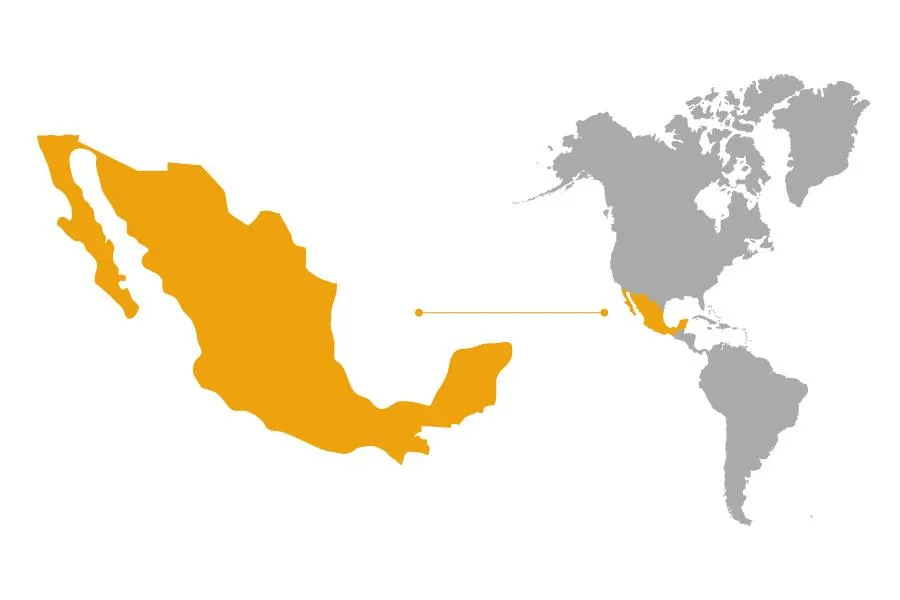
Mexico is the fifth largest country in the Americas with an estimated population of over 120 million. It has a growing economy, many UNESCO world heritage sites, and an incredible history and culture. Unfortunately, the country also has a large socioeconomic gap, neglected rural areas, and urban shanty towns. Moreover, in the past 10 years alone, thousands of people have been killed by gang violence. Tensions around issues of human rights, immigration, and other issues have also divided Mexico's population.
Play for Peace Mexico started in 2017 from the interest of Francisco Hueyatl, an acclaimed artist, university professor, and Play for Peace graphic design volunteer. Feeling a deeper connection to the organization after reading life-changing stories and viewing impactful pictures and videos, he knew that Play for Peace’s values of compassion, inclusion, and openness needed to have a space in Mexico.
Play for Peace's mission was shared via online workshops and through Francisco, who as a college professor shared his passion for the organization with his students. Soon Mexico participated in World Interfaith Harmony Week, with one hundred youth working together to tackle an array of important issues. They have also promoted Play for Peace's mission with the support of other professors and the club's youth facilitators, by leading radio campaigns and conferences to spread the word. Their hope is that young people will recognize Play for Peace's impact, leading to the initiation of new clubs and increased support for the organization as a whole.
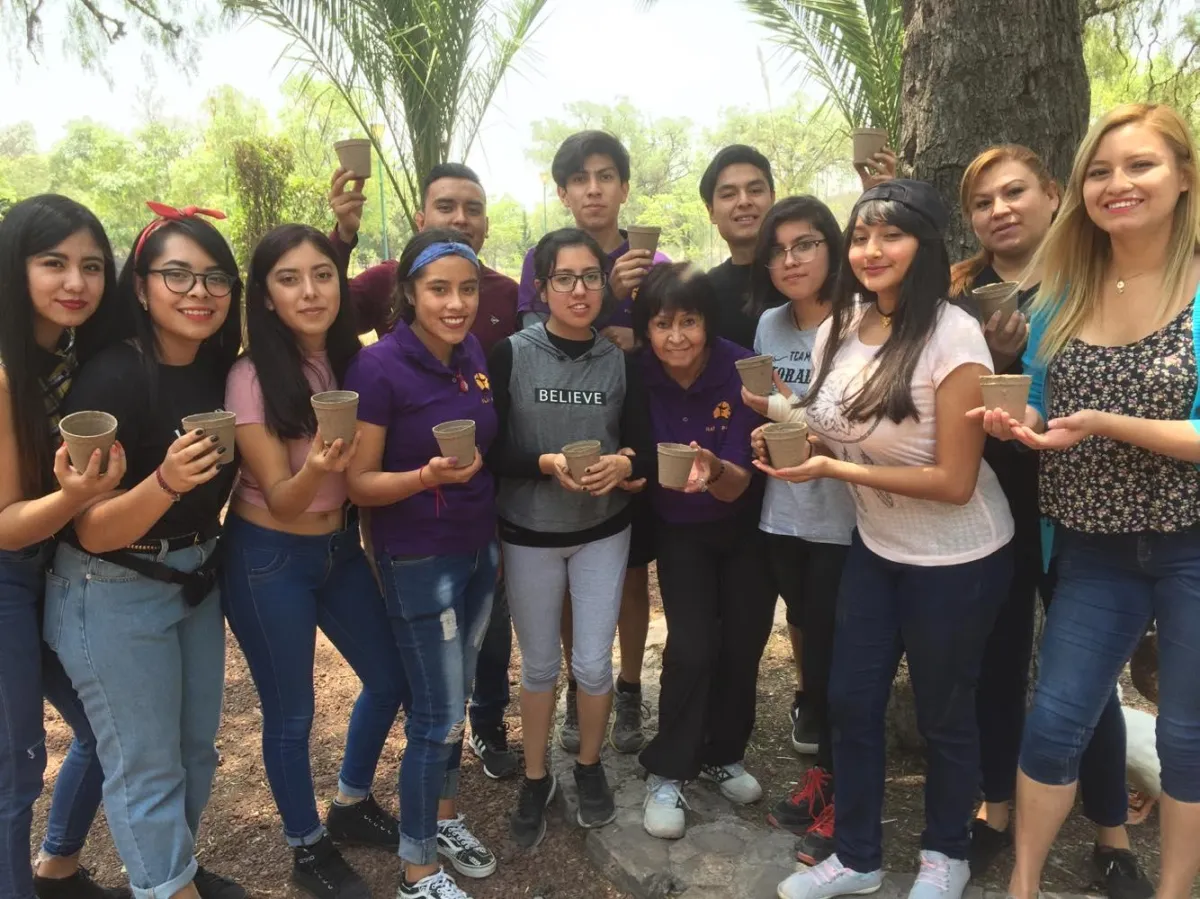
Mexico Club
Location: Mexico City, Mexico
Mentors: Francisco Hueyatl León
Partner: UBAM
Description
The Play for Peace club in Mexico started its work in 2017 after a profound training given by certified trainers Andrés Armas and Sarah Gough. The connection, however, has a longer history, since Francisco Hueyatl, the club mentor, had been working with Play for Peace as a U.N. volunteer for some time. As a graphic design professor at a community college, he has helped the Play for Peace group evolve around the college, which is mainly comprised of students who are the first in their families to receive a college education. The group puts a large focus on non-violent communication, a topic that according to Francisco is vastly overlooked and important for bullying prevention. As a result of its location, the club also addresses issues around migration, as many Central American immigrants trying to make their way north pass through the area.
Play for Peace Mexico at the International Relations Conference
Play for Peace Mexico shared their mission and global stories at the International Relations Conference Week at UBM. Learn about their inspiring work fostering peace and compassion worldwide. ...more
Mexico ,Global news &Community Engagement
April 01, 2023•1 min read
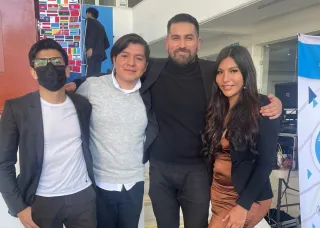
Race for Humanity
Four Play for Peace Mentors Share Their Stories ...more
Burundi ,India Mexico Sri Lanka &Leadership
September 19, 2020•7 min read
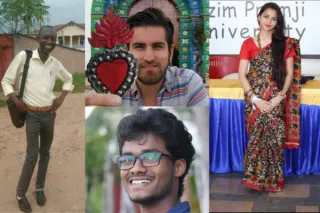
A New Effort in Mexico
For several years, Play for Peace Mexico mentor Francisco Hueyatl León has been leading Play for Peace's club in Mexico with love and dedication. ...more
Mexico ,Community Engagement
April 09, 2019•1 min read
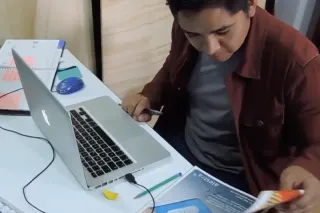
Nepal
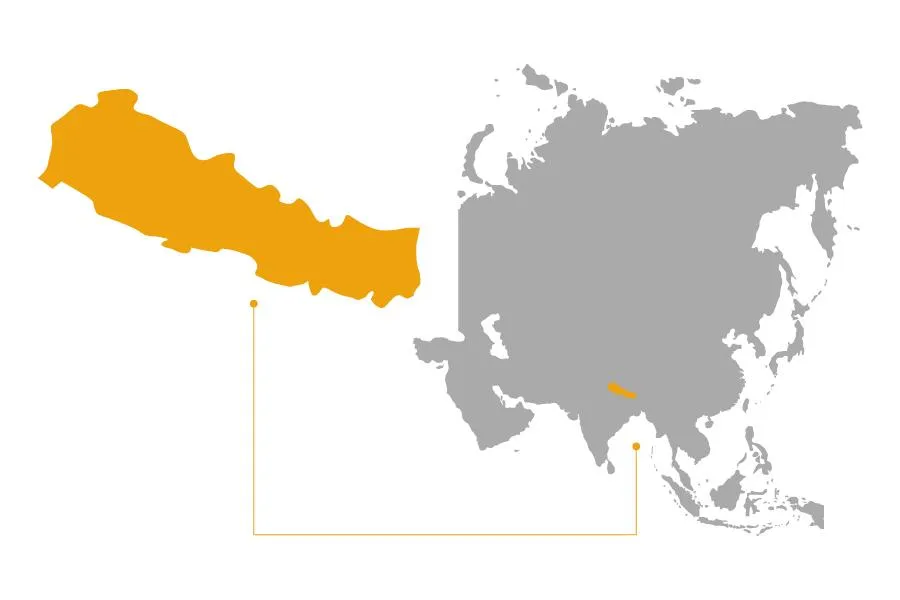
While Nepal is small in size, it is very diverse in its culture, with a population that is multi-ethnic, multicultural, and multi-religious. However, with its cultural diversity exists conflict—some communities are quite poor and many groups, including women, have experienced inequality and discrimination. In the absence of empathy and cooperation suffering has grown, relations have deteriorated, and conflict has led to fear, insecurity, and stress. Play for Peace began working in Nepal in 2009 and is currently active in three different communities, all of which struggle with poverty, violence, and inequality, Their work is focused on processes of non-violent communication, non-aggressive interactions, and cooperation. Play for Peace Youth facilitators work to build relationships with the children they meet during play sessions, most of who return regularly to participate, learning to make friends and cooperate in a group.
Several children who began as participants are now youth facilitators who bring change and peace to their communities and schools. Play for Peace is continuing to help young people stay away from conflict and instead participate in meaningful, worthwhile activities. As a result, many have found the self confidence and courage to stand up against violence and become positive and respected leaders in their communities.
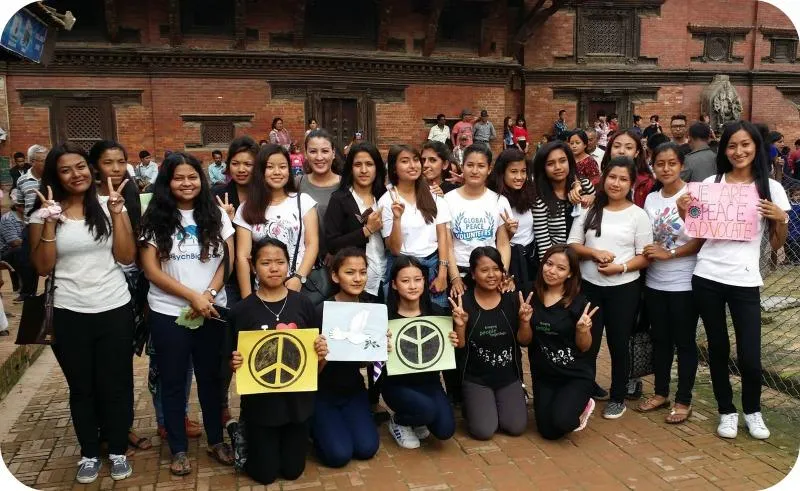
Udaudo Peace Club
Location: Kathmandu, Nepal
Mentors: Runny Kayastha
Partner: Global Peace Youth Corps
Description
The Udaudo Peace Club works in collaboration with the Global Peace Youth Corps (GPYC), a nonprofit organization based in Kathmandu, Nepal. GPYC is a global movement of peace builders who are committed to addressing the most urgent issues of our time and to bring about reconciliation among people of all cultures and faiths. Play for Peace collaborates with the GPYC to promote inclusion, human rights, and human dignity.The Udaudo Peace Club was created after a Play for Peace training in 2016. The club conducts two to three Practice Peace Sessions a month in schools around Hattigauda, Kathmandu, where many face discrimination based on gender and caste. Through Play for Peace activities, the Udaudo Peace Club hopes to create lasting friendships, positive bonding, and teamwork across differences.
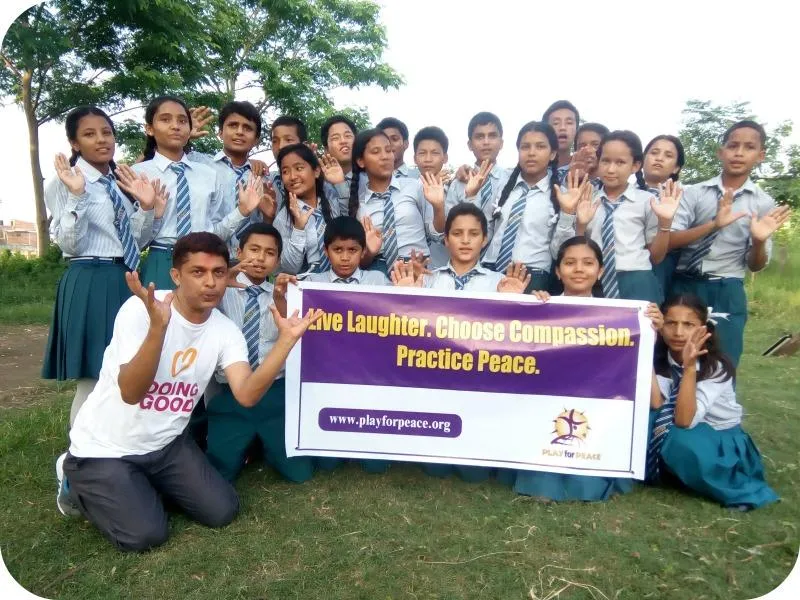
Nepal Friendship Society Club
Location: Chitwan, Nepal
Mentors: Birendra Poudel
Partner: Nepal Friendship Society
Description
The Nepal Friendship Society club organizes various programs that bring young people together to participate in meaningful activities that help them stay away from trouble, as well as build self confidence and the courage to stand up against violence. As a result these youth become positive and respected leaders in their communities.Since becoming part of Play for Peace, Nepal Friendship Society has organized cooperative play events in community schools in the Chitwan district of Nepal. During the sessions, children engage in peace building activities that teach inclusion, equality of boy and girls, and environmental awareness protection.

Himalaya Club
Location: Kathmandu, Nepal
Mentors: Abhilash Acharya
Partner:
Description
The Play for Peace Himalaya Club is based in Kathmandu, Nepal, and works to bring well-being and joy to local children and youth in urban and rural settings and community schools, using exercises that focus on emotional awareness, mindfulness, and sensitivity. The club's core value is humanism and sees all humanity as equal and with similar aspirations and dreams. They have created the Play for Peace Himalaya Club as a space of love and care, where young women and men work relentlessly to bring happiness to the world.
Earth Week Inspiration
Yesterday was Earth Day, a day to celebrate the wonders of our earth, as well as our united efforts to care for our world. ...more
Guatemala ,India Nepal Philippines South Sudan United States Vietnam Event Highlights Global news &Community Engagement
April 22, 2020•4 min read
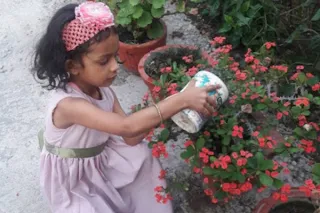
Reflections from Nepal
Meet Our Youth Leader from the Himalaya Club ...more
Nepal ,Global news &Leadership
August 21, 2019•2 min read
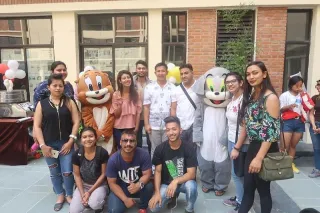
Calling All Peace Builders:
This April, aspiring peace builders in Nepal will have the chance to learn about Play for Peace and the skills needed to bring peace to their communities through the power of play. ...more
Nepal ,Global news
March 21, 2019•1 min read
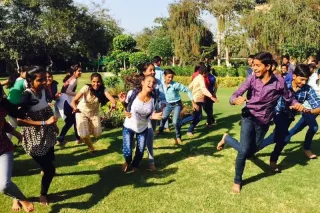
Pakistan

Pakistan is the sixth most populated country in the world. Ever since its independence from British rule in 1947, Pakistan has experienced several armed conflicts and wars. Despite being a regional economic and military power, the country struggles with much internal and regional conflict that has had devastating effects on the population. Poverty, illiteracy, corruption, and terrorism are the most challenging problems, and the ongoing territorial conflict with India causes instability and suffering throughout the region.
Despite the complicated relationship between Pakistan and neighboring India, Indian certified trainers were invited by Pakistani community leaders to bring Play for Peace to Pakistan. While there was hesitation on both sides, when our trainers crossed the border in 2014, they were showered with rose petals and greeted with dances and songs in their honor. Since then, Pakistani mentors and trainers from India have taken part in several visits and trainings together. Common projects in Lahore and later in Kashmir—a heavily disputed region between the two countries—unfolded the true objective of Play for Peace: to create friendships across divides.
Play for Peace was invited back to Pakistan to work with children in local schools, as well as to train teachers and facilitators in collaboration with two organizations, the Starfish Foundation and Bounded Labour Liberation Front. Starfish then founded the first Play for Peace Club in the country.
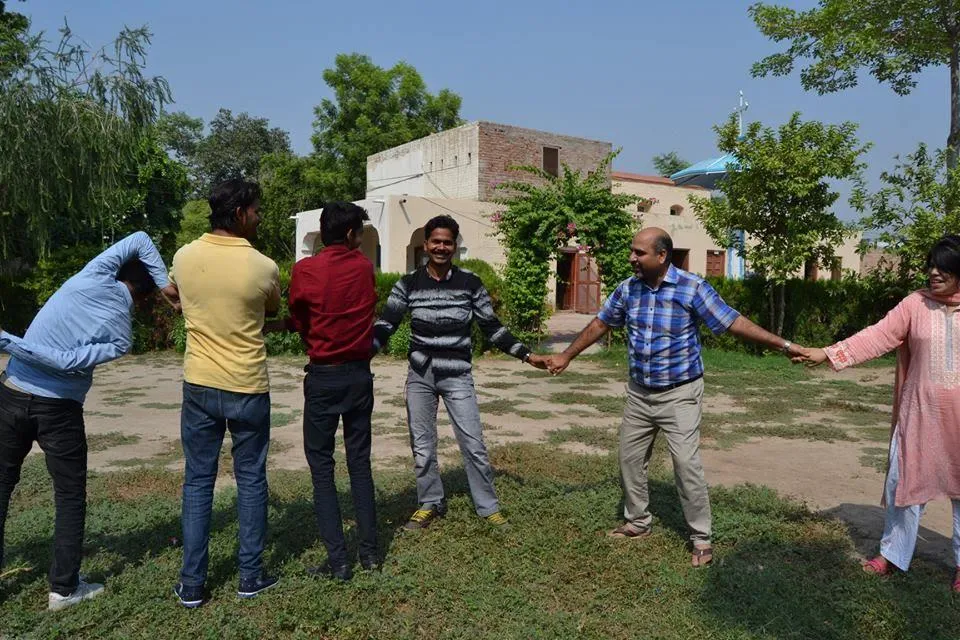
Starfish Club
Location: Lahore, Pakistan
Mentors: Anser Javed
Partner: Starfish Pakistan
Description
The Starfish Pakistan club works with Starfish Pakistan to provide educational and social uplift funding for community-based organizations working among deprived and disadvantaged minorities in Pakistan. The club promotes inclusion and fights inequality through academic and peace education. Play for Peace methodology and cooperative play is used to cultivate leadership skills in school children, and regular regular play sessions are conducted in local villages and schools.
India, Pakistan, and Play for Peace
Play for Peace went to Lahore, Pakistan, for the first time in 2014. Swati and Agyat, certified trainers of Play for Peace from India spent a fortnight there, receiving love, compassion and stories of... ...more
India ,Pakistan Global news &Community Engagement
October 21, 2016•1 min read
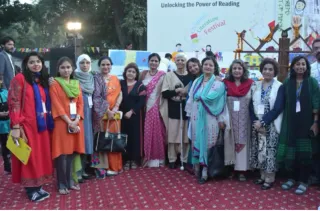
India’s Threshold to Peace: Training on Child Participation
A 2-day play session was conducted at a Youth Service Center in Bolangir, Odisha, India on September 28-29, 2016. ...more
India ,Pakistan Global news &Community Engagement
October 21, 2016•4 min read
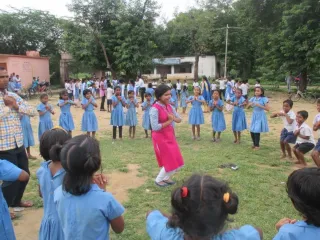
A Visit with Atiqa Shahid
In September 2014 we first met Atiqa Shahid, National Project Coordinator for Bonded Labor Liberation Front Societies (BLLFS) in Pakistan ...more
Pakistan ,Global news &Community Engagement
June 13, 2016•2 min read
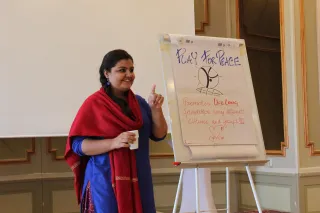
South Africa
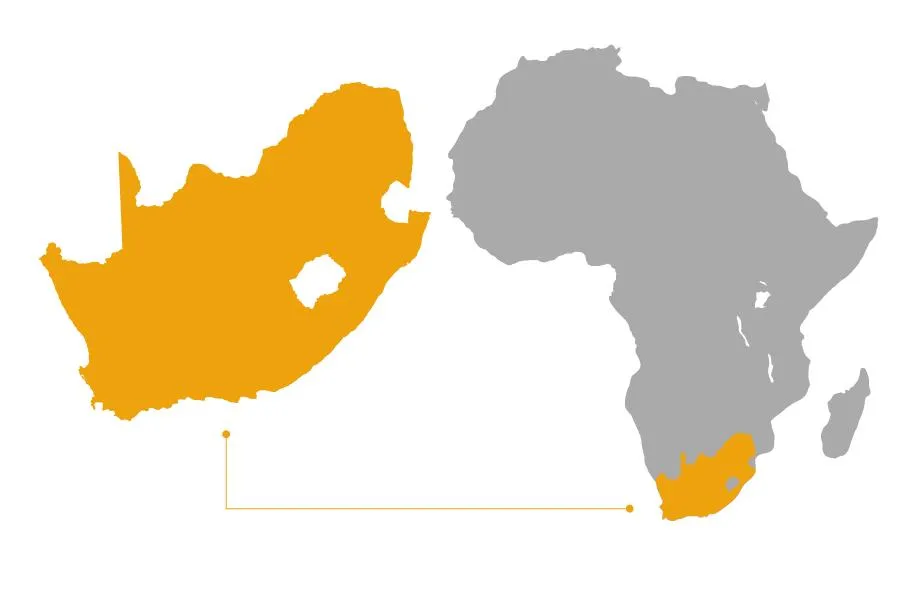
Cape Town is South Africa’s oldest city and also its second largest, with an estimated population of 3.78 million people. Voted the best tourist destination in South Africa, Cape Town has stunning sites to visit—from natural wonders to landmarks from its 300-year heritage—and a unique culture influenced by its diverse population. However the area is not without conflict. Beyond its beauty and rich history, the city struggles with issues such as drugs and gang violence.
Play for Peace in South Africa started in Cape Town in 1997. Founder Craig Dobkin and some other play for peace trainers conducted a cooperative play session there and returned the following year to continue the training. Later in 1998, two trainers from Chicago came to Cape Town to work with children there, and soon Play for Peace was fully active. The club works with children of all ages, conducting practice peace sessions and creating a dialogue with youth about issues affecting their lives and the community, such as teenage pregnancy, substance abuse, and gender based violence.
Play for Peace in Cape Town continues to meet regularly for cooperative play sessions and to improve the lives of young people in the community.
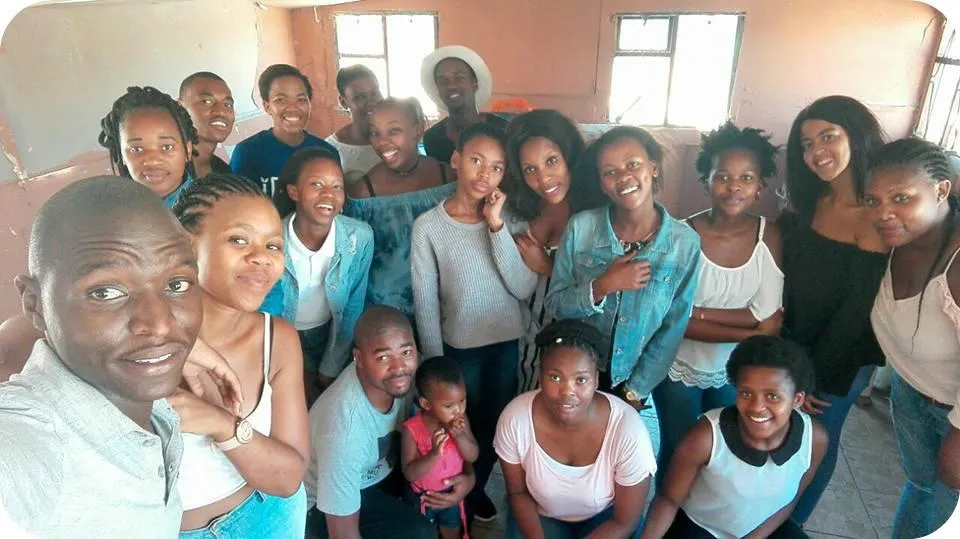
Ambassadors of Change Club
Location: Cape Town, South Africa
Mentors: Faith Thando Sidinana
Partner: Ambassadors of Change
Description
Play for Peace has one active club in Cape Town, the Ambassadors of Change Club, which works with children age 8 through 17. The club meets twice a week on for sessions that aim to improve the lives of youth, take them off the street, and build their self esteem. The group engages in a variety of activities, including arts, drama, leadership activities, and adventure programs that incorporate Play for Peace methodology. The club also works to create a dialogue with youth about issues affecting their lives and the community, such as teenage pregnancy, substance abuse, and gender based violence.
Celebrating the Hope of Africa
Let's celebrate African children and empower them through quality education. Let's create an enabling environment for all children to thrive and reach their full potential. ...more
South Africa ,Event Highlights &Global news
July 10, 2024•1 min read
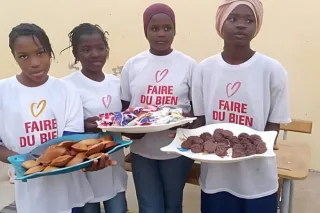
Action in Africa Amid the Coronavirus Crisis
With Coronavirus lockdowns expanding globally, billions of people in Africa are faced with unprecedented restrictions. ...more
Burundi ,South Africa South Sudan &Global news
May 20, 2020•3 min read
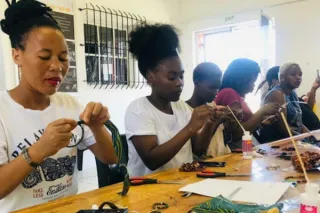
Feast For Peace 2017 Guest Thozi Ndlazi
Growing up in South Africa during the Apartheid era, Thozi Ndlazi is no stranger to discrimination. Born in East London, South Africa, Thozi moved to Cape Town at the age of five. ...more
South Africa ,volunteer spotlight
February 09, 2017•3 min read
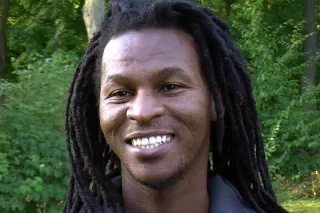
South Sudan
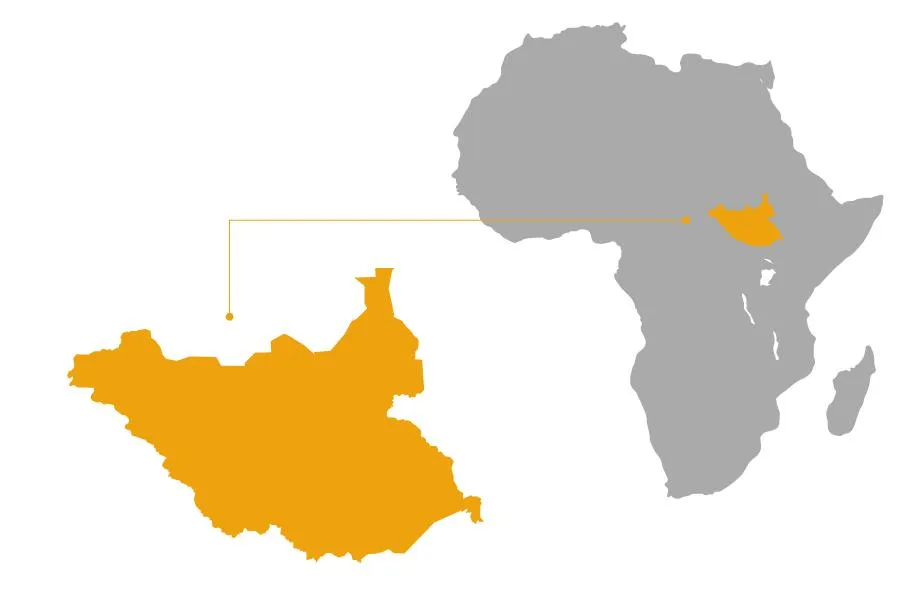
South Sudan is the world´s youngest country, winning independence from Sudan in 2011 after decades of fighting. However, the fight for independence was soon replaced by a bloody civil war, which has paralyzed the country's development since 2013. Today, violence and deteriorating living conditions have led South Sudan into a humanitarian crisis. Currently more than two million people have fled their homes and more than half live in Ugandan refugee camps. 65% of South Sudanese refugees are under 18.
Play for Peace South Sudan started in 2015, when the organization Plan International supported the training of 500 teachers, youth, and community leaders. Peace was an important topic for them and it was clear that they find peace to be fundamental for development. The Play for Peace games sparked hope in participants, who saw how play can be used to help children overcome traumatic experiences. As a result, participants expressed their desire for Play for Peace to spread beyond schools into whole communities, and eventually into the entire state of South Sudan.
Today, the Play for Peace club in South Sudan offers regular practice peace sessions. Local leaders are using Play for Peace to bring together children and youth from different ethnic backgrounds, including internally displaced people. Amid war and violence, Play for Peace offers opportunities to gain trust and cooperation. South Sudan has a long way to go, but the strong desire for peace will prevail.
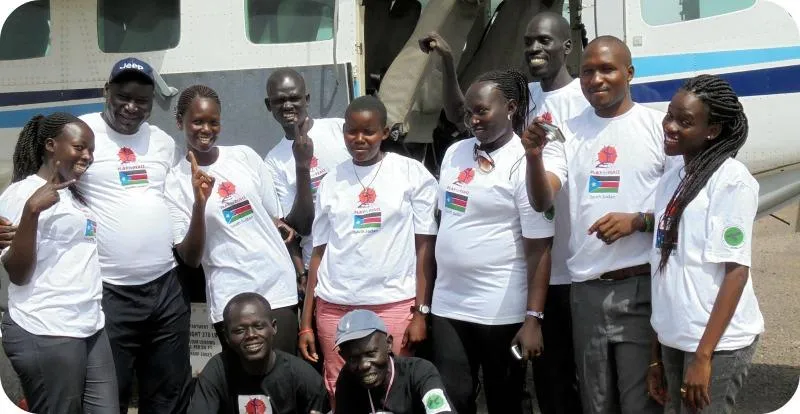
South Sudan Club
Location: Juba, South Sudan
Mentors: Eric Gisario
Partner: Hold the Child
Description
South Sudan, a country plagued with much war and violence, has left many children traumatized. As a way to help these children, in 2014, around fifteen staff from the organization PLAN International completed a Play for Peace training conducted by certified trainers from India. Soon after, this new team of mentors began conducting Practice Peace Sessions in and outside of the Juba region. Play for Peace South Sudan was born from these training workshops, with volunteers who work in many different organizations. Play for Peace youth volunteers and mentors now regularly conduct sessions in different schools and communities in the Greater Pibor Administration Area, benefitting both students and their teachers.“Through Play For Peace, we show teachers how to handle their children. Many kids drop out because of corporal punishment, and these games give the two a way to understand each other. They begin to recognize how they can work together through peaceful education,” explains mentor Eric Gisario.
Action in Africa Amid the Coronavirus Crisis
With Coronavirus lockdowns expanding globally, billions of people in Africa are faced with unprecedented restrictions. ...more
Burundi ,South Africa South Sudan &Global news
May 20, 2020•3 min read

Earth Week Inspiration
Yesterday was Earth Day, a day to celebrate the wonders of our earth, as well as our united efforts to care for our world. ...more
Guatemala ,India Nepal Philippines South Sudan United States Vietnam Event Highlights Global news &Community Engagement
April 22, 2020•4 min read

Leading With Hope in South Sudan
“Most of us South Sudanese have never known peace,” says Riya Yuyuda, during her presentation at the first ever TEDx event at a refugee camp on June 9, 2018. ...more
South Sudan ,Leadership &Stories and Reflections
June 19, 2018•2 min read
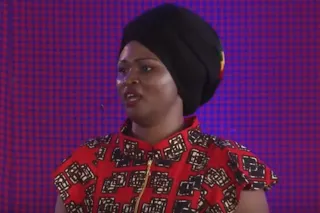
Sri Lanka
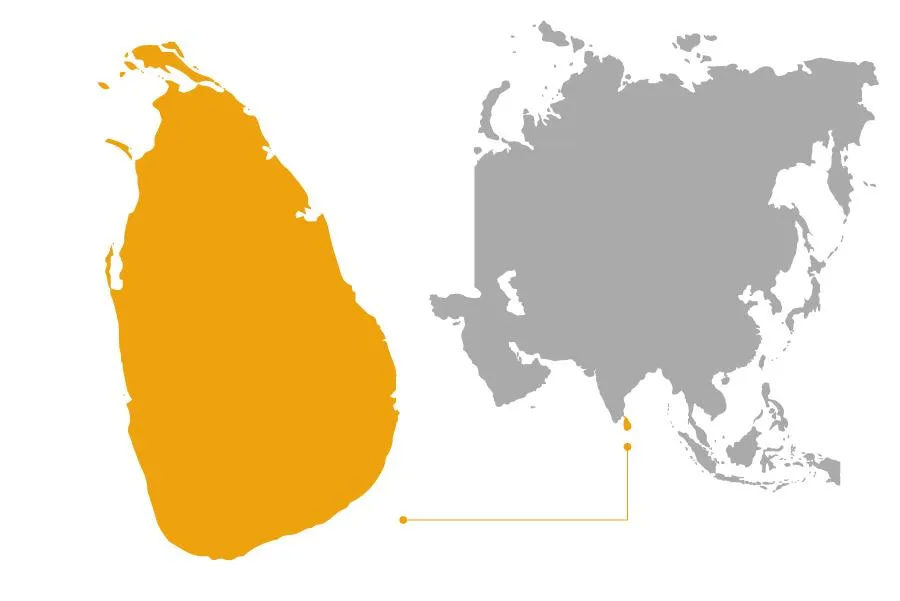
Country Overview
Sri Lanka, an island in the Indian Ocean, has endured centuries of colonial influence since 1505, shaping its protracted conflicts and youth uprisings. The post-independence state-building process fostered exclusion and division, particularly between Tamil and Sinhala communities, leading to a 30-year civil war that ended in 2009 with an armed victory—yet positive peace remains uncertain. Since 2009, rising religious extremism and Islamophobia escalated after the 2019 Easter Sunday bombings, which killed 300 people and deepened societal fractures. Adding to these struggles, Sri Lanka continues to face severe economic, political, and social crises, further challenging daily life.
How Play for Peace Began Here
Play for Peace Trainers Swati and Agyat visited Sri Lanka in March 2018 and conducted Play for Peace trainings in three different cities with almost 70 young peace builders. The youth there were both Singhalese and Tamil, and all of them had seen an abundance of death and destruction. They embraced Play for Peace's methods to the point that they started their own clubs to address local conflicts and violence. Play for Peace gave them powerful tools for transforming negative attitudes and working to create a thriving and peaceful community. The community has continued to grow and evolve since this start!
Kalaimagal Club
Founded as Play for Peace Club: 2025
Mentor: Sinthuja Shanmuganathan
Location: Kandy, Sri Lanka
Local Partners: Igrow Lanka , DreamSpace Academy, Kalaimagal PFP Club, CPBR
Focus: Igrow Lanka , DreamSpace Academy, Kalaimagal PFP Club, CPBR
Kalaimagal Play for Peace Club, established as part of the P2H3C4 initiative (Play to Heal and Hold while Harmonizing for Connecting, Caring, Community-Weaving & Celebrating), is dedicated to creating experiential and emotionally supportive learning spaces for children, teenagers, and youth. The club focuses on addressing the impact of diverse traumas, direct, cultural, and structural violence by nurturing inner spaces, abilities, energies and emotions. Through play, laughter, compassion, and peace-seeking activities, Kalaimagal Play for Peace Club fosters healing and community connection.
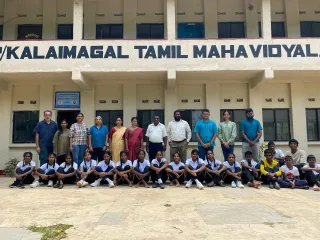
Youth Thinker Project
Initiated: 2023 Location: Mullaitivu
Mentor: Aninilvan Puvanesan
Partner: IGrow Lanka
Focus: Nurturing Sustainable Innovation
iGrow Lanka is a dynamic platform focused on agricultural entrepreneurship, skills development, and youth empowerment through tailor-made creativity, innovation, and transformative tools. It revolutionizes agriculture with smart farms, innovative technologies, and regenerative practices, empowering local farmers and fostering long-term sustainability. Through its iGrow Academy, it actively engages youth, connecting them with their passions and dreams, exploring innovative technological solutions to current climate and food crises, and adopting approaches like Play for Peace to mobilize and empower young individuals to become future leaders and entrepreneurs.
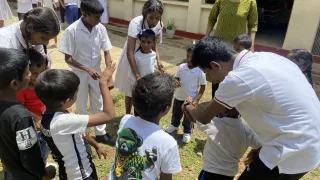
Explore Love and Life Through Creating Space for Young Visionaries Project
Initiated: 2017
Location: 09 - 10 Districts of Sri Lanka
Mentors: Dishani Jayaweera
Partners: Center for Peacebuilding and Reconciliation
Focus: Youth, Art and Nature’s Wisdom in Peacebuilding
CPBR Youth Initiative is our holistic partner, initially established as "Young Visionaries," aimed at empowering youth to connect deeply with their social purpose and inner vision. It evolved into "Youth for Love and Life," focusing on the critical role of youth and their passion in driving changemaking, social transformation, and peacebuilding. The initiative emphasizes building young people's skills, capacities, and knowledge in conflict transformation and self-transformation. Currently, it explores Earth wisdom and nature-based practices as pathways for community transformation and sustainable peace.
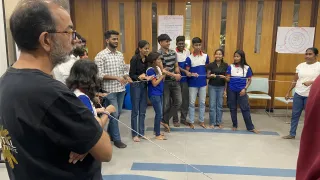
Thriving Leadership through Connecting Dreams Project
Initiated: 2020
Location: Batticaloa & Mullaitivu
Mentor: Kishoth Navaretnarajah
Partner: Dreams Space
Focus: Making next generations’ social & tech innovation hub
DreamSpace Academy is our valued partner dedicated to addressing Sri Lanka’s socio-economic and environmental challenges resulting from three decades of civil war. Recognizing that imported solutions lacked sustainability, DreamSpace Academy empowers locals through challenge-based learning, grassroots innovation, and impact venture building. They are committed to creating a self-sustaining ecosystem where local and international changemakers collaborate to co-learn, co-innovate, co-farm, and co-produce, developing next-generation enterprises to position Sri Lanka as a leading hub for social and tech innovation in South Asia. DreamSpace Academy actively works towards achieving sustainable development goals by empowering underserved communities, protecting environmental ecosystems, fostering economic initiatives, and facilitating peacebuilding.
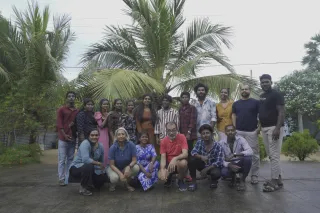
Archives
The 3D Club and White Feather Club have evolved into the projects above! The youth facilitators became mentors and leaders.
Stories
When Play Entered the Divisional Secretariat
When Cyclone Ditwah tore through Sri Lanka, it left devastation in its wake and a silence words couldn’t fill. This is the story of how, after the storm passed, play became a language of healing and t... ...more
Sri Lanka ,Global news &Community Engagement
February 18, 2026•4 min read
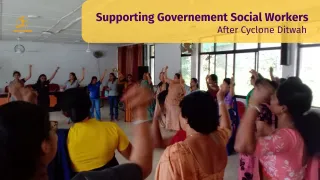
When the Storm Passed, the Circle Remained
This story traces how simple games, gentle presence, and shared circles became spaces for grief, agency, and healing—where children led, laughter returned, and community slowly rebuilt itself. ...more
Sri Lanka ,Global news &Community Engagement
February 04, 2026•5 min read
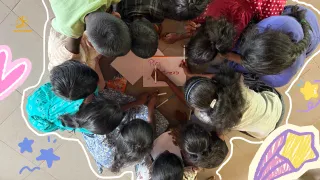
Healing Through Play in Kilinochchi
Five years after discovering Play for Peace, a local youth leader is using play to nurture trust, resilience, and healing among children in post-war Kilinochchi. ...more
Sri Lanka ,workshops &Peace Trainings
December 17, 2025•2 min read
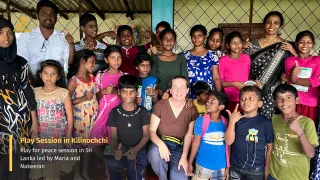
Want To Connect With Us?
We’d love to hear from you and explore how we can make a difference together.
Designed with love by Francisco Hueyatl León. Copyright 2026. Play for Peace. All Rights Reserved. EIN 36-4254565
